www.thisdaylive.com


www.thisdaylive.com


L-R: Brand Specialist, Globacom, Miss. Chikodinaka Gad Moemeka; Ogun State Commissioner for Culture and Tourism, Honourable Sesan Abolaji Fabiyi; National Commercial Coordinator, Globacom, Mr. Yomi Ogunbamowo; Coordinator, Ojude Oba Festival 2025 Committee, Professor Fassy Yusuff; and Brand Specialist, Globacom, Miss.
of the Globacom-sponsored 2025 Ojude Oba Festival ... yesterday


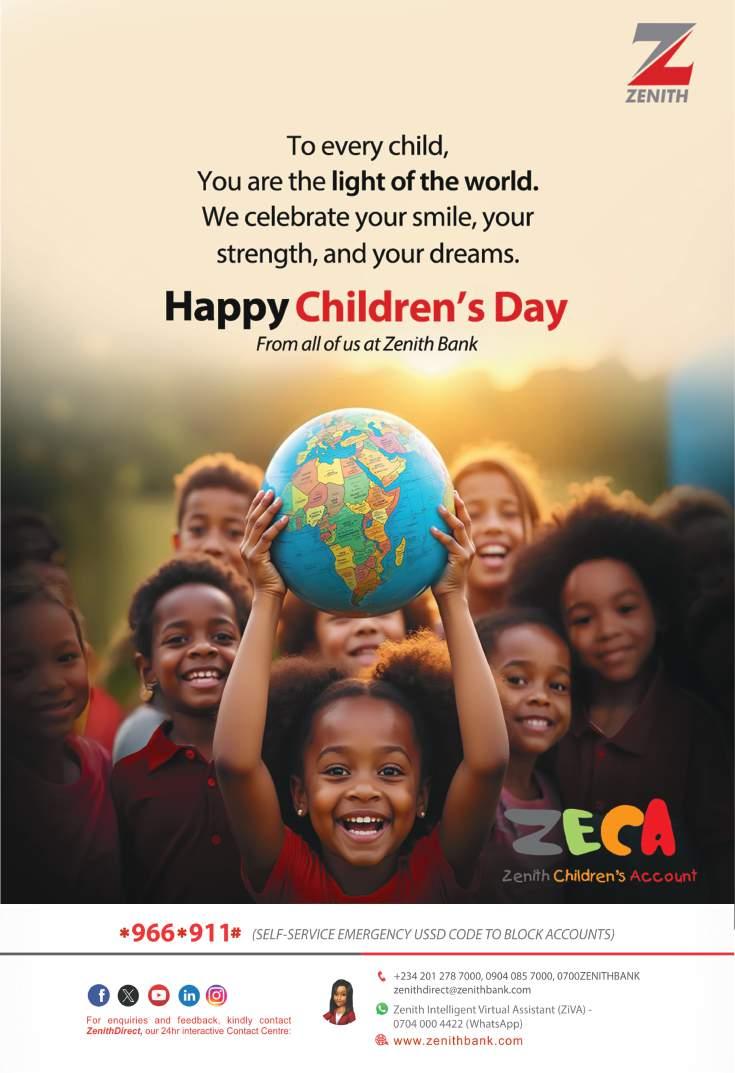

Our Chairman On His Remarkable
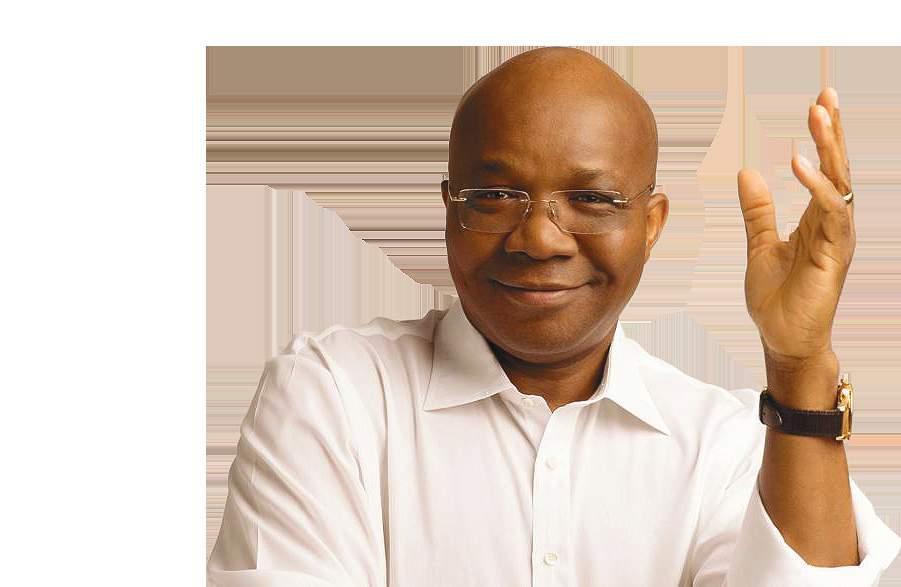
To d ay, w e e x t e n d o u r wa r m e s t c o n g ra t u l a t i o n s t o o u r
e s t e e m e d C h a i r m a n , M r. M u t i u S u n m o n u , C O N , o n t h e
o c c a s i o n o f h i s 7 0 t h b i r t h d ay
R e fl e c t i n g o n h i s r e m a r k a b l e j o u r n e y, t h e o c c a s i o n
h o n o u r s a v i s i o n a r y l e a d e r

Yo u h a v e b u i l t a m o n u m e n t a l l e g a c y a s a
d i s t i n g u i s h e d l e a d e r i n N i g e r i a ' s e n e r g y s e c t o r, a n d
a l o n g t h a t p a t h s e t a b e n ch m a r k f o r e x c e l l e n c e ; a n
e t h o s wh i ch r e s o n a t e s w i t h u s a t Pe t ra l o n – p e r h a p s
t h i s i s why yo u a r e o u r ve r y ow n C H A I R M A N . A s yo u
s t e p o n t o t h e 7 t h fl o o r, w e p ray t h a t t h i s fl o o r o p e n s t o
t h e s a m e j oy, a n d w i s d o m t h a t yo u ’ve g i f t e d t o o t h e r s
t h r o u g h o u t yo u r r e m a r k a b l e l i f e .
Fr o m a l l o f u s a t Pe t ra l o n E n e r g y, w e w i s h t h a t a s yo u
e m b a r k o n t h i s n e w ch a p t e r, i t b r i n g s yo u t h e sa m e
f u l fi l l m e n t a n d g ra c e yo u h ave g e n e r o u s l y s h a r e d
w i t h o t h e r s . W h i l e w e a c k n o w l e d g e y o u r
d i s t i n g u i s h e d p a s t a n d c e l e b ra t e yo u r i m p a c t f u l
p r e s e n t , w e a l s o l o o k f o r wa r d t o yo u r c o n t i n u e d
v i s i o n a n d l e a d e r s h i p , g u i d i n g u s t o e ve n g r e a t e r
a ch i e ve m e n t s
Wi t h d e e p e s t a d m i ra t i o n a n d p r o f o u n d g ra t i t u d e ,
T h e B o a rd a n d M a n a g e m e n t o f Pe t r a l o n E n e r g y



Dike Onwuamaeze
The National President of the Nigerian Association of Chambers of Commerce, Industry, Mines, and Agriculture (NACCIMA), Mr. Dele Kelvin Oye, has called for a comprehensive overhauling and strengthening of Nigeria’s Investment Promotion Agencies (IPAs) to attract quality investments into key sectors of the economy.
Oye, who is also the chairman of the Organised Private Sector of Nigeria (OPSN), emphasised the urgent need to enhance institutional capacity and promote collaboration among federal and state IPAs to unlock Nigeria’s vast economic potential.
He made this call at the Nigerian Investment Promotion Commission Summit held in Benin City, Edo State.
Oye said: “We are gathered to deliberate on how Investment Promotion Agencies (IPAs) can enhance their institutional capacities and facilitate collaborations that will ultimately attract impactful investments into Nigeria’s vital sectors.”
Oye remarked that Nigeria’s investment landscape presents both opportunities and challenges, adding that Nigeria holds immense potential for investors as the largest economy in Africa, which is endowed with a burgeoning population and an expanding middle class.
He said: “Government can implement public-private partnerships to deliver utility infrastructure in strategic sectors.
“Examples are investment in agribusiness processing, private
transport infrastructure, storage, distribution, and export. Targeting sectors that create employment for youth using education and skills acquisition programs are easier than building factories or awarding government contracts.”
Oye stated that, “more youth will be gainfully employed if investment promotion agencies add human resources and skills development as investment opportunities.”
He emphasised that areas like Information, Communication and Technology (ICT), tourism, hospitality, entertainment, music, heritage legacy, fashion, food, the green economy, nature and environment still remained under exploited.
Oye said: “The security industry is currently dominated by the public sector. Government can consider private sector innovation and investment in specific areas where local technologies and industries can be strategic to Nigeria,” adding that “post analysis of COVID-19 pandemic demonstrated why Nigeria needs indigenous technologies and capacity to survive unexpected shocks.
“IPAs should also embrace investment opportunities arising from the ‘Japa Syndrome.’ Nigeria cannot influence world events but we can influence how we respond to these events.”
He pointed out that the IPAs could promote investment in medical and health skills training facilities, which would train the next generation of professions since the country’s current academic approach is suboptimal.
“We need an industry-led approach
to support our current academic endeavours.
“The consequence and outcome of an industrial approach will lead to manufacturing and industrialisation opportunities in pharmaceuticals, medical tools and equipment, consumer goods and capital goods.
“Our students should be graduating as employers and industrialists instead of looking for jobs,” he said.
The national president of NACCIMA stated that, “with over 230 million people, Nigeria offers a vast consumer base driven by an increasingly affluent middle class.”
He said: “The question is: why are we not getting more high-impact investments into specific critical sectors in Nigeria?
“Our population is growing, but per capita income is dropping.
We can see this as a problem or an opportunity to disrupt existing market realities through government deregulation and innovative development policy which amplify market and technology opportunities for sectors like healthcare and education.
“Like China, Nigeria can potentially transform its growing number of impoverished citizens through private sector-led entrepreneurship programs and skills development training programs for specific sectors.
“These measures are cheaper, faster and target human resource capacity, which will produce a better impact in the long run as newly trained individuals become self-employed and create jobs.
“This focus is better than the current cash transfers, which, apart from being too little, create a culture
of dependency, without any viable positive impact, in the short and long term.”
Oye also said that Nigeria’s economic diversification is actively underway, moving beyond the oil sector.
He, however, highlighted the need for investments in key areas like infrastructure, noting that the government was committed to substantial infrastructural development, presenting opportunities in transportation, including roads, railways, and ports.
According to him, “agriculture remains a cornerstone of the economy, with ample potential in processing, storage, distribution, and export,” adding that the technology sector was positioned for growth, which could be driven by innovation and
a tech-savvy youth demographic. However, Oye observed that Nigeria’s tourism sector with its rich cultural diversity, is still underutilised. “By aligning policies with industry insights, we can yield significant employment opportunities and directly address challenges such as youth migration, unemployment, and insecurity,” he said. He also noted that recent progress in the solid minerals sector has led to revenue increases and substantial foreign interest, which Nigeria could harness with strategic oversight. He said: “The Nigerian government has proactively created an investment-friendly environment through initiatives like the Nigerian Investment Promotion Commission (NIPC) and various state-level investment agencies.
The House of Representatives Committee on Federal Capital Territory (FCT) Area Councils and Ancillary Matters has summoned the Minister of State for FCT, Dr. Mariya Bunkure, to appear before it on Tuesday, May 27. This followed Bunkure’s failure to attend a previously scheduled budget hearing session on the FCT’s financial plans.
Nigeria, Venezuela Strengthen BASA with Direct Flight Agreement to Mark 60 Years of Diplomatic Ties
Nigeria and Venezuela have reaffirmed their commitment to deepening economic and diplomatic cooperation as they both reached agreement to launch a direct AbujaCaracas flights to mark 60 years of diplomatic ties.
The two oil producing nations, both members of the Organisation of the Petroleum Exporting Countries (OPEC), pledged to expand collaboration beyond the energy sector as part of efforts to further solidify their historic partnership.
The Venezuelan Ambassador to Nigeria, His Excellency Alberto Castellar Padilla, underscored the strong historical and economic ties between both countries during a visit to Nigeria’s Minister of Aviation and
Aerospace Development, Festus Keyamo, on Monday in Abuja.
Ambassador Padilla commended President Bola Ahmed Tinubu for the notable progress in Nigeria’s aviation sector and called for enhanced cooperation to elevate bilateral relations beyond politics and culture.
A key highlight of the discussions was the announcement of plans by the Venezuelan government to establish direct flights between Caracas and Abuja, aimed at boosting business, tourism, and cultural exchange.
Padilla revealed that in 2022, both nations signed an agreement for direct flights from Caracas to Nigeria, and Venezuela is now prepared to operationalise this arrangement.
“We held a bilateral joint commis-
sion with Nigeria, and we seek to renew our relationship, particularly in the aviation industry,” Padilla stated.
“Our government has been working diligently, and we are ready to commence direct flights to either Abuja or Lagos. As we celebrate sixty years of diplomatic relations, this initiative is a fitting milestone and this is the best time start operations,” he added.
The ambassador confirmed that Venezuela’s national carrier, CONVIASA, is fully prepared to commence operations pending approval from the Nigerian government.
He said: “We have completed all necessary preparations on our end and are eager to receive Nigeria’s consent. This will significantly enhance connectivity and foster stronger ties between our nations.”
Chairman of the committee, Hon. Fredrick Agbedi, issued the summons in Abuja on Monday.
Agbedi expressed dismay that only three of the 14 agencies under Bunkure’s supervision had shown up for the meeting.
He criticised the minister’s absence and cautioned that if she failed to show up on the newly scheduled date, the House might exercise its legislative authority to compel her attendance.
He further stated that President Bola Tinubu had earlier directed the legislature to accelerate the passage and deliberation of the budget.
Agbedi expressed concern over what he described as Bunkure’s disregard for a matter as crucial as the national budget.
He emphasised that Bunkure received a proper invitation to attend the meeting, along with the relevant agencies under her supervision.
The chairman further stressed that the National Assembly, including the committee, represented both the indigenous population and residents of FCT.
“As a committee, our work directly impacts the daily lives of FCT citizens. We are closely connected with their concerns and interests,” Agbedi stated. He underscored the committee’s vital role in the governance and welfare of FCT residents and also urged Tinubu to take immediate action in response to the situation. Earlier in the session, Hon. Paul Kalejaye, who represents the Ajeromi Ifelodun Federal Constituency of Lagos State, condemned the Bunkure’s absence, describing it as a direct challenge to the authority of the National Assembly.
Kalejaye stressed that the legislature held the constitutional authority to ensure adherence to constitutional responsibilities and enforce compliance.
Yinka Kolawole in Osogbo
Osun State government yesterday reached an out-of-court settlement with Globacom over the payment for 57 unregistered telecommunications masts operating within the State. Reni Legal Consulting represented the Osun State Government in the matter with the authority of the Attorney General of Osun State, Oluwole Jimi-Bada. The settlement reflected Globacom’s commitment to compliance with local regulations governing telecommunications infrastructure.
As part of the agreement, Globacom
has made the necessary payments for the unregistered masts, marking a significant step toward ensuring regulatory adherence in the telecommunications sector.
The parties involved pointed out that the resolution fostered a spirit of collaboration between the Osun State Government and service providers, ultimately benefiting the community at large.
This has also shown compliance with section 135 of the NCC Act and the Osun State Environmental Protection Law 2022 (as amended).
Speaking with THISDAY, the founder of Reni Legal Consulting,
Morenike George-Taylor, commended Globacom and their learned counsel for this positive development. She advised other telecommunications companies to emulate their exemplary conduct in complying with regulations and fostering good relations with governmental authorities.
She expressed appreciation for the cooperation shown by both parties in reaching the amicable resolution.
“We believe this settlement will promote a more compliant and accountable telecommunications environment in Osun State,” she added.

L–R: Managing Director, West Africa, JP Morgan Chase, Mr. Dapo Olagunju; Executive Director, Corporate, Treasury & North Bank, Wema Bank PLC, Mr. Olukayode
Sales, JP Morgan Chase, Ms. May Wafa; Divisional Head, Business Support, Wema Bank PLC, Mr.
and Treasurer,
Michael Olugbode in Abuja Turkiye has expressed willingness to increase its trade volume with Nigeria to $5 billion, which would be a 500 per cent increase. Currently, the trade volume
between Turkiye and Nigeria stands at $1 billion, while trade volume with the rest of Africa is $40 billion.
Turkish Deputy Ambassador to Nigeria, Elif Durdu, who said this, lamented that the current volume of trade between both countries has
not reflected their potential.
The envoy, who noted that Turkiye and Nigeria are significant players in their respective regions, said records had shown that the two countries could offer much more in terms of bilateral trade relations by scaling
up their trade ties. She said Türkiye was already deliberately putting in place measures that would attract massive Turkish investments to Nigeria and other African countries.
She added: “Turkiye is striving
to address this issue by increasing bilateral contacts, alongside attracting Turkish investments to Nigeria.
“Turkiye, through her Africa Partnership Policy, also aims to promote the trade volume with the African Continent.
around $50 million in the production of biscuits and chocolates under the brand name, Mcvitie’s.
The deputy ambassador added that Direkçi, a Turkish trading company, also invested about $22 million in four Nigerian States of Jigawa, Niger, Kano and the Federal Capital Territory, Abuja.
“This is around a total of $40 billion as of 2024, and Nigeria plays a special role in that goal.”
Kemi Olaitan in Ibadan
Governor ‘Seyi Makinde of Oyo State has been lauded for the impact of his administration on the Internally Generated Revenue fortunes of the state since he assumed office in 2019, with the state currently ranked among the top 10 states in total revenue generation.
Executive Chairman of the Federal Inland Revenue Service, Dr. Zacch Adedeji, gave this commendation in Ibadan, on Monday, at the opening ceremony of the 157th Meeting of the Joint Tax Board, comprising players in the tax sector at the state and national levels.
Adedeji, who is the chairman of the Joint Tax Board, commended the governor for growing Oyo State’s revenue profile by 145.5 per cent since he assumed office in 2019, adding that the state recorded an IGR performance of N65.28 billion in 2024, a figure, which he noted, reflected 23.7 per cent growth over the 2023 collection.
The FIRS boss equally lauded Governor Makinde’s infrastructure development strides, just as he acknowledged the “significant milestones” made across other sectors such as education, health, trade and investments, among others.
While declaring open the meeting with the theme “Taxation of the Informal Sector, Potentials and Challenges,” Governor Makinde said that the state’s massive improvement was a function of his administration’s decision to ensure that its people are productive and taking concrete steps to bring more people into the tax net without burdening them.
The governor added that his government has been committed to improving and strengthening the capacity of the Oyo State Revenue Service to manage compliance to taxation with empathy and fairness, noting that the state has also engaged in mass tax education and put in place simplified processes to make
tax payment easy.
He called for effective and inclusive solutions to Nigeria’s tax challenges, particularly in addressing the informal sector and improving the system, stating that for the country to break the poverty barrier and record increased economic prosperity, it must rely less on natural resources and move towards mobilising its people to be productive and to possess knowledge, skills and engage in intensive productivity.
He said: “This gathering is not only timely, it also aligns with the real work we are currently doing in Oyo State and, of course, Nigeria, to improve the tax system, especially as you are trying to find a solution to the informal sector.
“You are all here with diverse experiences and can sit down and talk, find out what is the best path forward. How do you balance your identified challenges and also how can you move forward?
“I have heard people talk about Nigeria not having any reason or need to have any challenge with poverty, because this is a rich country. Yes, we are rich in natural resources but it is a poor country, because economic prosperity cannot be based solely on your natural resources.
“For you to have economic prosperity, you must ensure that you go out there, mobilise the people. You must have knowledge, skills and intensive production. That is when you can move to economic prosperity.
“We have quite a bit of work to do to move away from federal allocation to generating incomes, having productivity at the local level.
“So, in Oyo State, we are not just talking about expanding the tax net, we are actively ensuring that people are productive and the people are moving the revenue base of the country forward.
“We recognise that the informal sector is made up of traders, artisans, commercial drivers and small businesses, which form the backbone of
our local economy. This segment has now become a focus of strategic action.
“We have taken concrete steps to bring more people into the tax net without burdening them unnecessarily. Our initiatives include mass tax education where you let people know your service but you have to find a way to pay for it.
“Also, there are simplified processes where you can stay in the corner of your business premises and pay your taxes.
“We also have incentive compliance where we encourage people to have voluntary tax payment for benefits such as access to empowerment schemes and credit facilities.
“So, we know we have a lot to do and that is why I am particularly hopeful about the outcome of this meeting.
“In the next two days, I look forward to hearing about further proven methods of capturing revenue from a highly mobile population and how to track informal businesses and how that would work side by side with formalisation in the informal sector.”
Adelabu stated that Governor Makinde has shown keen awareness in identifying the huge potentials of the informal sector and its ability to drive economic growth, saying: “Your time in office has, undoubtedly, been impactful. Your administration has made significant strides in urban renewal housing, road infrastructure.
“While significant milestones have been made in other sectors such as education, healthcare, transportation, housing, trade and investment etc, it is interesting to note that the government of Oyo State is also concerned with socioeconomic growth, especially at the grassroots.
“We wish to acknowledge the impact your administration is having on the IGR fortunes of the State. Oyo State is currently ranked among the top ten states in total revenue generated, with a 2024 IGR performance of N65.28 billion. This figure reflects
a growth of 23.78 per cent over the 2023 collection.
“Your administration’s impact on IGR can be better appreciated when we consider that you have grown the revenue profile by 145.5 per cent, since your assumption of office in 2019.”
Adedeji equally tasked stakeholders at the meeting to deliberate on how to formalise the operations of the market men and women so that they can be fixed into the tax system and equally use data to formalise the informal sector.
Earlier in his welcome address, the Executive Chairman, Oyo State Internal Revenue Service, Mr. Femi Awakan, said the meeting would address tax-related matters, evolve a workable, effective and efficient tax system across the states, as well as find amicable solutions to challenges of tax jurisdiction, among others.
He noted with the leadership and direction of Governor Makinde the Oyo State Internal Revenue Service was able to expand the tax net and improve revenue by introducing the right approaches and measures.
Awakan mentioned that through consistent and conscientious handling of tax matters in the state, the Oyo State IGR increased from an average of N1.6 billion monthly in 2019 to an average of N8.5 billion monthly in the first quarter of 2025 and that using the 2021 annual revenue as a benchmark, it equally recorded a 58 per cent increase as of 31 December 2024.
In his vote of thanks, the Secretary, Joint Tax Board, Mr. Olusegun Adesokan, also appreciated the governor for various investments in the state, adding that they are legacies that would outlast his administration.
On the governor’s entourage were the chairman, House Committee on Finance, Hon Sunkanmi Babalola; Chief of Staff, Otunba Segun Ogunwuyi; Head of Service, Mrs Olubunmi Oni, mni; Commissioner for Finance, Mr. Akinola Ojo and the Attorney-General/Commissioner for Justice, Barr. Biodun Aikomo.
According to the Turkish envoy, there are many Turkish companies already operating in Nigeria, which are fully engaged in multi-million dollar businesses and projects.
She said Hayat Kimya, a Turkish company operating in Ogun, had invested about $200 million in the production of chemical and hygienic products, toilet papers, and diapers.
Durdu further said that Ülker, another Turkish company, invested
“The main project areas of this company are farming, livestock, poultry, and soya bean production.
“In addition, Turkish large-scale construction companies, along with the ones that are active in the energy sector, are willing to take part in important infrastructure projects in Nigeria.
“The total cost of completed construction projects of various Turkish companies in Nigeria is about 2.8 billion dollars,” she added.
Glo Unveils
Oba Festival
National telecommunications operator, Globacom, has unveiled a series of exciting activities to mark its 20th anniversary of sponsoring the prestigious Ojude Oba Festival of Ijebu Ode, Ogun State.
The company said it was hugely delighted to reach the significant milestone in the sponsorship, noting it had elevated the festival to a globally recognized cultural festival culminating in the planned designation of Ojude Oba as one of Africa’s official Heritage Events by the United Nations Educational, Scientific and Cultural Organization (UNESCO).
Speaking at a press conference held in Ijebu Ode on Monday to announce the commencement of the 2025 edition of the festival, Globacom’s National Commercial Coordinator, Mr. Yomi Ogunbamowo, said the company planned to celebrate the 2025 Ojude Oba in spectacular fashion by hosting a magnificent cultural showpiece, high octane entertainment, customer rewards, and empowerment schemes.
He also announced that Globacom had extended its sponsorship for another 10 years by signing a new Memorandum of Understanding (MOU), describing the development as a reaffirmation of its deep commitment to preserving the treasured legacy.
Among the activities to make this year’s edition memorable is a consumer promo which will give subscribers the opportunity to win exciting prizes including two
brand-new Suzuki Celerio cars, four tricycles, five generators, and 10 grinding machines.
“One of the cars will be won by an outstanding member of the community to be nominated by subscribers within Ijebu Ode. Nominees’ names and reasons for the nominations should be sent to a tollfree code 611 after which the nominee who polls the highest number of votes will be presented the car at the grand finale of the festival”, Mr. Ogunbamowo explained.
To win the second car prize, a subscriber must have recharged a cumulative N20,000 within the Ijebu axis during the period. For the tricycle, subscribers must recharge a cumulative N10,000 in voice and data; for the generators and grinding machines, subscribers are expected to recharge N5,000 and N2,000 respectively. The higher the recharge, the higher the chances of winning.
In addition to this, an entertainment event tagged, “An Evening with Glo”, is slated for June 6, 2025 during which the crème de la crème of Ijebu Ode will be serenaded by Chief Commander Ebenezer Obey Fabiyi and Apala exponent, Musiliu Isola.
Similarly, he disclosed that this year’s rewards for the different competitions, including the best dressed age grades in the male and female categories and the most dexterous warlord family in the Balogun competitions, have been significantly increased.
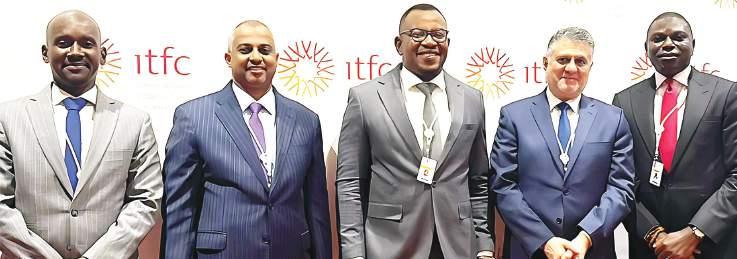
Vice President Kashim Shettima has said there is an urgent need for institutional reforms as the foundation for solving the majority of Nigeria’s public policy challenges.
According to him, strengthening the nation’s institutional frameworks would address 80 per cent of nation’s public policy challenges.
Shettima stated this on Monday during the official presentation of the draft National Public Policy Development and Management Framework by the Special Adviser to the President on Policy and Coordination/Head of the Central Results Delivery and Coordination Unit (CDCU), Hajiya Hadiza Bala Usman.
He described the new policy framework as a transformative approach that has been “long overdue” in Nigeria’s governance architecture.
“If we get our institutional frameworks right, we will solve 80% of our public policy challenges. This approach is long overdue,” Shettima said.
The Vice President called for a national reset in the way public policy is conceived, communicated, and implemented, noting that the mitochondria of every government is a workable national public policy.
Commending President Bola Tinubu’s leadership, Shettima praised the President’s unique blend of public and private sector experience and his readiness to implement bold reforms.
He said: “For the first time, we
have a leader who understands the dynamics and speaks the language of economics. He has the courage to take far-reaching decisions. We cannot but commend President Tinubu for his very promising reforms across all sectors of the national economy”.
The Vice President also stressed the importance of policy clarity and communication, pointing out that reforms must be clearly understood by the public and consistently implemented across all tiers of government.
Highlighting the role of egovernance and digitisation, Shettima advocated for data-driven policy execution and real-time monitoring, just as he also called for enforceable consequences within the policy framework.
“There must be targets and deliverables; if people fail to perform, they should be made to pay the price. Implementation without accountability is another word for lunacy. People must be made to account for their stewardship,” the Vice President said.
Emphasising the need to build strong institutions over reliance on individual leaders, Shettima drew a leaf from former United States President Barack Obama, saying, “Like former President Barack Obama said, what nations need is not strong characters or leaders, but strong institutions — institutions guided by strong, fair, and acceptable laws.”
Earlier, the Special Adviser to the President on Policy and Coordination, Hajiya Hadiza Bala Usman, told the
Vice President that the draft National Policy Development Framework was conceived by the realisation that the federal government had no document that conceptualised government policies.
“It is interesting, Your Excellency, to know that at the beginning of this administration, it was quite baffling that the federal government did not have a guiding document which specifies the process by which policies should be conceptualised.
“Ministries, Departments and Agencies (MDAs) of government had been operating in silos, often producing overlapping and outdated policies. This has led to fragmentation, policy inconsistency, duplication of efforts, and ultimately inefficiency in the government’s endeavours.
“These challenges have not only impeded the realisation of government goals, but it has also weakened public trust and discouraged investor confidence. Recognising this urgency
and the need to address these systemic issues is what enabled us, as a team, to initiate this process,” she stated.
Hajiya Usman, however, expressed confidence that the Draft National Policy Development Framework will address deep-rooted challenges of policy management and lack of coherence and consistency across MDAs.
The Draft National Policy Development Framework, she noted, is the result of extensive collaboration
between her office,
of
President, Office of the Secretary to the Government of the Federation, National Institute for Policy and Strategic Studies, the foreign and the National Economic Summit. The Presidential Aide assured that with the input of the Vice President, the draft framework will provide the much-needed clarity, structure, and coherence that will enable the development of policies with clear intent.
The Investments and Securities Tribunal (IST) has disclosed that it is on the verge of migrating to e-Filing of cases, stating that the physical filing of cases would cease to exist once its new electronic filing platform becomes fully operational.
Barring any alterations, the Tribunal is expected to go live with the e-filing platform in July 2025
The IST is a civil, independent and specialised judicial body established under Section 274 of the Investments
and Securities Act (ISA) 2007 (now repealed), to adjudicate capital market disputes.
The IST Chairman, Amos Azi who spoke in Abuja at a stakeholders’ engagement meeting towards unveiling the Tribunal’s new e-filing platform, described the onboarding of the IST to the e-filing platform as a positive development that would enhance the investment climate in Nigeria.
The initiative, he stated, is poised to boost investor confidence and stimulate intentional capital investment in the country.
However, Azi issued a note of caution that once the e-filing system becomes fully operational, the physical filing of cases will no longer be allowed. According to him, the stakeholders’
meeting was convened to ensure that legal practitioners are adequately trained on the new system.
He also noted that the newly enacted Investments and Securities Act (ISA 2005) prescribed punitive measures of no less than N10 million against operators of Ponzi schemes. He stressed that the repealed 2007 Act did not provide for such sanctions against Ponzi scheme operators.
Azi explained that the new provisions in the Act were expected to serve as a deterrent and help tackle the menace of illegal investment operators within the capital market.
In addition to the sanctions, Azi highlighted other significant innovations introduced by the Act.
These include the recognition of digital assets as securities, legal
acknowledgment of cryptocurrency, and provisions for virtual service providers. He explained that these additions allow for the establishment of virtual exchanges and broaden the Tribunal’s jurisdiction to adjudicate disputes arising in these areas—after passing through the complaint management framework.
In an interview, the Chairman of the Nigerian Bar Association (NBA), Gwagwalada Branch, Owhor Clever, appealed to the Tribunal to extend training opportunities to the association’s members to ensure seamless court proceedings under the new system.
The stakeholders’ engagement on e-filing and case management also featured online participation from Abuja, Port Harcourt, and Enugu States.
Fidelity Bank MD, Dr. Nneka Onyeali-Ikpe, is championing gender equity and empowering women to lead across industries as she recently shared her inspiring story and insights at the London Business School (LBS) Alumni Community Nigeria event, held as part of celebrations for this year’s International Women’s Day.
The event, themed - “Accelerate Action” - brought together high-calibre, career-driven C-suite leaders across various sectors such as finance, FMCG, investment, and more, for a candid conversation on breaking barriers, navigating leadership, and the shared responsibility to accelerate action.
London Business School (LBS) is a world-renowned institution known for shaping global business leaders. With alumni in over
150 countries, its alumni network in Nigeria is particularly vibrant, comprising distinguished professionals, executives, and industry leaders who are committed to excellence and societal impact.
Dr. Onyeali-Ikpe shared her trailblasing journey to becoming the first female CEO in Fidelity Bank’s history, recounting the challenges of rising through the ranks in a male-dominated industry.
“I have personally never acknowledged the gender glass ceiling in my career or in anything in my life. When something looks like a barrier, I see it as motivation to go even harder”, she said.
Her story, marked by resilience and a refusal to be boxed in by stereotypes, offered inspiration to many of the women in the room.
Dr. Onyeali-Ikpe emphasised that success comes from talent, consistency,
discipline, and the willingness to take bold steps even when failure feels like a possibility.
“Don’t fear failure. It’s part of the process. Every misstep has taught me something that helped me get better”, she advised.
She also spoke about the importance of balance, acknowledging that modern women often juggle many roles from business leader to caregiver. “Learning to balance family and career is not just important for business success, it’s important for success in life,” she said.
While celebrating the progress made in recent years, Dr. Onyeali-Ikpe called for more action to ensure true gender equity across sectors.
“Today, 11 of Nigeria’s 26 commercial bank MDs are women. That’s progress, but we must not stop there. We want that number to go to 14, 15 and beyond.”
Onyebuchi Ezigbo in Abuja
National Agency for Food and Drug Administration and Control (NAFDAC) has accused a prominent social media influencer, the Very Dark Man of colluding with fake drug merchants to incite the public against the agency in a bid to circumvent the law.
In the video, the popular social media influencer was shown in the midst of protesting traders in the Onitsha Bridge Head Market in Anambra State, alleging that officials of NAFDAC were extorting money from them before
reopening their shops closed in wake of the operation against fake and unwholesome medicine.
The traders said they being forced to pay monies ranging from N500,000 to N700,000 in order to reopen their businesses. However, in a statement signed by the Director General of NAFDAC, Prof. Mojisola Adeyeye, the agency said “the market has been reopened on the 9th of March 2025 and that over 2500 traders with 3500 shops who have come forward for necessary regulatory procedure have resumed their normal activity in Ogbogwu
market”.
She said the remaining few shops whose owners have refused to come forward for identification are the ones with outrightly banned narcotics according to our database. She explained that due to the intervention of the respective state governments, the traders were given a moratorium to relocate to a conducive Coordinated Warehouse Centre where their activities will be well monitored and controlled while being held accountable for previous infractions to serve as a deterrence in accordance with gazetted regulations.
To inaugurate section 1 of Lagos-Calabar coastal highway, Lekki Deep Sea Port, Tax Credit Concrete Road on Saturday Billed to observe Eid-el-Kabir prayers at Dodan Barracks before returning to Abuja Tuggar reels out series of activities to celebrate ECOWAS
Deji Elumoye
and Michael Olugbode in Abuja
President Bola Tinubu will depart the nation’s capital, Abuja, today for Lagos to celebrate, along with other leaders, the 50th anniversary of the Economic Community of West African States (ECOWAS).
The ECOWAS golden jubilee was flagged off in Accra, Ghana, last month.
According to a release yesterday by the presidential spokesperson, Bayo Onanuga, the Lagos events will include re-enacting the 1975 declaration at the Nigerian Institute of International Affairs (NIIA) in Victoria Island.
In a major breakthrough, the Duchess International Hospital, located in Ikeja, Lagos, has successfully performed a complex open-heart surgery on a five-year-old boy, whom it simply referred to as ‘Master D’.
The intricate procedure, which spanned three days from May 19 to 21, lasted for approximately 15 hours, showcasing the expertise and dedication of the hospital’s multidisciplinary team.
Speaking at the hospital’s headquarters in Ikeja, Lagos, yesterday, Dr. Mudasiru Salami, a renowned Consultant Cardiothoracic and Pediatric Surgeon who led the team, said: “I’m thrilled to announce that the surgery was a huge success, and Master D is on the road to recovery.
“Our team worked tirelessly to repair the defects in Master D’s heart, and it’s a reflection of our skill and
That was as northern delegates to the national coalition resolved to present a united front in political choice going forward.
Delivering a key note address at the meeting, Malami underscored how bad policies, including the unplanned removal of fuel subsidy and bad management of borders, were adversely affecting the economy of northern Nigeria.
He stated, “Just a few days ago, the ruling party held its national summit and instead of addressing the serious issues of insecurity, economic hardship and rising poverty, it chose to focus on politics, endorsing President Bola Tinubu as sole candidate for the 2027 election that is still two years away.”
Malami, who was AGF in the President Muhammadu Buhari administration, said it was shocking that the government abandoned governance in the face of pressing economic and security challenges.
According to him, reckless decisions by the Tinubu administration have crippled agriculture, which was the backbone of the north.
A communique from the meeting, signed by former Secretary to the Government of the Federation (SGF), Babachir Lawal, stated, “Concerned by the worsening insecurity situation, which has aggravated poverty, loss of lives and property, unemployment and destitution in the entire northern region, the Second Expanded Meeting of the National Political Consultative Group (North) held at the Ladi Kwali Hall, Continental Hotel, Abuja on Sunday, May 25, 2025.
“The group is founded with the objective of uniting Northern political leaders and forging a strong relationship and working as a united interest group, as much as possible within a political party.
“The meeting was attended by prominent political leaders drawn from all the 19 states and the FCT with the main focus of reviewing the challenges of insecurity in the north.
“A keynote address was presented
At the main event, scheduled to hold at Eko Hotels and Suites, Tinubu, who is Chairman of ECOWAS, will highlight the economic bloc’s milestones, while Chairman of the NIIA and former Minister of External Affairs, Professor Bolaji Akinyemi, will review the bloc’s 50-year journey, which panellists at NIIA will later analyse, the statement said.
It said the only surviving Head of State, who signed the ECOWAS declaration, General Yakubu Gowon (rtd), will participate in all the activities and deliver a speech at Eko Hotels. President of the ECOWAS Commission, Dr Omar Touray, will deliver the welcome address.
dedication that he is making such a remarkable recovery,” he added. It was learnt that the patient was born with Tetralogy of Fallot, a congenital heart defect that affects the normal flow of blood through the heart. The condition led to severe health complications, putting the young boy’s life at risk.
However, thanks to the exceptional care and precision of the medical team, the young man has made a remarkable recovery, it was gathered.
“We are proud of our team and the exceptional care they provided to Master D. We are grateful for the opportunity to make a difference in the lives of our patients and their families”, said Salami.
“The surgery was a complex procedure, but we were confident in our team’s abilities. We are proud of our team’s commitment to providing world-class medical services, and this success story reflects our hospital’s mission to deliver exceptional care
to the meeting by Mallam Abubakar Malami SAN.
“Goodwill messages were received by leaders from the South-south, South-east and South-west geo-political regions of the country, represented by Mr. Rotimi Amaechi, Mr. Peter Obi, and Ogbeni Rauf Aregbesola, respectively.
“Delegates acknowledged that insecurity had reached unprecedented level under the present administration, aggravating poverty, hunger, destitution and near collapse of education at the primary and secondary levels.
“Delegates agreed that the three major drivers of any society are fear, emotions and knowledge and resolved that the North must not allow itself to be driven by fear nor emotions but by knowledge.
“Delegates resolved that the north must proceed with a united front in political choice going forward to ensure the regions gets its maximum return in national political participation.”
Accordingly, the communique urged that the political platform on which the interest of region would be pursued should be unveiled urgently.
It stated, “That the region and, indeed, the nation need selfless leaders both in the management of political parties as well as public sector governance.
“Decried the impunity of elected leaders who run away with the peoples mandate by purporting to make decisions for their constituents without consultation, citing the recent developments in which elected governors and legislators are usurping the power of the people by endorsing other persons and themselves for re-election to political offices without reference to their constituents, advising that constituents should sanction such elected officials to serve as deterrent.
“Agreed on the need to escalate the group’s initiative to all the 19 states and FCT though the provision of the appropriate template.
“Resolved that the region must
The release said while in Lagos, Tinubu will, on Saturday, May 31, inaugurate some projects of his administration. Among them are Section I of the Lagos-Calabar Coastal Highway, Lekki Deep Sea Port, and Tax Credit Concrete Road. He will also flag off of Section II of the Lagos–Calabar Coastal Highway, and the 7th Axial Road.
The president is also expected to virtually inaugurate Kano-KanwarDanja-Hadejiya Section II Road and Yakasai-Zalli Road and flag off the Kano Northern By-pass, Zaria-Hunkuyi-Dabai Section I, Dabai-Kafur Malumfashi, and Malumfashi-Dayi-Yashe-Gidan Mutum Daya Section III.
to our patients”, Shitta-Bey noted.
“We’re committed to delivering exceptional care to our patients and making a difference in their lives. We are proud of our team’s achievements and look forward to continuing to push the boundaries of medical excellence”, said the Chief Executive Officer, Duchess International Hospital, Dr. Adetokunbo Shitta-Bey.
The parents of the patient, Mr. Ademola Adetona and Mrs Olutope Adetona, expressed their heartfelt gratitude to the medical team and the hospital for giving their son a second chance at life.
“We are incredibly thankful to God and the entire medical team for their expertise and care,” said Mrs. Adetona, fighting back tears.
“We were worried about our son’s condition, but the doctors and nurses at Duchess International Hospital have been amazing. They have given us hope and saved our son’s life. We can’t thank the medical team enough for
prioritise and promote industrialisation and high productivity in all sectors in order to exit the present economic quagmire.
“That in working towards a united north, the issue of equity, fairness and justice, both within and between states, must be addressed comprehensively.
‘’That, going forward, the north
by all standards.
Adesina, the first Nigerian to lead the Bank, also highlighted that the AfDB’s flagship development framework, the High 5s, has directly impacted 565 million lives across the continent, with major gains in healthcare, food security, transport, electricity, and water access.
He also charged whoever would succeed him to build on the institution’s legacy, stand firm for Africa’s interests on the global stage, and steer clear of superficial, ineffective initiatives. Election for the next AfDB President holds this Thursday.
Speaking at the President’s Media Welcome Breakfast in Abidjan, Côte d’Ivoire, at the ongoing AfDB Annual Meetings, Adesina reflected on his tenure with a blend of pride, candour, and vision.
He said: “The two things I am proud of are that we were able to mobilise resources for this like never before in its entire history. The capital of the bank grew from $93 billion to $318 billion.
“In fact, yesterday I was talking with my vice president of finance, and she told me that because of the variation in currencies and our value, it is not even $318 billion, it is $325 billion. So, I’m very proud of the fact that we mobilised that amount of resource.
“The second thing I’m very proud of is that the AfDB has helped to shape, define, and defend the interests of Africa everywhere in the world.”
Speaking further he added: “When I was elected in 2015, I did not have any grey hair then. Now my hair has
Onanuga stated that Tinubu would observe the Eid-el-Kabir prayers at State House, Dodan Barracks, before returning to Abuja.
Meanwhile, Minister of Foreign Affairs, Ambassador Yusuf Tuggar, listed a series of activities earmarked for the ECOWAS anniversary.
Addressing a press conference in Abuja, Tuggar, who doubles as Head of ECOWAS Council of Ministers, unveiled the activities to mark the 50th Anniversary, including high-level summits, public lectures, youth forums, and cultural exhibitions, which would be held at Eko Hotels and NIIA, Kofo Abayomi Street, Lagos.
giving us our son back. We are grateful for their dedication, compassion, and expertise. They are truly angels in white coats”, she added.
The surgical team comprised a diverse group of experts, including cardiac surgeons, anesthetists, perfusionists, and intensivists. Together, they worked tirelessly to repair the defects in Master D’s heart, including a hole in the wall between the two lower chambers, a narrowing of the pulmonary artery, and a thickening of the muscle on the right lower chamber.
The surgery was performed by a team of experts, including Dr. Salami, Consultant Cardiothoracic and Pediatric Surgeon; Dr. Bassey Udom, Cardiac Intensivist and Anaesthetist; Dr. Oladele Ojo, Medical Director; Mrs Adeola Lawal, Team Lead, ICU & CCU and Mr. Ayomide Ajani, Centre Manager, Cardiac Theatres and Endoscopy.
The hospital stated that the youngster’s road to recovery has
must premise its support for candidates at elections on enforceable agreement for the purpose of ensuring and protecting the informed interests of the region, irrespective of where the candidates come from.”
The meeting finally resolved to setup committees to facilitate implementation of its decisions
turned several shades of grey. Grey from 10 years of unrelenting drive to push Africa forward; grey from our tireless efforts to turn the Bank into a globally respected financial institution, where it was ranked as the best multilateral financial institution in the world.
“Grey from leading the Bank to achieve the highest replenishment of the African Development Fund in the history of the Fund, as we successfully raised $8.9 billion for its 16th replenishment.”
Adesina’s presidency with the High 5s strategy revolved around ‘Light Up and Power Africa, Feed Africa, Industrialise Africa, Integrate Africa, and Improve the Quality of Life for the People of Africa’.
Adesina said: “ In all, 128 million people now have access to improved health services. Also, 121 million people now have access to improved transport; 104 million people are now food secure; 63 million people now have access to potable water; 34 million people now have access to improved sanitation and 28 million people now have access to electricity.
“And from the ground-breaking and unprecedented Mission 300 Energy Summit jointly launched in Dar Es Salaam by the African Development Bank Group and the World Bank Group, and other partners, another 300 million Africans will have access to electricity by 2030. These are not just figures. They are futures. They are hopes realised.”
When the Russia-Ukraine war disrupted global food systems, Adesina said the Bank responded
“These events will reflect on ECOWAS’s journey, honour its founding fathers, and outline the future path of integration, peace, and prosperity,” he said.
The minister said according to the visions of the founding founders of the organisation, ECOWAS was initially focused on economic cooperation— customs union, trade liberalization, and infrastructure integration – stating that Its transformation began in 1990, with the deployment of the ECOWAS Monitoring Group (ECOMOG), a military force, to Liberia, signifying a shift to peace and security architecture.
Tuggar added, “Since then, ECOWAS
been remarkable, with significant improvements in his condition.
His parents expressed heartfelt joy and gratitude for the medical team’s efforts, expressing the hope of a bright future for the boy.
“We’re so grateful for the care and attention our son has received,” they said. “We’re looking forward to a bright future for our son, and we’re thankful to the medical team for giving us hope,” they added.
The achievement highlights Duchess International Hospital’s commitment to providing world-class medical services. The hospital’s state-of-the-art facilities, highly skilled medical team, and dedication to excellence makes it a leader in advanced medical care in Nigeria.
Meanwhile, the federal government is set to unveil three new cancer centres, with capacity to train 500 clinicians over a three-year period.
The three will be the first batch in a list of proposed 10 centres nationwide.
In a note from the Minister of Health and Social Welfare, Prof. Ali Pate, he explained that the centres which are set for inauguration on May 29, will serve nearly 2,000 oncology and 350,000 diagnostic clients annually.
“As President Bola Ahmed Tinubu marks the midpoint of his first term in office, I am pleased to unveil the most significant investment any Nigerian administration has ever made in cancer care.
swiftly with a $1.5 billion Emergency Food Production Facility, enabling 13 million farmers across 29 countries to access seeds and fertilisers. The result, he said, were 44 million metric tons of food produced, with 116 per cent above target worth $17.3 billion.
On his advice to his successor, he said: “The responsibility of that leader is to build on the past, to look far into the future, and to find within themselves what the courage it takes to stand up for Africa’s interest.
“To make sure that Africa’s voice is never silent on the issues that matter globally and where it matters globally. We must never follow. We must lead. And to be leading, you have to understand.
“This president, I always say, Africa does not need Mickey Mouse projects from the Mickey Mouses. I hope I have given enough for my successor. But that successor will have my prayers. And of course, we have excellent staff at the African Development Bank. There are a lot of institutions that will be able to help.
“For the role of a leader, vision, leadership, guidance, direction, and boldness are required to defend the positions you believe are in the best interest of a continent. This is not a job that you want to be popular and make friends.
“It’s a position where you have to confront certain ideas and certain philosophies that are not necessarily going to advance Africa’s interests. So please, if you don’t have the backbone to do so, don’t take this position.”
Meanwhile, the AfDB is confronted with an imminent change
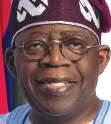
“It entails the largest chain of oncology and diagnostic centres in West Africa with the capacity to train up to 500 clinicians over a three-year period while serving nearly 2,000 oncology and 350,000 diagnostic clients annually,” Pate stressed.
In the coming days, he stated that the newly constructed cancer centres at the Federal Teaching Hospital, Katsina; the University of Nigeria Teaching Hospital, Nsukka; and the University of Benin Teaching Hospital, will be commissioned by President Bola Tinubu and opened to the public.
According to the minister, while key staff of the institutions are presently being trained in South Africa ahead of full institutional operationalisation, the National Health Insurance Authority (NHIA) has launched a cost-sharing initiative to improve access to cancer care.
This, he said, will be done by subsidising up to N400,000 for eligible disadvantaged patients undergoing radiotherapy, and by extension, helping to reduce the financial burden of treatment.
“Under the compassionate leadership of H.E. President Bola Ahmed Tinubu, and in conformity with his Renewed Hope Agenda, we are removing both supply and demand obstacles to affordable and qualitative cancer care in Nigeria,” Pate added
of leadership, as the continent’s biggest multilateral lender, faces unprecedented challenges from funding cuts by the US government.
The Donald Trump administration wants to cut $555 million in funding to the AfDB and its African Development Fund, which offers low-priced financing to the continent’s poor nations, a Reuters report said yesterday.
The winner, who must secure at least 50.01 per cent of the votes from the 54 African member states of the bank, and in a second vote from all 81 members, including non-African ones, will be announced on Thursday. The annual gathering of heads of state and finance officials, taking place this year in Abidjan, is one of the biggest finance meetings on the continent. It comes as heavily indebted governments in the region are searching for new sources of financing to bankroll their development projects.
AfDB, which is Africa’s largest development finance institution with $318 billion capital, is owned by 54 African states and G7 nations such as the US and Japan. Its biggest shareholder is Nigeria.
The next round of replenishment for the ADF, which is held on a three-year cycle, is scheduled to take place in November. It is targeting to raise $25 billion, up from $8.9 billion in the last round. The new president will have to try to persuade the US to reinstate
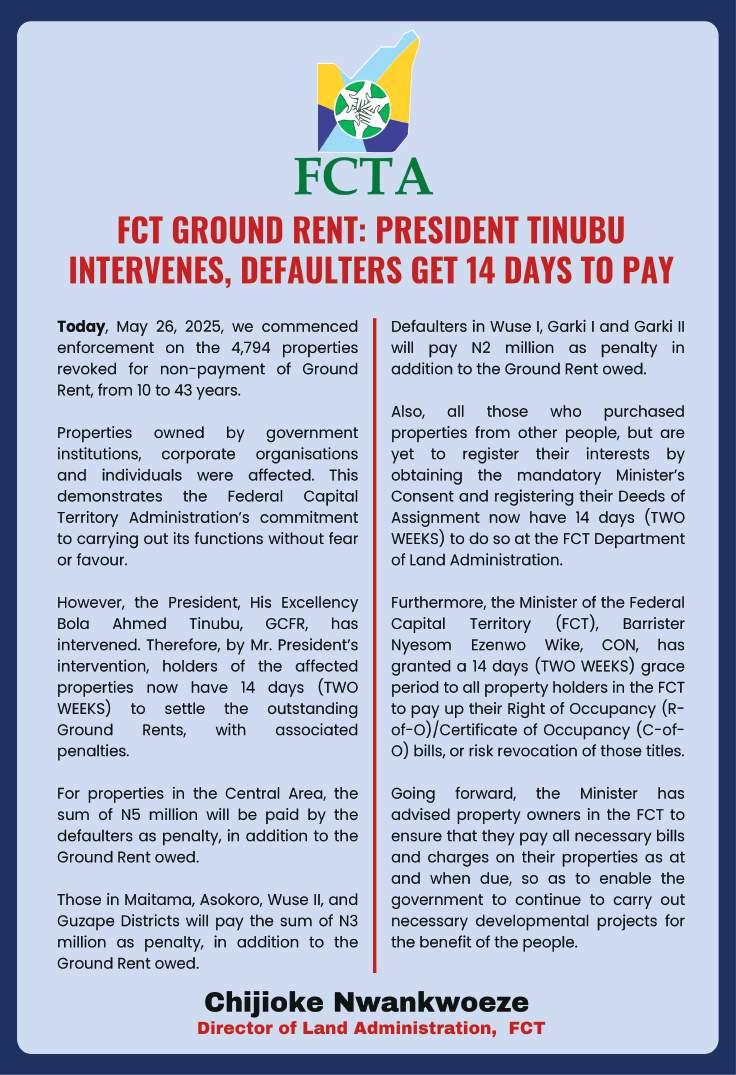
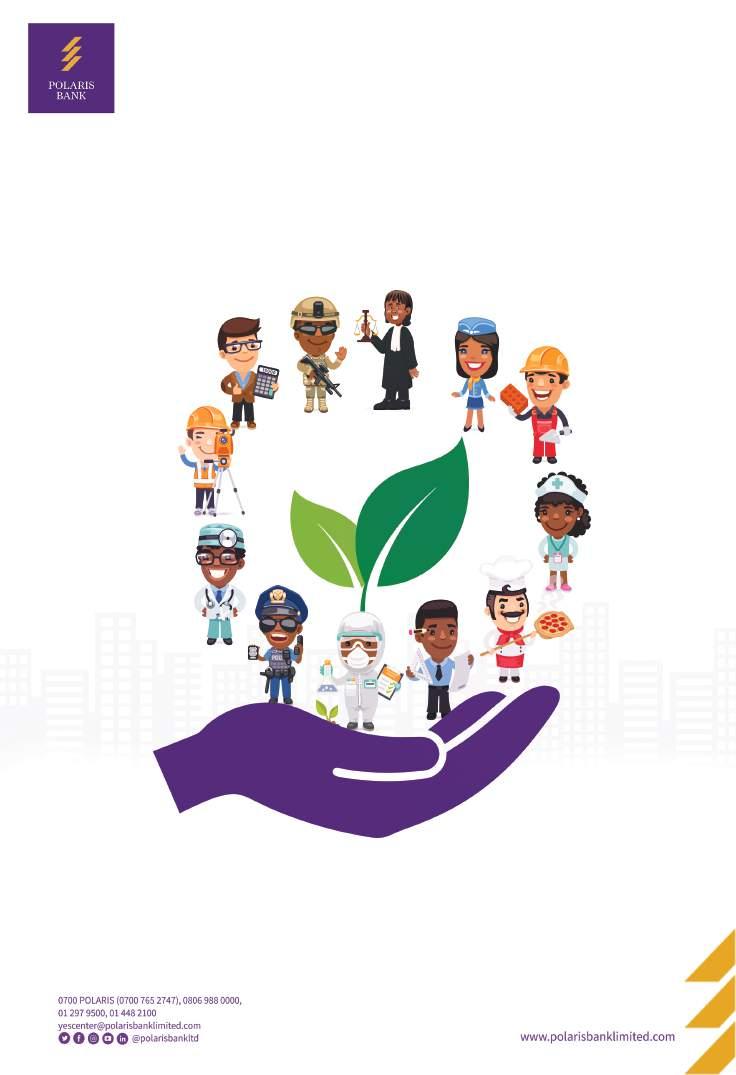


On this momentous occasion of your 60th birthday, I extend my heartfelt congratulations and best wishes. Your remarkable journey as a statesman, your steadfast dedication to public service, and your unwavering commitment to the progress and well-being of our people have left an indelible mark on our nation’s history.
As a former governor, former minister and enduring political icon, your legacy continues to inspire generations of leaders and citizens alike. May this milestone celebration be filled with joy, reflection, and the profound gratitude of those whose lives you have touched.
Wishing you continued health, happiness, and fulfilment in the years ahead.
Happy birthday!
MOHAMMED BELLO ADOKE CFR, SAN Former Attorney-General of the Federation & Minister of Justice


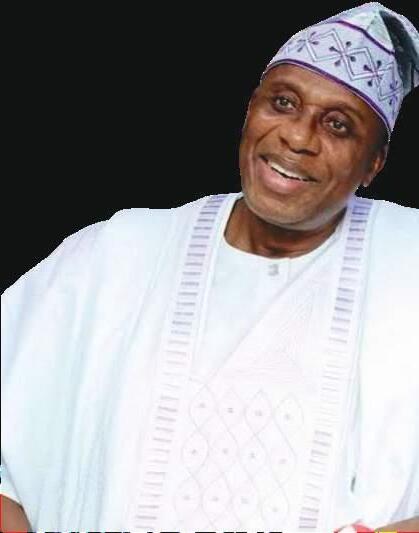

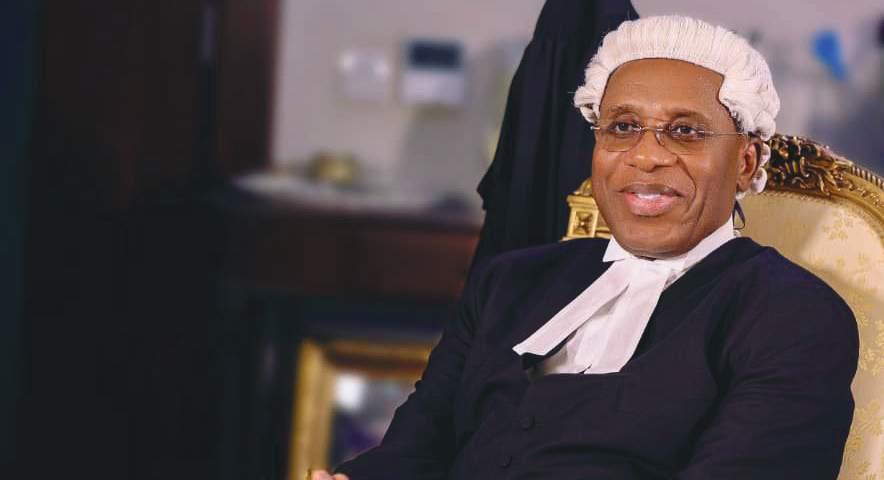
Former Minister of Transportation
Today, we proudly celebrate our dear friend and brother whose life has been nothing short of inspiring.
As you celebrate this milestone, UNIPORT 80’s ALUMNI GROUP
join millions of friends and well-wishers around the world in thanking God for your impactful leadership qualities and service to humanity.
Congratulations!
Signed:




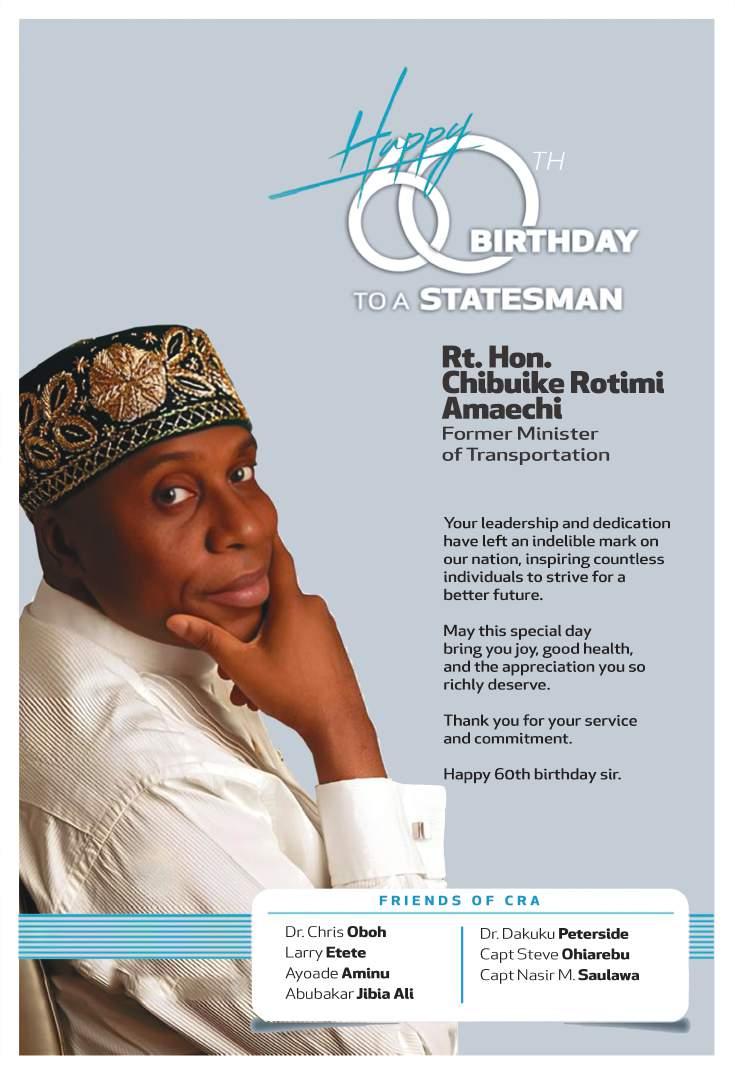


Today, we celebrate not just a milestone age of 60, but the incredible journey of a courageous and visionar y leader who has guided us with wisdom, strength and unwavering dedication.
Your leadership has been a beacon of inspiration.
Thank you for leading with hear t and making a difference in our countr y.
1. Austin Asomeji
2 Baridakara Gbarato
3. Barr. Achor Omordu
4 Barr. Dornu Nwinang
5. Barr. Somiari Ogolo
6. Barr. Azubiuike I. Dike.
7 Bobby Pollyn I
8 Chief Chima N. Nnokam
9 Chief Emeka Beke
10 Chief Hon Emmanuel Chinda
11. Chief Kerian Wobodo
12 Chief Onyekachi O jiegbe
13. Chief Senator Andrew Uchendu
14 . Daere Horsfall
15. Delight Oyibo
16 Dr Batam Ndegwe
17. Dr Chris Oboh
18 Dr Chris Oyirinda Amadi
19 Dr Chukwudi Dimkpa
20. Dr Dabota Jumbo
21. Dr Dakuku Peterside
22 Dr Godstime Orlukwu
23. Dr Joybell Awoala
24 Dr Ndubuisi Nwankwo
26. Dr Sokonte Davies
27 Dr Victoria Nyeche

41. Hon Azubuike Wanjoku
42 Hon Baridor Badom
43. Hon Dave Okumgba
44 Hon Dickens Worlu
25. Dr Reginald Ukwuoma
28. Dr. Godwin I. D. Peterside
29 Dr. Mrs Joeba West
30 Elder George Feyii
31. Elder Onengiye Amachree
32 Emmanuel Orlu
33. Emmanuel Orlu Philips
34 . Engr Chief Austin Bobmanuel
35. Engr Chief Okiye-Evans
36 Engr Junior Tam Alalibo
37. Engr. Ode Prof Thankgod
38 Hajia Hadiza N. Chukwuma-Faruq.
39 Hajia Rabi Mohammed
40. Hon Asita Honourable
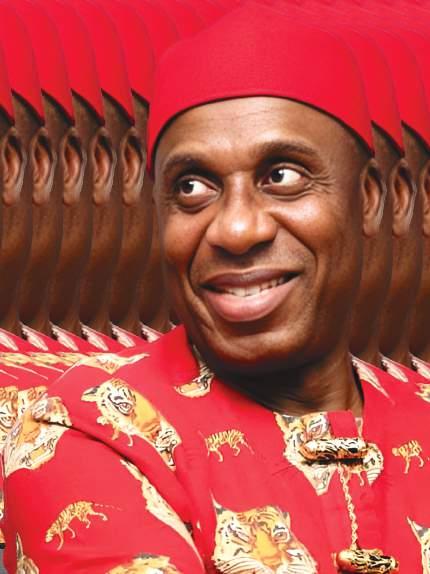
61. Kate Sam Ngbor
62 Kenneth Epidei
63. Lady Beatrice Dappa
64 Lazarus Damabara
45. Hon Dr John Bazia
46 Hon Henry Akul Halliday
47 Hon Ibim Dagogo Duke
48. Hon Lucky Worlu
49 Hon Maclean Uranta
50 Hon Onari Brown
51. Hon Owene Nwonodi
52 Hon Sam Etetegwung
53. Hon Sir Chief Ibroma Kitchner
54 . Hon Welendu Amadi
55. Hon. Emeka Eddeh.
56 Hon. Lawrence N. Amadi
57. Hon. Loveday Michael Jaja
58 Hon. Maxwell Akwe
59 Josiah Otto
60. Jyke Abbey


65. Mayor Owhonda
66 Mene Piate
67 Mrs Aleruchi Cookeygam
68. Mrs Ibiba Omotosho
69 Mrs Lolo Harry-Philips
70 Nathaniel Iringeri
71. Oliver Onyegbula
72 Onyeukwu Gift
73. Pastor. Arch. Tonye Cole
74 . Rt Hon Tonye Longjohn
75. Samuel Ezebunwo Amadi
76 Sir (Hon) Orom Nte Ereforokuma
77. Sunny Obowu

Our family would like to extend our hear tfelt wishes to you on your 60th bir thday.
Your guidance, generosity and unwavering suppor t over the years have made a profound difference in our journey, and we are truly grateful for your kindness.
May this special day bring you joy, good health, and countless moments of happiness.

www.thisdaylive.com

Tuesday May 27, 2025

opinion@thisdaylive.com
We are not there yet, but the Tinubu administration is making a difference, reckons ISMAIL
AUWAL

See page 21
ADAORA
ONYECHERE SYDNEYJACK argues that passing the special seats bill is long overdue

See page 21

Our royals must restore relevance and reverence to our traditional institutions, urges TUNDE OLUSUNLE

Royalty enjoyed tremendous reverence when my generation was growing up. As a schoolboy in Benin City those days, the *Oba* savoured profound reverence and conjured trepidation amongst his subjects. He was and still is introduced with the prefix *Omo N'Oba N'Edo Uku Akpolokpolo.* Much as this simply means "His Royal Majesty, the Oba of Benin," it is without doubt, a jarring mouthful. He is regarded as sole emissary of the supreme deity and possibly a god in his own right, most probably consecrated by cosmic consent. *Oba Akenzua II* was on the throne in my teenage days in Benin City. He loomed large in the public consciousness who barely caught a glimpse of him anywhere. The wholesale mythification of his office was such that his name was conjured to serve as warning and deterrent to potential rabble rousers. The now popular phrase, *You go see Oba* was added to day-to-day, now globalised conversational lexicon in my time. It served as deterrent to mischief and errant conduct. The lawless were thus admonished on circumspection, lest they had to go through the labyrinthine motions of seeking justice or redress before a barely ever seen *Oba.* I equally keenly followed the trajectory of the immediate past *Ooni of Ife, Oba Okunade Sijuwade, Olubuse II.* Immensely affluent, urbane and classy, he brought elan, style and panache to bear on his office. He was famous for his striking regalia, typically complemented by corresponding accessories and adornments. He breathed style and elegance. The very popular *Forbes magazine* indeed once rated *Ooni Olubuse* as the "third richest royal in Africa" in his time. I was privileged to meet him a few times during his lifetime. I was still a student and member of one of our departmental students associations in school when I had the first encounter with him.
Despite his impeccable proficiency in the English language, *Oba Sijuwade* elected to speak Yoruba during most of his engagements. This linguistic preference reinforced the belief that he was truly the mouthpiece of the gods and ancestors. There was always, ever a competent interpreter by his side, usually his long-serving Press Secretary, Funmilola Olorunnisola, himself a ranking Chief of Ile-Ife. The *Ooni* conveyed his thoughts and messages through him to his guests and audiences.
Contemporary royals have dominated the news in recent days and weeks. The manifest unseemly conduct of some of them, is totally at variance with their standings and statuses as traditional rulers. Indeed, their actions in many instances have unwittingly whittled down the historical dignity of the exalted stools they occupy, in the catacombs of otherwise revered palaces. Such custodians of tradition have unknowingly transposed their venerated seats, to the full glare of the public, the marketplace. From Ipetumodu to Ibadan, to Oyo and to Katsina, in Osun, Oyo and Katsina states respectively, presumed royals have shown up in ways and manners which demean and diminish their offices. Such wholesome devaluation is of necessity impacting the very essence of the institution of natural rulership, passed down from ages and aeons.
The *Apetu of Ipetumodu,* Oba Joseph Oloyede, was arrested by United States security early 2024 for his role in obtaining COVID-19 relief funds

estimated at $4.2million, fraudulently. While his subjects anticipated the return of their king from what was supposed to be a routine visit to the US, Oloyede had been answering charges before Justice Christopher Boyko, of the US District Court of Ohio. He reportedly colluded with a certain Edward Oluwasanmi, a Nigerian-American clergyman, with whom he defrauded the US system of resources designated as buffer for US small businesses and nonprofit organisations experiencing pandemicrelated revenue losses. Court documents reportedly referenced falsified applications for "Paycheck Protection Programme Loans and Economic Injury Disaster Loans, under the US Coronavirus Air, Relief and Economic Recovery Act" submitted by Oloyede and Oluwasanmi.
Both men deployed fake tax and wage documents to secure funds intended to help struggling businesses keep afloat during the COVID-19 plague. Oloyede received about half of the $4.2million, scammed by him and his compatriot, Oluwasanmi. He reportedly invested his portion of the heist in real estate in the US. Oloyede by the way, was installed the Oba of his community in 2019. His profile as a travelled and affluent person counted amongst other considerations for the 62-year -old monarch. His present engagement with the US justice system may yet torchlight other probable underhand financial dealings in the course of his long sojourn in the country in which earned him a residency. This is as his subjects remain in shock and bewilderment over such unsavoury revelations concerning a leader they once exalted.
The *Ooni of Ife, Oba Adeyeye Enitan Ogunwusi, the Ojaja II,* recently had a spat with the *Alaafin of Oyo, Oba Abimbola Owoade.* at an event in Ibadan. Wife of the President, Oluremi Tinubu was guest of the Oyo State Government and both monarchs were invited to the programme. As the *Ooni* made his way to his seat, every traditional ruler on his route honoured him by rising to welcome him. The *Alaafin,* however, refused to rise up, even as he shook hands with the *Ooni* from his seating position. There is a long history about the rivalry for preeminence between the *Alaafin* and the *Ooni.* It was partially resolved when the administration of President Ibrahim Babangida created two states, Oyo and Osun, out of the erstwhile Oyo State. Both rulers were venerated as the *Numero Uno* monarchs in the various states. As the Ibadan incident revealed, however, animosity abounds between the *Ooni* who is 50,
and the *Alaafin* who is 49, beyond the historical acrimony. A more recent reason has been adduced for the beef between both royals.
Decades ago, a US-based Nigerian of Yoruba descent, Efuntola Oseijeman Adelabu Adefummi, conceived of a "Yoruba village" to serve as a melting pot for Yorubas in the US. It was supposed to be a "home away from home" where the Yoruba essence will be celebrated. This vision berthed the *Oyotunji African Village* located in Beaufort County, South Carolina, in 1970. Efuntola Adefunmi the visioner was installed *Oba* of the "village." *Ooni Ojaja* has in the past, been requested by the leadership of *Oyotunji* to mediate during disputes and conflicts plaguing the village and he had always willingly sent emissaries. It has been suggested that *Alaafin Owoade* has been wrongfully briefed that his rulership of Oyo, encompasses *Oyotunji* which in reality is an address for all Yorubas from Nigeria, Benin Republic, Togo, Brazil and so on. This has been adduced as probable reason for the grouse between both men.
A recent incident where one Chief Lukman Ojora Arounfale, the *Baba Oba of Oyotunji African Village* was allegedly assaulted in the *Alaafin's* palace on the orders of the king, lends credence to the bile between him and the *Ooni.* The scenario which played out on Thursday April 17, 2025, was linked to the bitterness between the *Alaafin* and the *Ooni.* It fits the narrative that the *Alaafin* in reality conceives of *Oyotunji* as a diaspora extension of his kingdom. Chief Lukman Atounfale, we are told, died from injuries he sustained in the brutal attack on him and his wife, in the *Alaafin's* abode in Oyo. Such are the dimensions of controversies which have trailed the teething weeks and months of the reign of *Alaafin Owoade* who was only installed in January 2025, by Governor Makinde.
Overzealous palace guards, *dogarai,* working for the Emir of Katsina, Abdulmumini Kabir Usman last weekend, broke the glass entrance into the Katsina home of Dikko Radda, Governor of the state. Radda had given out one of his daughters in marriage earlier that day and was hosting dignitaries including President Bola Tinubu to a reception at his address. State protocol and security regulations prescribe that once the President or guest-in-chief is already seated at a function, late comers are shut out. It was bad enough that Emir Kabir Usman came long after the nation's chief executive was already settled. It was worse that his *fatawa* dared to bring down a section of the home of the chief host of the President. It was an utterly disrespectful act which underlined the operational manual in effect in the palace of the Emir. Let's hope the Emir has sent pertinent formal apologies to Tinubu and Radda, principally.
At every opportunity, traditional rulers are known to have canvassed specific roles for themselves in the Constitution of the Federal Republic of Nigeria. This seems plausible given their proximity to the mass of Nigerians especially in the distant hinterlands and deep recesses of our vast national space.
Olusunle, PhD, Fellow of the Association of Nigerian Authors, (FANA), teaches Creative Writing at the University of Abuja*

We are not there yet, but the Tinubu administration is making a difference, reckons ISMAIL AUWAL
There are stories that do not scream. They unfold not on television, social media scrolls or in the exaggeration of viral tweets but in moments of stillness, in places where peace used to be a stranger and is now fully settled. They whisper from war rooms lit by strategy, not spectacle. From farmlands where once no child dared to run, now echoing with laughter. From police outposts resurrected brick by brick, from rubbles and ashes. I believe this is one of those stories, a chronicle of how Nigeria, through quiet resolve and determined strategy, began to reclaim itself from the grip of chaos.
In the days before May 29, 2023, Nigeria resembled a federation of fragilities. Boko Haram’s menace in the Northeast had become a grim tradition. The forests of the Northwest served as capitals for bandit warlords, and separatist violence in the Southeast had turned whole communities into nogo zones. In Kaduna State alone, officials recorded 1,192 people killed and over 3,300 kidnapped in one year. By 2023, more than 35,000 had perished in the decade-long insurgency in Borno. In the oilrich Niger Delta, pipelines suffered more attacks than some military formations. We had not only inherited chaos; we had normalized it.
But then came a change not the kind that arrives with fireworks or national applause, but the kind you almost miss until it begins to reshape your mornings. President Bola Ahmed Tinubu brought with him a clarity of purpose, and in the shadow of that vision emerged a key figure—Nuhu Ribadu, the National Security Adviser, whose name evokes a different kind of fear now: fear among criminals that Nigeria has stopped sleeping.
On Thursday, the NSA was called upon at the APC midterm conference to give an account of this salient sector in the last two years. With no drama or innuendo, Ribadu gave an excellent account using facts and figures. Many in the room nodded because like millions of Nigerians they could identify how reign of terror that once stopped many people from going home now cave in to strategic warfare.
In two years under Tinubu’s leadership and Ribadu’s supervision, the story is pleasant for every dispassionate follow of events. In terms of figurers, over 13,500 terrorists and armed criminals have been neutralized. More than 17,000 arrests made. Over 11,200 hostages freed. More importantly, over 124,000 insurgents and their families surrendered, handing over more than 11,000 weapons. These are not just numbers, they are milestones engraved in human relief. They are the sighs of parents who once despaired of seeing their children return from school, or from bandits’ camps.
In the Northwest, especially Zamfara and Kaduna, 11,250 hostages have been freed, and some of the most dreaded warlords—Ali Kachala, Boderi, Halilu Sububu—are no longer here to perpetrate their reign of terror. The government also deployed a comprehensive system of non-kinetic approach using dialogue and community engagement. Dubbed the Kaduna Model, it’s a precursor to a full-scale initiative called Operation Safe Corridor Northwest, which is in the works. Through it, 35 repentant bandit leaders laid down their arms. It is not forgiveness out of weakness, but a recovery strategy.
In the Northeast, where peace seemed like a myth, Borno is witnessing what can only be called thoughtful rebirth. Over 13,543 insurgents neutralized. Over 102,000 surrendered. In the charred heartlands of the Timbuktu Triangle and the marshy lairs of Tumbu Islands, soldiers pushed insurgents into retreat. Eleven thousand recovered weapons and 252,596 rounds of ammunition lie in silent testimony.
Villages once erased from maps are reappearing in census reports. Resettlement has moved from policy to practice, and the air hums again with the
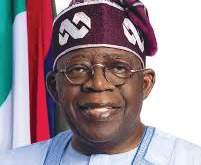
sound of trade.
The Niger Delta, once a corridor of corruption and criminal oil syndicates, witnessed a quiet economic resurgence. Crude oil production, which had dipped to less than a million barrels per day before 2023, climbed to an average of 1.8 million barrels in 2025. This was not a fluke. It was the product of relentless operations. Operation Delta Safe dismantled 1,978 illegal refineries, 3,849 dugout pits, and 3,773 cooking ovens used to process stolen crude. The pipelines turned green—operational—for the first time in years. And then, history was made: oil production was scheduled to resume in Ogoniland, a region silent for over three decades, this time with community consent and federal protection.
In the Southeast, the tide is turning. IPOB’s oncefeared sit-at-home orders are losing their grip. Fifty police stations have reopened. Separatist strongholds are collapsing. The streets of Enugu, Owerri, and Abakaliki hum again, not with threats, but with trade, traffic, and talk.
Perhaps the most underreported but crucial front is cyberspace security. Ribadu’s war room doesn’t just fight with boots on the ground—it wages battles in the cloud. The Binance case exposed billions in crypto-linked economic sabotage. Dozens of suspicious accounts tied to terrorism and separatism were frozen. The newly established National Digital Forensic Laboratory now supports military and law enforcement investigations. A robust plan to protect critical national infrastructure has been activated and enforced.
And still, Ribadu does not claim the spotlight. When he speaks, it is to remind us of the horrors we survived—the Kaduna train bombing, the Owo church massacre, the 1,841 inmates who vanished from Kuje and Owerri. He asks us not to clap but to remember.
This is not to declare total victory. The Sahel still burns with jihadist fury, and regional instability laps at our borders. Arms still flow illegally, and climate-driven conflicts remain a threat. But there is a difference now: Nigeria is not merely reacting. It is anticipating. It is prepared.
Eight pillars now guide our national security approach: intelligence, inter-agency coordination, frontline operations, equipping, aerial upgrades, cyber defense, capacity building, and international collaboration. These are not bullet points on paper; they are the reason we can now speak of progress, not just pain.
If President Tinubu lit the flame, Ribadu has guarded it, shielding it from the winds of cynicism and sabotage. Two years on, the flame does not flicker. It burns brighter.
This is the story of a country still marked by its wounds, but no longer defined by them. The story of a nation that now walks with purpose where it once stumbled in panic. The battles are not all won, but for the first time in a long time, Nigeria is not on its knees. It is on its feet.
Auwal
writes from Abuja, and can be reached via ismaaga6@gmail.com
ADAORA ONYECHERE SYDNEYJACK argues that passing the special seats bill is long overdue

In the grand amphitheater of democracy where every citizen is meant to speak, vote, and lead there remains a conspicuous and deafening silence. It is the silence of the sidelined, the muted roar of millions of Nigerian women whose voices are yet to fully echo through the hallowed halls of parliament. In a country where women constitute nearly half of the population, their political representation still hovers just above the margins, a mere whisper in a storm of governance. The debate around “special seats” for women is no trivial theater. This is not, as some would lazily argue, a sideshow. It is a fundamental reckoning with justice, equity, and the very soul of our democracy.
Those who deride gender quotas misunderstand both their necessity and their history. Quotas are not crutches for the incapable. They are correctives for centuries of exclusion. They are not about handing women power they are about clearing the way so that women can seize it. In societies like Nigeria, where cultural, economic, and institutional barriers persistently deny women equal opportunity to participate in politics, quotas serve as the scaffolding of a more just future. They are the instruments of leveling not lowering the playing field.
Globally, the evidence is irrefutable. Countries that have embraced quotas have not only improved gender representation; they have improved governance. In Rwanda, where constitutional gender quotas were introduced following the 1994 genocide, women now occupy over 60% of the seats in the lower house of parliament. The result? Rwanda’s governance has earned global recognition for innovation in health, education, and community development. The presence of women hasn’t just changed the gender makeup of parliament it has transformed its priorities.
In Bolivia, legislation mandates that half of all elected officials be women. Since implementing these laws, Bolivia has seen an uptick in legislation focused on poverty alleviation, indigenous rights, and education. In Norway, party quotas were pivotal in ushering in an era of strong female leadership, from corporate boardrooms to prime ministerial cabinets. These are not isolated anecdotes. They form a resounding pattern: when women lead, societies thrive.
Even across Africa, examples abound. Senegal’s parity law, introduced in 2010, propelled women into 44% of the parliamentary seats. South Africa’s African National Congress voluntarily adopted quotas, helping push the country’s proportion of women in parliament above 40%. These shifts have coincided with progressive legislation on reproductive health, gender-based violence, and social welfare issues too often neglected in male-dominated systems.
And then there is Nigeria a paradox of potential and paralysis. Despite being the continent’s largest democracy, Nigeria ranks abysmally low in female political representation, 179th globally. Out of 469 federal lawmakers, just 19 are women. That is less than 5%. At the state and local government levels, the figures are even more dismal. This is not just a democratic deficit; it is a crisis of credibility. How can a democracy speak for its people when half of those people are absent from the decision-making table?
What Nigeria faces is not a lack of competent women. It is a wall of structural prejudice a complex mesh of cultural expectations, economic disenfranchisement, media bias, electoral violence, and party gatekeeping. Women are expected to run races while being shackled by invisible chains. And when they dare to run, they are told they lack the merit.
But as Nigerian author Chimamanda Ngozi Adichie reminds us, “Culture does not make people. People make culture.” The culture of exclusion is not sacred. It is not destiny. It is policy, and it can be

changed by policy.
To those who say that gender quotas betray meritocracy, let us ask: how can merit be measured in a rigged system? When the gates to political power are fortified against women, it is not merit that triumphs it is tradition, privilege, and exclusion. We do not question the merit of men born into political dynasties or the fairness of incumbents perpetually recycled through patronage. Why then do we question the legitimacy of institutional pathways for women? Let us be clear: quotas are not the destination; they are the departure point. They are the ignition switch of inclusion. As former U.S. Secretary of State Hillary Clinton declared, “Human rights are women’s rights and women’s rights are human rights once and for all.” But in Nigeria, the conversation must go further. Women’s rights are not just human rights. They are democratic rights. And until they are respected, democracy itself remains a hollow promise.
To the National Assembly of Nigeria: the burden of history is upon your shoulders. You have the power to light a torch whose glow could illuminate the continent. Passing the Special Seats Bill, enshrining special seats in law, is not political charity. It is constitutional clarity. It is moral courage. And it is long overdue.
This is your opportunity to correct a national wound. To recognize that the absence of women in politics is not a gap it is a gaping hole in the heart of Nigerian governance.
This is your moment. Make it matter.
And let it be said of us that we were not the generation that clung to tradition while ignoring truth. That we did not let another decade pass in the quiet suffocation of women’s potential. That we rose, not in defense of the past, but in defiance of injustice. That we carved a space for every girl to dream, to dare, and to lead.
Let it be said of this generation:
We did not shrink from the echo of justice; We widened the table, we built new chairs. We listened when silence was no longer an option.
And in the parliament of tomorrow, she stood not alone. But as one voice in many, rising like thunder through the chambers of change. The time for special seats is not tomorrow. It is now. Not as privilege. But as principle. Not as favor. But as a foundation.
History is watching. Let us be worthy of it.
Adaora O.Sydney-Jack is an international broadcast journalist, author of the best seller, Politics, Pussy and Power, and Gender and Public policy expert

Editor, Editorial Page PETER ISHAKA
Email peter.ishaka@thisdaylive.com
The children should be well-provided for
As stakeholders across many countries mark the 2025 Children's Day, it is most fitting that Nigeria has adopted the theme, ‘Enhancing the Total Wellbeing of Children Through Quality Education and Skill Development’. But critical stakeholders in the country should go beyond sloganeering. To achieve that goal, it is important that they reflect on the impediment placed in the ways of children in Nigeria. The pitiable sight of numerous children who have been turned to professional beggars thronging major streets in Abuja, Lagos, and other capital cities, is enough to confirm that we have a crisis on our hands. Especially with more than 20 million children reportedly out of school, just as many are stunted and underweight because of poor nutrition. In a recent survey by the UNICEF, six out of every 10 Nigerian children suffer some forms of physical, emotional, or sexual violence before attaining the age of 18.

them. The surge of child soldiers in a country where most people find it difficult to feed their families is predictable. Education, for instance, which ought to have productively engaged these children, has suffered greatly because of the predatory activities of terrorists. As a matter of urgency, children must be removed from conflict zones while there should be sustained campaigns to sensitise the public on this growing malaise.
Even though the Child Rights’ Act has been domesticated in almost all the states, its provisions are hardly enforced
By prioritising children's rights and participation, we can help to build a better future for all. However, with about 70 per cent of families living below the poverty line, it is no surprise that education is often the first casualty in most rural communities in the country today. Children are usually the ones sent into the streets to hawk, or to work as house help for more fortunate families. Particularly disturbing is that repeated attacks on schools by sundry cartels of criminal gangs have created fear in many children with negative impacts on their attitude to education in several parts of the country. Yet, according to the United Nations Children’s Fund, when children are denied opportunity for education not only are their lives shattered, but the future of the nation is also stolen.
In recent years, there have been many reports that non-state armed groups are using children in the country as combatants and non-combatants, while committing other grave violations against
T H I S D AY
EDITOR SHAKA MOMODU
DEPUTY EDITOR WALE OLALEYE
MANAGING DIRECTOR ENIOLA BELLO
DEPUTY MANAGING DIRECTOR ISRAEL IWEGBU
CHAIRMAN EDITORIAL BOARD OLUSEGUN ADENIYI
EDITOR NATION’S CAPITAL IYOBOSA UWUGIAREN
THE OMBUDSMAN KAYODE KOMOLAFE

EDITOR-IN-CHIEF/CHAIRMAN NDUKA OBAIGBENA
GROUP EXECUTIVE DIRECTORS ENIOLA BELLO, KAYODE KOMOLAFE, ISRAEL IWEGBU
DIVISIONAL DIRECTORS SHAKA MOMODU, PETER IWEGBU, ANTHONY OGEDENGBE
DEPUTY DIVISIONAL DIRECTOR OJOGUN VICTOR DANBOYI
SNR. ASSOCIATE DIRECTOR ERIC OJEH
ASSOCIATE DIRECTOR PATRICK EIMIUHI
CONTROLLERS ABIMBOLA TAIWO, UCHENNA DIBIAGWU, NDUKA MOSERI
DIRECTOR, PRINTING PRODUCTION CHUKS ONWUDINJO
TO SEND EMAIL: first name.surname@thisdaylive.com
Letters to the Editor
Conscripting children into these armed groups is not only a gross abuse of their innocence, but also a systematic destruction of the present and future of the country. Already, armed conflict situations have created children who are separated from their families, unprotected, starved, and exposed to violence as their only means of survival. Besides the mental and physical torture, exposing children to armed conflict increases their risk of morbidity and mortality. To worsen matters, hundreds of thousands of children are dying every day because of indirect effects of conflict – including malnutrition, disease, inadequate healthcare, and poor sanitation.
Even though the Child Rights’ Act has been domesticated in almost all the states, its provisions are hardly enforced. Child marriage, child trafficking, child labour and rape of underage boys and girls are on the increase in many parts of the country. The United Nations Sustainable Development Goals in its blueprint for 2030 provides a universal plan to secure a better future for children. The 16th goal is dedicated to peace, justice, and strong institutions. To fulfil that mandate, authorities in Nigeria and all relevant stakeholders must work to pay attention to issues that threaten the future of our children.
On a day such as this, authorities in Nigeria must prioritise child protection and welfare policies through incentivised and compulsory basic education. That is the surest way to enhance the total well-being of our children.
Letters in response to specific publications in THISDAY should be brief (150-300 words) and straight to the point. Interested readers may send such letters along with their contact details to opinion@thisdaylive.com. We also welcome comments and opinions on topical local, national and international issues provided they are well-written and should also not be longer than (750- 1000 words). They should be sent to opinion@thisdaylive. com along with photograph, email address and phone numbers of the writer.
At a time when Nigerian students are facing increasing pressure from rising cost of living and slumbering academic standards, the umbrella body of Nigerian students have decided to put on a show of shame unfit for even the gutters of Nigeria’s politics
Nigerian students have repeatedly shown their worth to the Nigerian project. Even in the heydays of military rule, when the dark forces of military dictatorship threatened the nascent foundations of Nigeria’s democracy, Nigerian students, rallying under NANS were always at hand to defend their country. Their vociferous protests provided the perfect nightmare for many military dictators.
Which such an illustrious history behind it in a country where it is easy to forget, it is rather very disappointing to see that NANS has been embroiled in an ugly leadership tussle in recent times, fueled by factors that are allegedly external.
Already, two factions seek control of the party. One faction is led by Comrade Atiku Abubakar Isah while the other faction is led by Comrade Olushola Oladoja.
Why are the unseen forces desperate to destabilize NANS and scuttle its remit as Nigeria’s premier student body?
For NANS and anyone else who loves Nigeria, it should be a matter of grave concern that the students' body is not allowed to remain a students’ body and play its role accordingly. This kind of interference usually bodes only ill.
It must have something to do with the general elections of 2027. The entire power game and grab may just be a ploy to hijack the students’ body ahead of pivotal elections that will test the popularity of President Bola Ahmed Tinubu as well as his performance during what would have been four years in office.
But the gladiators and operators must understand that it is in the national interest that Nigerian students are shielded from the uglier aspects of politics in the country. Anyone who wants to help Nigerian students does not even need to go through NANs. The issues of insecurity, poor infrastructure and astronomical living expenses Nigerian students face in the course of trying to acquire an education are well known. These are some issues the current administration is trying to fix through the Nigerian Education Loan Fund (NELFUND).
Anyone who wants to make education easier and more enjoyable for Nigerian students can either produce new programs to do so or key into existing structures. Hijacking the leadership of the
student body will never bring anything but bad press and publicity eventually.
It is bad enough that Nigerian students continue to face unbearable pressure all-round as a result of Nigeria’s failing and flailing system. Nothing and no one should add to their catalogue of woes.
It is scandalous enough that Seyi Tinubu’s name has been repeatedly dropped as a major player in the conflagration now threatening to consume NANS.
If he does have a hand in it, he will do better to stay out of the limelight going forward instead of creating more negative press for his his father who is already struggling mightily with the steep challenges facing Nigeria.
If, however, it is the handiwork of his associates or bootlickers as the case may be, then he should call them to order. It is shameful enough that some allegations flying about are out in the open at all and are linked to his name.
Nigerian students are trying to get an education at a time of rising national angst. It will be best to leave them alone.
Ike Willie-Nwobu, Ikewilly9@gmail.com


At 60, like a diamond, your life reflects clarity, strength, and enduring value.
From Speaker of the Assembly to Governor of Rivers State, and as a transformative Minister of Transpor tation, you've car ved your legacy into the ver y fabric of Nigeria—connecting cities, building systems, and inspiring generations.
Your journey is a testament to bold leadership and unshakable purpose.
The tracks you've laid will carr y generations.
The legacy you've built will long outlive the moment .
As you mark this diamond milestone, may your light continue to shine with wisdom, peace, and lasting impact
Happy 60th Bir thday, Sir. With deep respect and hear tfelt wishes, Egnr ,( Dr) Chukwudi Dimkpa and Family


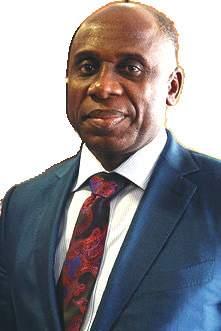

Acting Group Politics Editor DEJI ELUMOYE
Email: deji.elumoye@thisdaylive.com
08033025611 sms only
Former Rivers State governor, Rotimi a maechi, is 60 years old today. But more importantly, his life typifies the beauty of the Nigerian dream and spirit, writes olawale olaleye
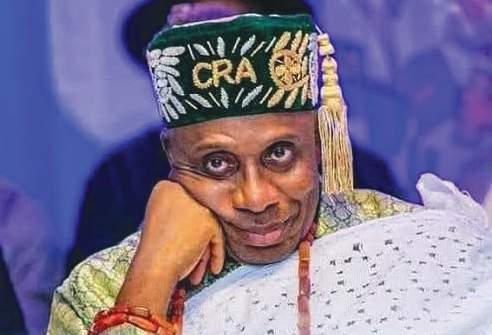
Until 2023, when he took his subsisting break from active political office after he lost his attempt at the presidency, and resigned his appointment as the Minister of Transportation, former governor of Rivers State, Hon. Rotimi Amaechi, is one of the few Nigerians the nation has been immensely kind to.
Put differently his political engagements before the return to civil rule in 1999, Amaechi was one of the few politicians, who had served the longest on the political scene in this Fourth Republic, living the Nigerian dream with grace and mercy.
From being Speaker of the Rivers State House of Assembly for eight years, governor of the state for another eight years and later minister, also for eight years, he is proof that the Nigerian spirit is real and her dream realisable.
A very good man, who many of his friends are proud to associate with and call of their own, Amaechi is a Marxist by orientation, for whom activism and standing up to evil or failing leadership comes natural.
Compassionate, but stubborn on principles, the milk of kindness streaming in his veins must be a gift from the universe. A fantastic administrator, who is deep into ideas that can evolve into sound and enduring policies, Amaechi has paid his dues
in service to fatherland.
There’s is an unending debate on whether or not Amaechi is a regular politician. This is because he is too straightforward, honest and unbending with truth to be one.
But who really is a politician?
A dishonest bunch, who lie their way to power, and deceive the trusting public, only to plunder their collective patrimony for personal and darwinian uses.
That’s who a politician is, and the example is not peculiar to Nigeria or the black nation. Some of the supposedly most civilised climes have them in quantum.
From his days at the University of Port Harcourt to this moment, one defining character trait of this Ikwerre-born
politician is courage and his ability to stand up to tyranny, not for the optics or baseless media exposure, but genuinely in support of truth.
His worldviews and political ideology are also strapped around the orbit of social justice, welfare, good governance and compassionate but effective leadership, powered by absolute contentment.
None of these makes him infallible. But he’s learned to tread cautiously over the years because he knew long ago he was trading on a slippery floor.
He left office two years ago after almost 24 years of service in different capacities. But an average politician with a lot in his cupboard and who is probably seeking state protection would have reclined into sabbatical mode and pretended to be unaware of the happenings around him while plotting a return to the stage for
From his days at the University of Port Harcourt to this moment, one defining character trait of this Ikwerre-born politician is courage and his ability to stand up to tyranny, not for the optics or baseless media exposure, but genuinely in support of truth.
further plundering. They never get enough.
However, you would have to “kill” Amaechi to completely silence him. For a man, who is unusually content and desires not much, even if you left carrot and dangled roasted buffalo, you still won’t get him to your side except it is on the grounds of truth and principle, which put the masses first.
His records of stellar performance at every turn in his political sojourn are an open book. The story of Amaechi is right in your face. Just look it up. Working to change the society and helping the needy are two things he does effortlessly.
It is innate for him to rise to such demands of leadership. Amaechi would not sleep away while his house burns. Therefore, speaking out and confronting bullish leadership is a pasttime for him.
In spite of the stringent attempts by many of the parasites in power to legitimise the declaration of a state of emergency in Rivers State, he has remained consistent in his position. Even if Karma is currently asleep while evil tarries, posterity never slumbers nor sleeps but only takes its time in addressing the deeds of everyone. Posterity is meticulous at what it does. It’s only a matter of time; the gate of hell will not prevail. Happy 60th birthday, CRA!





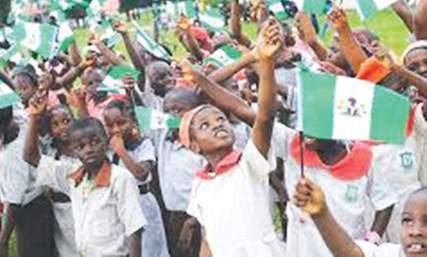

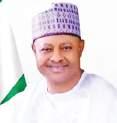
‘If you want the State Police to be abused by the Governors, it depends on the Drafters of the law. You can make it clear in the Bill before it becomes law, that State Police will only focus on addressing crimes….Where there’s a political dispute, the Federal Police Force should take precedence’. - Uba Sani, Governor of Kaduna State

Jurisdiction of State High Courts in FHR Enforcement Against Federal Government/ Agencies
Page IV
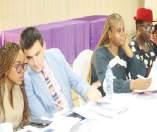
Digital Rights: ASF Set for Strengthening Collaboration between Journalists and Law Enforcement Agencies
Page V
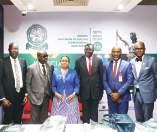
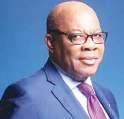
‘Why would the National Assembly want to impose compulsory voting? Why don’t they reverse the question, and ask why are Nigerians not interested in voting?….The reason for the apathy is that, Nigerians don’t get anything…. We need to look for a new model - Dr Olisa Agbakoba, SAN, Past President, Nigerian Bar Association
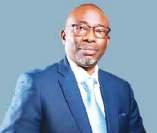
NAJUC Lecture: Justice Bankole-Oki Calls for Reform in Nigeria’s Judicial System
Page V
‘Lagos Tracked 73,000 Criminal Cases Within One Year’, Pedro
Page V
Have Parents and Government fulfilled their Responsibility to the Nigerian Child?
Happy Children’s Day to all who, according to Section 277 of the Child’s Rights Act 2003 (CRA), are children, that is, those who are below the age of 18. Section 1 of the CRA provides inter alia, that the best interest of the child shall be primary consideration, while Section 3 thereof reinforces the applicability of Chapter IV of the 1999 Constitution of the Federal Republic of Nigeria (as amended)(the Constitution), that is, Fundamental Rights, to children (also see Section 6-17 of the CRA).
I have seen different themes for 2025 Children’s Day such as, “Look Up”. Another theme, “Children: Our Future and Our Responsibility”, is apt for this discussion. How well have Parents and Government lived up to their responsibilities to the children of Nigeria, and protected their fundamental rights? Not that well, I would say. See NDPHC Ltd v Michael (2024)
LPELR-79937(SC) per Tijjani Abubakar, JSC on the importance of fundamental rights. Even though Nigeria is one of the 196 countries that has ratified the UN Convention on the Rights of the Child, Adopted by the UN in 1989, came into force in 1990 and ratified by Nigeria in 1991, it appears that the CRA may be yet another law enacted by Nigeria, to give the impression that the country is in tune with international best practices; but, in reality, the CRA isn’t properly implemented, as the welfare of the Nigerian child doesn’t appear to be a priority.
From the Beginning
From birth, the life of majority of Nigerian children is hard. A few days ago, I asked Tunde to visit a Government Hospital in Lagos, to do some findings. Tunde found 15 babies (13 female 2 male), some, newborn, some, a few months old, one who had even been found abandoned on the street possibly by her mother; babies who couldn’t be discharged from the hospital after being born or falling sick, because their parents couldn’t afford to pay their hospital bills - one bill was as low as N25,000. The first failure of the Nigerian system. Children from poor families are unable to be born comfortably, or get medical treatment. I do agree that Family Planning should be taught much more aggressively, so that people learn that it’s wrong to keep having children that they cannot cater for; and part of the responsibility of creating such awareness amongst Nigerians, is something that should be borne by the people’s elected representatives; however, they have failed abysmally in this regard, and we seem to be having a population explosion instead.
Education
Then, despite the educational objectives set out in Section 18 of the Constitution (also see Section 15 of the CRA), Nigeria has possibly the highest number of out-of-school children in the world. As a result of insecurity and the targeting of school children for kidnapping by terrorists and criminals, starting with the Chibok Girls in 2014 (11 years later, over 100 of them remain unaccounted for, while Dapchi girl, Leah Sharibu hasn’t been found seven years on), some Parents have opted to keep their children at home for safety reasons. Many Parents also, instead of sending their children to school, prefer for them to engage in child labour to boost the family’s income - the children are made to work on farms, and hawk all sorts of goods on the streets of different Nigerian cities instead. Others are drafted into different households all over the country, to work as house helps (see Sections 12 & 28 of the CRA on a child’s right to leisure and prohibition from exploitative labour). Let us not forget children that are sexually abused and raped by family members and neighbours, and in the households where they are sent to do forced labour, or even by those on the streets where they hawk their wares, thereby inflicting physical and psychological damage on them for life. Already, the future of such children may be doomed to suffering, poverty and even crime. I find Section 28(1)(d) of the CRA a bit odd, as it provides that a child shall not be employed as domestic labour outside their own home or family environment. Does that mean that it is lawful for a child to be used as a domestic worker in their own homes, the way the ‘wicked step mothers’ use their step children, beating and starving them for good measure?
On the side of Government, the different levels of Government have failed to meet the educational objectives. The standard of education in most Government Schools is low, while the condition of their facilities is extremely poor. I remember the scandal when Senator Adams
onikepo
onIkepo BraIThwaITe
onikepo.braithwaite@thisdaylive. com onikepob@yahoo.com

“From birth, the life of majority of Nigerian children is hard…. Nigeria has possibly the highest number of out-ofschool children in the world…. The female child is worse off than her male counterparts, as she’s discriminated upon from childhood to adulthood….. they are still made to undergo FGM…. The girl child is also married off, many a time to older men from when they are as young as age 12….I have never heard of 12 year old boys, being forced to marry 35 or 40 year old women….Nigeria needs to take the welfare of children more seriously, as they are the leaders of tomorrow”
Oshiomhole was Governor of Edo State, where he fished out a Primary School Principal who couldn’t read the affidavit attached to her credentials! Another one, who was unable to speak proper English, spoke in pidgin English, answering “Na me” when a student was asked who their teacher was! Pray tell, what would such people be able to teach children, in terms of formal education, not having any themselves?! This is so unfair to the Nigerian child, who is only able to be educated via the public educational system.
While I was a Secondary School Student at Queen’s College, Yaba, Lagos, a Federal Government School, one daughter of a Head of State was my senior by a year, while a daughter of another Head of State was my junior by a couple of years. Today, one of the allegations levelled against former Governor of Kogi State is that he used State money to fund his children’s education at a private school, American International, Abuja, allegedly paying their fees in advance, until they all complete their education there. He didn’t send his children to Government schools, knowing that they are poorly funded and ill-equipped. But, Yahaya Bello isn’t alone in this - many top Government officials even send their children abroad to study, with funds they loot from the Nigerian treasury, while majority of the Nigerian children do not get the type of education that is required, due to all round paucity of funds.
Contrast this state of affairs to a country like Finland, where the public education system is believed to be one of the best in the world, so much so that they do not really have private schools there. There is equal opportunity for all, regardless of
wealth and social status. The children of the rich, top government officials and the poor, all attend public schools that deliver best quality education. And, when they get to the tertiary level, those who attend Nigerian Public Universities sometimes stay there much longer than they should, because of the incessant strikes of the Academic Staff Union. Certainly, Government has not fulfilled Section 18(1) of the Constitution, which mandates equal and adequate educational opportunities at all levels for all. In Nigeria, the 'privileged' children who are obviously in the minority, have the best opportunities, because they are able to pay.
The female child is worse off than her male counterparts, as she’s discriminated upon from childhood to adulthood. First, in some Nigerian cultures, the girl child’s right to dignity, humane treatment and protection, freedom from torture is ignored, as they are still made to undergo FGM (female genital mutilation). See Section 34(1) (a)-(c) of the Constitution & Sections 11, 16-17 of the CRA. Some little girls are cut (circumcised) even before the age of 5, or before they reach the age of 14. FGM is a criminal offence, punishable with up to 4 years imprisonment - see Section 6 of the Violence Against Persons (Prohibition) Act 2015. Aside from community health education on the dangers of FGM, those who perpetrate this heinous act against girl children, should be arrested and prosecuted to the fullest extent of the law. This will send a resounding message to all and sundry, that these outdated repugnant practices

will no longer be tolerated by the society. The girl child is also married off, many a time to older men from when they are as young as age 12. See Section 21-23 of the CRA which prohibits child marriage and betrothal, and prescribes a punishment of up to 5 years imprisonment for doing same (a felony offence). Also see Section 42(1)(a) of the Constitution which prohibits discrimination. As a result of their being physically underdeveloped, having not reached puberty, some girls end up as Vesicovaginal Fistula Patients (VVF) (urinary incontinence caused by an abnormal opening between the bladder and the vagina), after being made to have sex and get pregnant before their reproductive organs are fully developed. Because of the smell of the leaking urine, these girls are then usually evicted from their homes by their husbands and ostracised by society, due to no fault of theirs.
A couple of States, Zamfara and Kano, are yet to domesticate the CRA. Zamfara is no surprise, because when the CRA was enacted in 2003, the then Governor, Ahmed Yerima himself, was alleged to prefer marrying underaged girls! Strangely, even though Section 29(4)(a) of the Constitution, in reference to naturalisation and renunciation of citizenship, sets full age at 18 and above, Section 29(4)(b) thereof unfortunately, makes a proviso that an underaged married girl is deemed to be of full age by virtue of her marriage. This is nonsense. How can you ‘deem’ a 12 year old to be 18, because they are married? This is a blatant lie. See the case of Orji v Dorji Textile Mills (Nig) Ltd & Ors (2009) LPELR-2766(SC) per Niki Tobi, JSC where the Supreme Court held inter alia that to deem “….means to treat a thing as being something that it is not, or as possessing certain qualities that it does not possess. It is a formal word, often used to create legal fictions”. Be that as it may, the boy child doesn’t suffer this kind of discrimination, as I have never heard of 12 year old boys, being forced to marry 35 or 40 year old women, like little girls are constrained to do!
The discrimination against the girl child usually follows her into adulthood, and that’s why there are hardly any women in the Legislature, most of them in Ministerial positions are Junior Ministers, and there is still the ongoing affirmative action agitation for 35% of positions to be filled by women in all institutions.
‘Runs’
The failure of successive governments, coupled with corruption and other factors, has pauperised Nigerians. Many young-adult females are the ones who now take care of their families instead of the parents, and they also fund the education of their younger siblings by doing ‘runs’, aka prostitution. Over a decade ago, I went to do some charity work at the General Hospital, Broad Street. I met this 23 year old female Youth Corper. She had come for her monthly check up and medication, as she was HIV+. I discovered that, as a result of her family responsibilities and the desire to be a University graduate to ensure a brighter future, she did runs as her source of income for funding. She ended up with her degree, and HIV in the bargain!
Conclusion
It is obvious that the lot of majority of Nigerian children, leaves a lot to be desired. What do they have to celebrate today? Sadly, not much. Their fundamental rights have been breached, and constantly continue to be trampled upon in more ways than one, and their future, compromised. The Government and many Parents, have failed the children, so much so that some are already hardened criminals. It is also not unusual for law enforcement, to place underaged children in Police cells and adult correctional facilities. A case in view is that of the children, in which 38 out of 75 were alleged to be underage, who were charged with terrorism offences and trying to overthrow the Government, following their alleged role in the #EndBadGovernance Protest last year.
However, from education to morals, nothing appears to be on course for the children, particularly the children of the ‘masses’. With technology, the world has become a global village. While many children who have had the benefit of a private education in Nigeria are able to hold their own anywhere they go, how does an average Nigerian child who cannot afford to enjoy the benefits of a private education, and is stuck with Teachers who cannot read or speak English, compete with their counterparts in other parts of the world like Finland? The rising scourge of drug addiction in the ranks of the youths, is also a cause for concern.
Nigeria needs to take the welfare of children more seriously, as they are the leaders of tomorrow.
s
Fact
The 1st Respondent, as the Applicant, commenced the suit that gave rise to this appeal at the High Court of the FCT against the Appellants and the 2nd Respondent, under the Fundamental Rights (Enforcement Procedure) Rules. He prayed inter alia, for “A DECLARATION that the allegation of theft, arrest and handing over of the Applicant to the 3rd Respondent by the 1st and 2nd Respondent and without evidence whatsoever was capricious, unwarranted, wrongful, unconstitutional and a breach of the Applicant's right to personal liberty.” In response, the Appellants filed a preliminary objection premised on Sections 254C(1)(d) and 251(1) (p)(q)(r) of the Constitution of the Federal Republic of Nigeria, 1999 as amended; that it is either the National Industrial Court or the Federal High Court, and not the High Court of FCT that has jurisdiction to hear the 1st Respondent's claim. The Appellants also filed a counter-affidavit in opposition to the suit. The 1st Respondent filed a Reply Address to the Appellant's Preliminary Objection and a Reply on Points of Law to the Appellant's Counter-Affidavit in opposition to the suit. The case of the 1st Respondent is that he was employed by the 1st Appellant as a labourer in 2003 and he was later promoted to the position of a generator attendant. He worked meritoriously for the 1st Appellant to the extent of being rewarded in the year 2013 with colour TV and awarded Certificate of Long Service having worked for ten years. On Sunday November 30th 2014, while he was on night duty at the 1st Appellant’s Generator House around 11:pm, the 2nd Appellant who is the 1st Appellant's Chief Security Officer and one Mr Nwachukwu another 1st Appellant's Chief Security Officer in charge of Kubwa site came into his room. The 2nd Appellant claimed that two trucks entered the premises of the 1st Appellant. He told the 2nd Appellant that he did not see any truck enter the premises, but the 2nd Appellant insisted that he must produce the trucks. He was later arrested together with one Mr Kabiru lbrahim, after which the 2nd Appellant took the two of them to Bwari Divisional Police Station. Thereat, the I.P.O., a certain Mr Okpanachi, wrote his statement for him and tried to force him to own up, but he refused. He maintained his position that he did not see any truck enter the 1st Appellant’s premises. He was detained for alleged theft from the 30th November, 2014 to 3rd December, 2014 when he was taken to court in company of others. He and the other persons were not eventually arraigned, and were returned to the Police station. He was granted bail, and his appointment was terminated. The 1st Respondent thereafter, filed the suit that led to this appeal.
Issues for Determination
The Supreme Court considered the following issues for determination of the appeal:
i. Whether considering the provision of Sections 254(c) (1)(d) and 251(1)(p)(q)(r) of the Constitution of the Federal Republic of Nigeria 1999 as amended, the lower court was right to affirm that the trial High Court had jurisdiction over the 1st Respondent’s claim?
ii. Whether the lower court was right in affirming the trial court's judgement, which found the Appellants jointly liable together with the 2nd Respondent for the arrest and detention of the 1st Respondent?
Arguments
Arguing the first issue, Counsel for the Appellant submitted that it is the Plaintiff’s claim that determines the jurisdiction of the court, and that a look at the 1st Respondent’s originating motion, supporting statement and affidavit particularly paragraph 31 and relief ‘B’ thereof, would reveal that the 1st Respondent's claim is connected with his employment. He contended that the 1st Respondent in the aforesaid paragraph and relief made it apparent that the Appellants’ allegation against him and the Appellants’ conduct in arresting, humiliating, harassing and intimidating him are all trumped up, plotted and executed to blackmail him and justify the subsequent termination of his employment with the 1st Appellant. Counsel then referred to and reproduced the provision of Sections 254C(1)(d) of the Constitution of the Federal Republic of Nigeria, 1999 as amended, to support his argument that it is the National Industrial Court and not the High Court of FCT that has jurisdiction to hear the 1st Respondent's claim. He argued in the alternative, that the 1st Respondent’s originating motion, supporting statement, affidavit in support as well as the reliefs sought, reveal that the crux of the 1st Respondent’s case was a complaint against the executive and administrative decision of the Nigerian Police to arrest and allegedly detain him contrary to the provision of Section 35 of the 1999 Constitution and it is only the Federal High Court that is vested with the
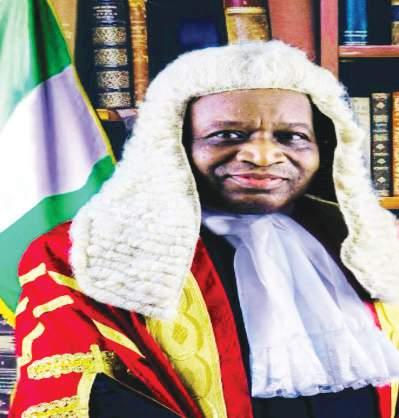
Before their lordships adamu Jauro Chidiebere Nwaoma uwa Obande Festus Ogbuinya Habeeb adewale Olumuyiwa abiru abubakar Sadiq umar Justices, Supreme Court SC. 827/2019
Between
1. SCC NIGeRIa LIMITed aPPeLLaNTS
2. aBeL OLOKOR
And
1. daVId GeORGe ReSPONdeNTS
2. THe NIGeRIa POLICe
(Lead Judgement delivered by Honourable Abubakar
requisite jurisdiction to entertain and determine suits where the executive/administrative decisions of the Nigerian Police Force, an agency of the Federal Government, is challenged.
In response, Counsel for the 1st Respondent argued that the case before the trial court was about unlawful arrest and detention without trial of the 1st Respondent on account of the allegation of theft levelled against him by the Appellants, and not on labour matter. He submitted that contrary to the Appellants’ contention that paragraph 31 of the 1st Respondent’s Statement in Support of his Originating Application and relief B sought by the 1st Respondent indicate that the 1st Respondent’s case is about labour matter, the said relief B is only ancillary, the main claim before the court is about unlawful arrest and detention of the 1st Respondent, and that is the reason the trial court declared at page 270 of the Record of Appeal that the said relief B is speculative. On the Appellant’s alternative arguments that it was the Federal High Court that had jurisdiction over the matter, the 1st Respondent submitted that the Appellants’ position is contradictory, and the Appellants are confused by arguing in one breath that the National Industrial Court is the court vested with jurisdiction over
“….the position of the Apex Court is that, irrespective of the subject-matter and parties before the court, both the Federal High Court and the State High Court/FCT High Courts have concurrent jurisdiction on enforcement of fundamental rights”
Court’s Judgement and Rationale Deciding the first issue, Their Lordships considered the provisions of Sections 254(c)(1)(d) and 251(1)(p) (q)(r) of the Constitution of the Federal Republic of Nigeria, 1999, (as amended) upon which the Appellants anchored their objection to the jurisdiction of the High Court of the FCT to determine the 1st Respondent's claim. Section 254C provides as follows: i. “Notwithstanding the provisions of sections 251, 257, 272 and anything contained in this Constitution and in addition to such other jurisdiction as may be conferred upon it by an Act of the National Assembly, the National Industrial Court shall have and exercise jurisdiction to the exclusion of any other court in civil causes and matters- (d) relating to or connected with any dispute over the interpretation and application of the provisions of Chapter IV of this Constitution as it relates to any employment, labour, industrial relations, trade unionism, employer's association or any other matter which the Court has jurisdiction to hear and determine”.
In considering the operative phrase ‘as it relates to,’ the Supreme Court found that the 1st Respondent neither made reference to any part of his employment terms with the 1st Appellant nor sought any relief which relates to any employment right or benefit. The Supreme Court held that The 1st Respondent did not aver that the 1st Appellant was not entitled to sack him, or that his sack was not valid because the allegation of theft was fabricated. What he prayed the trial court to do was to declare the 1st Respondent’s arrest and humiliation on trumped up charge as wicked and malicious. I therefore have no hesitation in finding that the 1st Respondent's suit does not relate to his employment with the 1st Appellant, and consequently, that section 254C(1) (d) of the Constitution of the Federal Republic of Nigeria 1999 as amended was inapplicable to the 1st Respondent's suit as constituted.
JSC)
the 1st Respondent’s claim, and in another breath that it is the Federal High Court.
On the second issue, the Appellants’ contention is that the Appellants merely laid complaint on the attempted theft that occurred at the 1st Appellant’s factory, and that it was the 2nd Respondent (Police) that arrested and detained the 1st Respondent. Counsel contended that the Appellants have no control over how the 2nd Respondent carries out its assignment. Counsel submitted further that, it was the 2nd Respondent’s investigation that linked the 1st Respondent to the theft, and that the 2nd Respondent has so admitted in its report. That the lower court was therefore, wrong to have affirmed the judgement of the trial court which found the Appellants jointly liable with the 2nd Respondent (the Nigeria Police), for infringement of the 1st Respondent’s right to personal liberty.
Responding, the 1st Respondent contended that the concurrent decision of the two lower courts that from the affidavit evidence on record, the Appellants set the machinery in motion for the arrest and detention of the 1st Respondent by the 2nd Respondent, that they went beyond merely reporting the 1st Respondent, they arrested him without just cause is correct. He pointed out that the Appellants did not have a consistent and believable story of how the 1st Respondent was arrested. The Appellants offered three versions of irreconcilably contradictory accounts of how, when and who arrested the 1st Respondent, thereby justifying the trial court's rejection of the Appellants’ evidence. Counsel maintained that the Appellants did not only report a case to the police, but they also actively participated in the investigation and extraction of confessional statements from purported suspects as well as controlling and influencing the 2nd Respondent. Counsel for the 2nd Respondent, supported the arguments of the 1st Respondent.
On the alternative submission of the Appellants that the 1st Respondent's suit fell within the exclusive jurisdiction of the Federal High Court, the Supreme Court, while considering section 251(1)(p)(q)(r) of the 1999 Constitution as amended, held that there was a proviso to the section which provides that “nothing in the provisions of paragraphs (p), (q) and (r) of this subsection shall prevent a person from seeking redress against the Federal Government or any of its agencies in an action for damages, injunction or specific performance where the action is based on any enactment, law or equity”. As such not all matters where injunction and damages are sought against the Federal Government or any of its agencies come under section 251(1)(p)(q)(r) of the Constitution. Furthermore, the original jurisdiction of a court in fundamental rights proceedings is donated by Section 46 of the 1999 Constitution, which grants prospective or actual victims of fundamental rights abuse unfettered access to a High Court for redress. The High Court in this context, has been interpreted to mean State High Court/the High Court of the FCT and the Federal High Court. The approach of the court in this regard is liberal; hence, the position of the Apex Court is that, irrespective of the subject-matter and parties before the court, both the Federal High Court and the State High Court/FCT High Courts have concurrent jurisdiction on enforcement of fundamental rights. What is important is that, the real grievance of the Applicant is the breach of a fundamental right protected under Chapter IV of the Constitution, and not a veiled attempt to seek redress for other generic civil rights. This issued was resolved against the Appellants. On the second issue, the Supreme Court found that attempt by the Appellants to justify the 1st Respondent's suspicion on the basis that he was on duty as a generator attendant, and he intentionally kept the place dark during the attempted theft at the site of the 1st Appellant, could not stand in the face of the extra-judicial statements and exhibits before the court. By these statements, the actual culprits admitted their participation, and mentioned names of their co-conspirators without mentioning the 1st Respondent as one. The Supreme Court found that the Appellants did not prove the existence of a reasonable suspicion for the arrest of the 1st Respondent on 30th November, 2014, and affirmed the decision of the trial court and lower court finding the Appellants liable for the breach of the 1st Respondent’s right to personal liberty. This issue was also resolved against the Appellants, and costs of N1 million was awarded in favour of the 1st Respondent against the Appellants. Appeal Dismissed.
Representation
Olamide Mojigbotoluwa Adekunle for the Appellants. Mallam Mohamed Shuaib and Giwa Munirat Yetunde for the 1st Respondent. Adeyemi Pitan, Chidinma Dioji and Peace Kenoye for the 2nd Respondent.
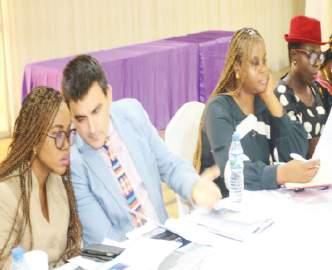

L-R: NAJUC Chairman,

Enock
Reuben in abuja
In a mission to strengthen e-Rights, Avocats Sans Frontières France (ASF), formally known as Lawyers Without Borders, under its platform e-RIGHTS Project, has convened a Situation room for Journalists and Security experts to enhance more digital rights and press freedom in Nigeria.
The dialogue was organised through the support of the European Union (EU), UNESCO Global Media Defence Fund (GMDF), in conjunction with the Centre for Information Technology and Development, (CITAD) and Space for Change in Abuja, with the aim of strengthening collaboration between the media and law enforcement agencies in the country.
At the meeting, the Country Director, ASF, France, Mrs Angela Uzoma-Iwuchukwu said, the objectives of the Situation room are to identify key challenges, share best practices and develop concrete recommendations for improving media freedom and
digital rights in Nigeria.
She further said: "The media plays a vital role in holding those in power accountable, providing a voice for the voiceless, and fostering informed public discourse. However, Journalists often face challenges in carrying out their duties, including harassment, intimidation, and violence. The digital landscape has also introduced new complexities, with issues like online censorship, surveillance, and disinformation threatening the very fabric of our democracy.
"Law enforcement agencies, as institutions responsible for
maintaining law and order, have a crucial role to play in ensuring that journalists can work safely and freely. It is imperative that we foster a culture of understanding, respect, and cooperation between the media and law enforcement."
She believed that the roundtable will go a long way, to shape the future of Journalists and digital rights in Nigeria.
“In the same vein, the Head of Government, Security and Migration, European Union Delegation to Nigeria and ECOWAS, Mr Reuben Alba Aguilera said statistics show that more than 55% of Nigerians
have access to the internet, which accounts for over 120 million young people under the age of 35 who use internet in Nigeria”, he said.
“Today’s convening of the situation room, is a key step towards ensuring that the gains made by the project are sustained and advanced.”
However, the representative of the Nigeria Police at the meeting, the Head of Police Complaints Response Unit (PCRU), CSP ElMustapha Sani said, the voice of critical Nigerians must be heard. The effort to enhance Police relationships with the media
and members of the public, a unit was created in 2015 and codified in the Police Act and and Regulation, 2020.
According to CSP Sani, "Before the establishment of PCRU, Nigeria Police conducted research, which many Journalists participated in and discovered that members of the public have a lot of issues to report against Police Officers, but they don't know how to report it or if they know how to report it, other Police Officers will be a bridge to them".
"Therefore, the Police established the PCRU office
to have an e-platform where members of the public can report where things happen, he said, now one can take pictures, make calls, send e-mail or Xhandles account and WhatsApp where members of the public there and then can easily lay their complaints and get an appropriate resolution from the Police."
He said PCRU, which has its headquarters in Abuja and all over the 36 States, has tremendously helped to strengthen relationships between the media and law enforcement agencies in Nigeria.
A retired Judge of the Lagos State High Court, Justice Folashade Bankole-Oki has called for immediate reforms in Nigeria’s Judiciary, calling for the integration of technology, international best practices, and public feedback to restore trust. Speaking at the Nigerian Association of Judicial Correspondents (NAJUC) Annual Lecture in Lagos, she emphasised the need for transformation within the justice system, warning that
public confidence had significantly declined.
Justice Bankole-Oki, who was the Guest Speaker, further stressed that the responsibility to rebuild trust falls on the Judiciary, legal professionals, Government, and the media. She urged Journalists to maintain fairness and accuracy, highlighting their crucial role in protecting judicial integrity. However, she cautioned against excessive regulatory measures that
could restrict press freedom, such as mandatory blogger registration.
The Judge advocated for technological advancements within the Judiciary, including virtual hearings, automated transcription, paperless trials, e-filing, and secure digital evidence storage. She called on the National Judicial Council (NJC) and State Judicial Service Commissions to drive modernisation efforts, and
A High Court of the Federal Capital Territory, per Hon. Justice A. M. Abdullahi of Court 41, in Abuja, slammed the Economic and Financial Crimes Commission (EFCC), with a fine of N2 million in favour of Claimant, Abubakar Ismaila Isa, represented by Mr Emmanuel Hassan and Ubong Udoekpo. This, is in addition to other reliefs granted by the Honourable Court, in favour of the Claimant.
Giving judgement in the case with Suit No: FCT/ HC/GAR/CV/290/2024, Between: Abubakar Ismaila Isa v EFCC & 2 Ors. Hon. Justice A. M. Abdullahi held that the Defendants (EFCC) contravened Section 35(3) of the Constitution in the arrest, detention, and interrogation of the Claimant - Abubakar Ismaila Isa. Therefore, the Court restrained the EFCC, either by themselves or their agents or privies, from harassing, threatening, arresting or detaining the Claimant without complying
with the provisions of Section 35(3) of the Constitution.
The Claimant, Abubakar Ismaila Isa, through his Counsel, Femi Atteh, SAN, had dragged the EFCC Chairman, Mr Olanipekun Olukoyede and Mr Bawa Usman Kaltunga (Head of AMCON desk), to the Court seeking the following reliefs.
A declaration that the arrest, interrogation and the continued threat to arrest the Claimant/ Applicant without informing him, in writing, of the allegations against him within twenty - four hours is unconstitutional, and violates his fundamental right to as guaranteed by Section 35(3) of the Constitution of the 1999 Constitution of the Federal Republic of Nigeria (as amended).
An order of Court restraining the Defendants either by themselves, officers, servant, agents, privies or any other person howsoever called and in whatsoever capacity, from further violating the Constitutional rights of the
Claimant/Applicant by further arresting or threat to arrest, detain and/or arraign the Claimant/ Applicant without complying with the provision of Section 35(3) of the 1999 Constitution of the Federal Republic of Nigeria (as amended).
N100 million only as general damages for infringing on the Claimant/Applicant's Fundamental Right in contravention of Section 35(3) of the 1999 Constitution of the Federal Republic of Nigeria (as amended).
adopt policies that prioritise efficiency and transparency in court proceedings.
Touching on Artificial Intelligence, Bankole-Oki acknowledged its growing use in legal research and case management, but warned against over-dependence. She urged judicial correspondents to avoid sensationalism, misleading headlines, and biased narratives, which could negatively impact the justice system’s credibility.
The EFCC Chairman Ola Olukoyede, represented by his Chief of Staff, Mr Michael Ezekwe, praised the media’s role in Nigeria’s anti-corruption efforts. He encouraged Journalists to remain resolute and courageous, in holding officials accountable. He stressed that corruption continues to erode national integrity and urged a firm, united approach to tackling it.
Hon. Justice John Terhemba
Tsoho, the Chief Judge of the Federal High Court represented by Justice Ambrose Lewis-Allagoa, also called for stronger collaboration between the Judiciary and the media, to ensure accurate court reporting. Justice Taiwo Taiwo, who chaired the event, reaffirmed the importance of judicial reforms, particularly those aligned with AI and technological advancements. He praised the Chief Justice of Nigeria’s initiative, to publish judicial nominees for public scrutiny.
NAJUC Chairman, Olugbenga Soyele, described the lecture’s theme as timely and essential, for promoting transparency and efficiency in Nigeria’s justice system. The event concluded with an Award of Excellence presented to the EFCC Chairman, Ola Olukoyede, for his dedication to combating corruption.
Lagos State Attorney-General and Commissioner for Justice, Mr Lawal Pedro, SAN, on Wednesday said that his Ministry processed a total of 73,962 criminal cases across the State’s correctional facilities; over 10,000 of these between January 2024 and May 2025 only.
Mr Pedro gave the Ministry’s sweeping achievements in the past year, anchored on strengthening the rule of law, justice delivery, and institutional reforms, at the Y2025 Ministerial Press Briefing held at the Bagauda Kaltho Press Centre, Secretariat, Alausa.
According to the AttorneyGeneral, the Ministry has always
pursued justice, not only as a legal ideal, but as a practical, daily necessity for over 20 million Lagosians. “Within the period under review, the Ministry processed a total of 73,962 criminal cases across the State’s correctional facilities; over 10,000 of these between January 2024 and May 2025 only.”
He noted that this was made possible through the Lagos Criminal Information System (LCIS), which now functions as a comprehensive databank of criminal case data, improving transparency and coordination across Lagos State justice system.
Pedro also noted that,
Lagos custodial facilities are operating at 106% above their built capacity as of May 2025.
In response, the Ministry has expanded non-custodial measures, including community service sentencing.
“In this regard, we have supervised the community service of 10,120 offenders across 18 locations, thereby reducing congestion and enabling restorative justice”, he said.
On social disorder offences, Mr. Pedro revealed that the Special Offences Mobile Court has been pivotal in restoring sanity to the public space.
“We arrested, arraigned and
secured convictions for 71,023 offenders for minor offences, ranging from traffic violations to street trading and vandalism. This has had a measurable impact in deterring miscreants, and preserving order across Lagos”, he explained.
Turning to economic and civil justice, the AG emphasised financial recoveries and mediation efforts, stating that the Citizens Mediation Bureau received 214,342 matters and successfully resolved 141,404 of them. These resolutions brought relief to families and businesses alike, with a total of N2.2 billion recovered for aggrieved parties.
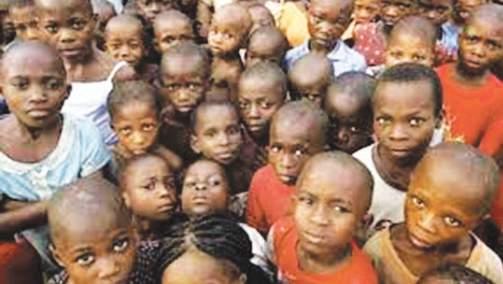
Today, Nigeria celebrates children’s Day. First celebrated in Nigeria in 1964, it’s a day dedicated to children, to honour them and reflect on the progress and persistent challenges concerning their rights and welfare. In observance of today, THISDAY LAWYER sought the views of a cross-section of Lawyers and Human Rights activists, to assess how well the welfare of the Nigerian child has been taken care of by the State and Family, to what extent the Child’s Rights act 2003 has been implemented in the country, and the impact it has had on society so far
Children’s Rights in Nigeria: Progress, Persistent Challenges, and the Road Ahead
Professor Joy Ngozi Ezeilo, SAN
As Nigeria celebrates Children’s Day on May 27th, the occasion serves as a dual purpose: a joyous tribute to childhood and a critical reminder of the nation’s responsibility to uphold and protect the rights of its youngest citizens - the very foundation of its future. Yet, the outlook for many Nigerian children remains deeply concerning. This day offers an opportunity for reflection and action, urging the country to take a forward-looking stance on the pressing issues surrounding children’s rights.
The Nigerian Child’s Rights Act (CRA) of 2003, along with various State-level child rights laws, aligned with international frameworks, provide a robust legal structure to safeguard children's

rights. Despite these protections, millions of Nigerian children continue to endure significant barriers that compromise their fundamental rights to education, protection, health, and dignity. It is imperative that this celebration becomes a call to action, addressing these challenges with urgency and resolve.
Education: The Foundation Yet to be
“Despite the provisions of Section 28 of the Child’s Rights Act, which explicitly prohibits exploitative labour and aims to protect children from harmful work conditions, approximately 43% of Nigerian children aged between five and eleven are engaged in labour”
Fully Built
Education is the bedrock of empowerment and hope for children’s futures. Yet, Nigeria faces a stark reality: an alarming 18.3 million children are currently out of school - the highest number globally as of 2024. This educational crisis is fuelled by a tangled web of challenges, including poverty, insecurity, gender inequality, and the dire state of educational infrastructure.
The Northern regions feel this burden most acutely, where armed conflict, school attacks, and entrenched socio-cultural norms deprive countless children - particularly girls - of their right to learn and thrive.
These obstacles rob children of opportunities and perpetuate generational cycles of poverty and marginalisation, dimming the promise of a brighter tomorrow. The Child Rights Act, under Section 15, guarantees every child the right to free, compulsory, and universal primary education, placing the onus squarely on the Nigerian Government to deliver this essential right. Yet, despite this legal provision, millions remain excluded, illustrating the urgent need for bold reforms, targeted investments, and community-driven initiatives to ensure every child has access to quality education.
Child Labour: A Barrier to Childhood and Development
Around 22.9% of Nigerian children aged 5 to 14 are trapped in hazardous labor, enduring gruelling work in sectors like mining, quarrying, agriculture, and street
vending. These vulnerable children face not only physical exploitation but also the theft of their childhood - robbed of the chance to learn, grow, and dream freely. This ongoing crisis, underscores the urgent need for bold and decisive action. Stronger enforcement of anti-child labour laws, coupled with robust economic support for impoverished families, can break this cycle. Communities must rise to the challenge, fostering awareness and championing the belief that no child belongs in labour, but instead in classrooms, playing fields, and safe spaces where their potential can flourish. It’s not just a fight against child Labour; it’s a fight for the future of Nigeria.
The Child Rights Act of 2003, under Section 11, guarantees the right of every child to dignity. It stipulates that no child should be subjected to physical, mental, or emotional harm, abuse, neglect, maltreatment, sexual exploitation, torture, inhumane or degrading treatment or punishment. Additionally, it protects children from attacks on their honour or reputation, and prohibits their subjection to slavery or servitude, whether under the care of a parent or legal guardian.
Section 28 of the Act addresses explicitly exploitative labour. It mandates that no child shall be forced into labour deemed exploitative or required to carry out tasks that could harm their physical, mental, spiritual, moral, or social development. Furthermore, it prohibits employing children as domestic helpers outside their home or family environment, ensuring their rights and developmental needs are prioritised.
The International Labour Organisation (ILO) defines child labour as work that robs
children of their childhood, their potential, and their dignity, or work that is detrimental to their physical and mental development. Child labour represents a grave violation of children’s rights, as it exposes them to exploitation and harm during the critical years meant for education, growth, and play. Despite the provisions of Section 28 of the Child Rights Act, which explicitly prohibits exploitative labour and aims to protect children from harmful work conditions, approximately 43% of Nigerian children aged between five and eleven are engaged in child labour. These children often participate in hazardous commercial activities, whether in agriculture, street vending, or other forms of labour, which endanger their survival and development.
This widespread issue not only deprives young individuals of education but also perpetuates cycles of poverty and inequality, diminishing the prospects for national progress. Addressing child labour requires urgent and multifaceted interventions. Robust enforcement of anti-child labour laws is essential to prevent exploitative practices and hold offenders accountable. Furthermore, creating economic support systems (safety nets) for impoverished families can reduce dependency on child labour as a means of survival. Grassroots community engagement, raising awareness about the damaging effects of child labour, and promoting the value of education are equally critical strategies.
Innovative programmes such as vocational training for parents, scholarships for at-risk children, and after-school initiatives can help transition children from labour to learning. Partnerships between the Government, NGOs, and private sector stakeholders can amplify efforts, ensuring that classrooms, playgrounds, and safe spaces become the norm for every child's development. Ultimately, the fight against child labour is a fight for the future - one that demands unwavering commitment to the rights and well-being of Nigeria's youngest citizens.
Child Marriage: Stunting Potential and Perpetuating Inequality
Nigeria faces a troubling reality with over 24 million child brides, nearly half of whom were married before reaching the age of 18, according to recent reports by UNICEF and UNFPA. Shockingly, four out of 10 Nigerian girls are married off, before adulthood. Child marriage represents a profound violation of children’s rights, cutting short their education, subjecting them to severe health risks, and reinforcing cycles of poverty and gender inequality.
Despite the Child Rights Act's clear stipulation that marriage under the age of 18 is illegal, enforcement remains inconsistent, particularly in regions where customary and religious practices dominate legal frameworks. Addressing this deeply rooted issue, requires a comprehensive and multi-faceted approach.
To combat child marriage effectively will require investing in girls' education, strengthening implementation of extant laws, and public enlightenment and awareness in rural poor communities amongst others.
Female Genital Mutilation (FGM): A Hidden Trauma
Female Genital Mutilation (FGM), or female circumcision, is a serious violation of rights, leading to both physical and psychological harm for victims. Though advocacy has decreased its prevalence in some areas, the practice continues in others, driven by tradition, misinformation, and societal pressure.
Eradicating FGM requires more than just legal measures; culturally sensitive strategies are essential. Engaging community leaders can challenge misconceptions, and promote non-harmful cultural practices. Educational initiatives for children and parents, are vital in dispelling myths and raising awareness about the consequences of FGM.
Empowering women and girls through skill development and support networks helps them resist societal pressures. Economic interventions, such as livelihood programs, offer alternatives to harmful practices, particularly in impoverished
“Nigeria

communities where FGM is often linked to marriage and financial security. Media campaigns and survivor testimonials can effectively highlight the emotional and economic impacts of FGM.
Finally, fostering global partnerships between governments and NGOs, can pool resources to address this issue comprehensively. By integrating advocacy, education, legal action, and economic support, we can move towards a future free from FGM, safeguarding the dignity and health of every girl.
Pathways to Progress: What Must be Done
To bridge the gap between Nigeria’s legal commitments and the lived realities of its children, a concerted, holistic effort is required: Strengthen Legal Enforcement and Policy Implementation: Authorities must ensure uniform application of the Child’s Rights Act across all States, harmonising statutory laws with customary and religious practices.
Expand Access to Quality Education: Investment in school infrastructure, teacher training, and safe learning environmentsespecially in conflict-affected and rural areas- is critical. Programmes promoting girl-child education, and addressing economic barriers must be scaled up.
Address Poverty and Economic Vulnerability: Social protection schemes, conditional cash transfers, and livelihood programmes for families, can reduce the economic pressures that push children into labour and early marriage.
Community Engagement and Advocacy: Changing deep-rooted cultural norms requires sustained dialogue with traditional, religious, and community leaders to champion children’s rights and foster supportive environments.
Collaborative Partnerships: Government agencies, civil society, international organisations, and local communities must collaborate strategically, ensuring resources are efficiently deployed and interventions are context-specific.
Data-Driven Approaches: Improved data collection and monitoring will guide evidence-based policy-making and track progress toward eliminating child rights
faces a troubling reality with over 24 million child brides…. Shockingly, four out of 10 Nigerian girls are married off, before adulthood. Child marriage represents a profound violation of children’s rights, cutting short their education, subjecting them to severe health risks, and reinforcing cycles of poverty and gender inequality”
violations.
In addition, innovative programmes such as mentorship schemes connecting at-risk girls with successful female role models, and media campaigns showcasing the emotional and economic costs of child marriage, can further amplify these efforts. By addressing the root causes and implementing targeted strategies, Nigeria can take meaningful strides toward ending child marriage and securing a brighter future for its girls.
Conclusion
Nigeria stands at a critical crossroads. The gap between legislation and reality, underscores the pressing need for comprehensive action that addresses not only legal reforms, but also the socio-economic and cultural factors that perpetuate child rights violations. Empowering grassroots organisations to act as watchdogs, advocating for children’s rights, and introducing community-based reporting mechanisms, can ensure that violations are identified and addressed swiftly.
Furthermore, incorporating child rights education into school curriculums, can build a generation more aware and protective of these rights. Leveraging technology, such as creating mobile applications for child protection services, can enhance accessibility to resources for at-risk children and their families.
Engaging the private sector is equally vital, as businesses can contribute through corporate social responsibility initiatives focused on education funding, skills training, and family support programmes. Encouraging storytelling through documentaries, short films, and digital platforms, can create impactful narratives to shift public attitudes and inspire collective action.
By mobilising collective will, fostering inclusive partnerships, and integrating innovative, localised solutions, Nigeria can not only bridge the gap between law and practice, but also create a society where every child has the opportunity to thrive and achieve their full potential.
Professor Joy Ngozi Ezeilo, SAN, former Dean of Law, University of Nigeria; former UN Special Rapporteur on Human Trafficking
Reclaiming Our Future: Enforcing Child Rights in Nigeria
Sonnie Ekwowusi
In assessing the humanitarian issues of our time, the pitiable situation of Nigerian children calls for serious concern. A world with endangered children, is a perishing world. It is a great indictment of our age, that the victims of man’s inhumanity to man are our own children - the most innocent among us. Children are our future. Unfortunately, however, children everywhere are victims of rape, torture, infanticide, forced labour, child soldiering, child prostitution,
child pornography, unsafe teenage sex, modern slavery, child street hawking, and preventable childhood diseases.
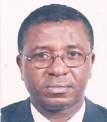
Therefore, this year’s Children’s Day celebration offers us another opportunity, to reflect on the plight of Nigerian children. Over the past year, we have watched with alarm the increasing hostilities against children, and the destruction of countless young lives in Nigeria. Most tragically, over the years, we have witnessed the unnecessary spilling of the blood of innocent children.
For example, in the past ten years, Boko Haram terrorists and abductors in the North have repeatedly stormed schools and seminaries, freely murdering, maiming, raping, and abducting their victims. To date, the whereabouts of Leah Sharibu - a schoolgirl abducted in the North by Islamic terrorists for refusing to convert to Islam - remains unknown. Just a few days ago in Ibadan, a stray bullet killed a 15-year-old SS1 secondary school student, Kehinde Alade. The Joint Admissions and Matriculation Board (JAMB) recently admitted that a "technical glitch" compromised some results of this year's exam, after nearly 80% of the students recorded low grades. Frustrated by her poor score, Faith Opesusi Timileyin, 19, committed suicide.
Laws protecting children’s rights, are not lacking in Nigeria. The Child Rights Act, 2003 (as amended) promotes the rights of children. Specifically, Section 30 of the Act prohibits child trafficking, child sex trafficking, and surrogacy. In addition, the Trafficking in Persons (Prohibition) Enforcement and Administration Act (TIPPEA Act), condemns all forms of human trafficking. Section 82 of the Act defines trafficking in persons to include:
“… the giving or receiving of payments or benefits to achieve the consent of a person having control over another person or debt bondage for the purpose of placing or holding the person, whether or not in involuntary servitude (domestic, sexual or reproductive), in forced or bonded labour, or in slavery-like conditions, the removal of organs or generally for exploitative purposes”. This definition clearly captures surrogacy, as well as all parties to surrogacy and agents/ persons involved in the business of surrogacyincluding doctors, Lawyers, and others - where exploitation is involved.
By virtue of the combined effect of Sections 228, 229, 230, and 328 of the Criminal Code (and their equivalent provisions in the Penal Code), abortion is illegal in Nigeria. The United Nations’ Declaration of the Rights of the Child states that
“mankind owes the child the best it has to give”. Similarly, the Convention on the Rights of the Child (CRC) 1989, which Nigeria has signed and ratified, states that every child—before and after birth - has the right to life, basic education, and freedom of expression.
But, despite the foregoing laws protecting the Nigerian child, children in Nigeria remain an endangered species. Unfortunately, only about 16 out of the 36 States of the Federation, have so far adopted the Child Rights Act. Despite the existing legal framework, infanticide and abortion are still routinely committed in many parts of the country. Disturbingly, many young Nigerian girls are renting their wombs for surrogacy for as little as N250,000. Similarly, others are selling their eggs for paltry sums. A few months ago, the University of Ibadan (UI) raised an alarm that many female students were selling their eggs - a dangerous practice that poses serious risks to their procreative health.
Equally disturbing is the sight of children aged between five and eighteen, without access to basic education, loitering the streets - abandoned by negligent parents. The few fortunate ones enrolled in public schools, are exposed to various forms of danger. For over 12 years, school pupils and residents of several communities in local government areas of Oyo State, have suffered from stray bullets fired from a shooting range inside a nearby army barracks. In other parts of the country, many schoolchildren are denied access to basic education, due to unforeseen and avoidable circumstances.
As I stated earlier, this year’s Children’s Day celebration, affords us an opportunity to put in place the necessary mechanisms for the protection of our children. We must recognise that, like adults, children are entitled to the full enforcement of their rights. Therefore, States that object to the Child Rights Act on cultural and religious grounds, are respectfully, urged to adopt and implement the Act.
The Children and Young Persons (Street Trading) Law, which prohibits the employment of female children in street trading, should be enforced. Likewise, the Children and Young Persons (Harmful Publications) Act, the laws on abortion, and the Cinematography Law - which prohibit the dissemination of harmful publications and films to children - should also be enforced. The same applies to the Child Prostitution and Child Pornography Law (2002). Government agencies, voluntary organisations and NGOs, must create frameworks to promote existing child welfare services and trusts in the country.
A society that allows its children to be killed or dehumanised, is heading for extinction. Public office holders and law enforcement agents must understand that, children have rights that must be protected.
Our children should be given the opportunity to develop physically, mentally, morally, spiritually, and socially in a healthy environment, and in conditions of freedom and dignity. That is the only way we can hope to nurture the future leaders of tomorrow. Our future is built on, the triumph of youthful potential. Therefore, if that potential is destroyed, our future is inevitably destroyed as well.
Sonnie Ekwowusi, Human Rights Lawyer, Lagos
In Defence of Children’s Rights in Nigeria
Amanda Demechi-Asagba
Has Nigeria met the rights of children vis-à-vis their fundamental rights listed in the Child's Rights Act? Education? Child labour? Child marriage? Genital mutilation (right to human dignity and humane treatment) etc?
The State of Child Rights in Nigeria: Progress and Challenges
As Nigeria celebrates Children's Day, it's essential to assess the country's progress in upholding the rights of children. With the United Nations Theme for Children’s Day 2025: Upholding children's rights is the compass to a better world – today, tomorrow and into the future. This is doubtlessly
“Children are
our
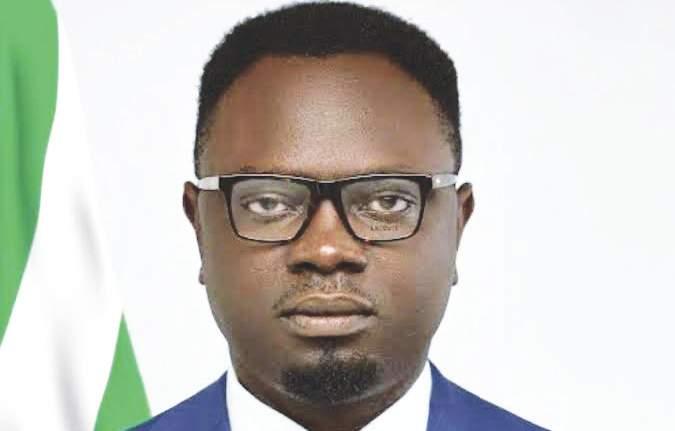
the key to a secured future.

The theme as stated by the Sustainable Development Goals SDG Resource Centre “Children: Our Future and Our Responsibility", emphasises both the potential of children as agents of change, and the need to acknowledge the responsibilities adults and the Government have to protect and support them to unleash their potential.
Key Principles of the Theme: Children as Agents of Change:
Recognising the capacity of children and young people to drive positive transformation, through their unique perspectives and innovative ideas that can help shape a better future.
Our Responsibility: Acknowledging the crucial role adults play in safeguarding children's rights, ensuring access to essential services such as education, healthcare, and protection from harm.
Focus on the Convention on the Rights of the Child: serves as a reminder of the importance of upholding children's rights, which are considered human rights.
Listening to Children: Prioritising the importance of listening to children's views and experiences to understand their needs, aspirations, and priorities, thereby fulfilling their rights to self-expression and participation.
This calls for special focus: Voices Amplified, Potentials unleashed, innovations Ignited. Time to drive change is here! Investment in children, is our best and most secured investment.
The Child's Rights Act of 2003 guarantees fundamental rights to Nigerian children, including the right to life, survival, and development; protection from discrimination, abuse, neglect, access to education, and access to justice. Children often lack access to justice and protection, with many cases of abuse going unreported or unresolved
future. Unfortunately, however,
children everywhere are victims of rape, torture, infanticide, forced labour, child soldiering, child prostitution, child pornography, unsafe teenage sex, modern slavery, child street hawking, and preventable childhood diseases”
Progress Made:
- The Act prohibits child marriage, with Section 21 stating that no person under 18 can contract a valid marriage.
- The law mandates education for children at primary and junior secondary levels (Section 15).
- Children are entitled to protection from discrimination based on origin, sex, or disability (Section 10).
- guarantees participatory rights of the child.
- guarantees paramount consideration for the best interest of the child
- Specifies the duties and obligations of the parents to the child and obligations of the child to the parents and the State
Best Interest of the Child and Participatory Rights
1. The Child's Rights Act emphasises the importance of considering the best interest of the child in all decisions affecting them.
2. Children have the right to participate in decision-making processes that affect their lives, including freedom of expression and association.
Challenges
1. Child Marriage: Nigeria has one of the highest rates of child marriage globally, with many girls married before age 18, affecting their education, health, and well-being.
2. Education: Approximately 20 million Nigerian children are out of school, highlighting the gap between policy and implementation.
3. Child neglect and abandonment
4. Child Labour: Many children engage in child labour, violating their rights to education and protection.
5. Child Abuse: The country struggles with physical, emotional, and mental abuse, including genital mutilation and child sexual assault which infringes on children's right to dignity and humane treatment
The Way Forward
To ensure the well-being and development of Nigerian children, it's crucial to:
1. Strengthen implementation and enforcement of the Child's Rights Act.
2. Increase access to education and reduce child labour.
3. Address cultural practices that harm children, such as child marriage and genital mutilation.
4. Provide support and protection to vulnerable children, including those in conflict zones and victims of abuse.
5. Provide a one-stop victim protection centre, victim support, welfare, medicals, education, access to justice, compensation
6. Speedy dispensation of justice as justice delayed is victim revictimization and double jeopardy
7. Promote Awareness about children's rights, and the importance of considering the best interest of the child
Special Protection for Children and their Mothers
In cases of divorce or separation, we advocate for special protection for children and their mothers. To minimise trauma and disruption to the children's lives, mothers should be allowed to remain in the family home with the children. This approach would help reduce the number of out-of-school children and homeless children.
Maintaining the Children's Standard of Living
The maintenance of the children should reflect their pre-separation standard of living. Fathers should contribute fairly to the children's upkeep, taking into account the prevailing economic situation. Unfortunately, some fathers have been known to punish their children and ex-partners, by understating their earnings or manipulating the court system.
Judicial Considerations
Judges should consider the children's best interests and the economic reality, when determining feeding and maintenance fees. Awarding inadequate amounts, such as N30,000 for three children when the actual cost is N180,000 or more, can be detrimental to the children's well-being. Such decisions can have devastating consequences, effectively sentencing the children and their mother to financial hardship.
Prioritising the Best Interests of the Child Courts should prioritise the best interests of the child, ensuring that decisions regarding custody, maintenance, and support prioritise the child's well-being and stability. By doing so, we can protect the rights and welfare of Nigerian children and their mothers.
AWLA’s Role
Empowering a Brighter Future for Nigerian Children
The African Women Lawyers Association (AWLA), is a beacon of hope for Nigeria's most vulnerable populations - children. With a steadfast commitment to protecting their rights, AWLA has made a lasting impact in the lives of young Nigerians.
AWLA's Impactful Initiatives
a. Advocacy and Awareness: AWLA sparks meaningful conversations about children's rights, particularly for girls, through events and lectures that promote education and protection.
b. Empowering Girls: AWLA's initiatives empower girls through education, mentoring, and gift-giving, fostering confidence and potential.
c. Zero Tolerance for Bullying: AWLA condemns bullying in schools, prioritising every child's safety and well-being.
d. Child Protection Advocacy: AWLA advocates for child protection, working tirelessly to eliminate harmful practices that affect children.
e. Supporting Vulnerable Children: AWLA provides a platform for discussion and action,
protecting vulnerable children from abuse, neglect, and exploitation.
Access to Justice for All AWLA's commitment to justice is unwavering. The organisation provides:
a. Free Legal Representation: AWLA offers free legal services to those in need, ensuring equal access to justice.
b. Free Legal Clinic: Every Friday, AWLA's legal clinic provides a safe space for individuals to seek legal guidance and support. AWLA's efforts focus on:
1. Protecting Children from Harmful Practices: Such as child marriage, genital mutilation, sexual assault and child labour.
2. Promoting Education: Ensuring access to quality education for all children.
3. Providing Support and Protection for children who are victims of abuse or exploitation.
4. Building Bold, Brave, Responsive and Confident Future Leaders.
Collective Action for Common Goal
By working together with government agencies, civil society organisations, communities, industry et al, we can create a brighter future for Nigerian children. AWLA's dedication to protecting children's rights is a shining example of the power of collective action. Join the movement and let's build a safer, more just society for all and particularly a more supportive environment for Nigerian children to thrive.
Mrs Amanda Demechi-Asagba, Global President, African Women Lawyers Association (AWLA); President, Legal Pool for Justice and Equity Initiative (LPJEI)
Child's Rights, and the Nigerian Challenge
Dr Akpo Mudiaga Odje
Introduction
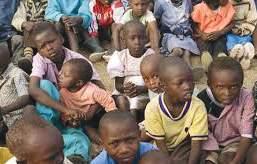
and yahoo tendencies.
The Way Forward
1. The Federal, State and Local Governments should embark on profiling the total number of children within their demographic terrain, to make planning for same seamless.

The child all over the world, has become an endangered specie, prompting a global reaction and vigilance towards their social, political and legal protection. In that connection, the Nigerian State boldly enacted the Child's Right Act, 2003 to codify amongst others, the rights of the Nigerian child. How far the Federal, State and Local Governments fared in the protection of these highly vulnerable species of the human race, forms the raison d’etre for this introspection.
Child's Rights
Whilst in many climes and under our 1999 Constitution, the universal age for voting rights is 18 years, however, under common law it is 21 years. This is augmented in the decision of Elias v Elias per Ayoola, JCA (as he then was).
Under the Child's Right Act, CRA, for short, a child is definitely much lower than both ages relayed above. A child is very tender in age and at the threshold of infancy and eventually at slight maturity. Hence, they are to be given special attention and protection. as they evolve into adulthood.
The Child's Right Act has listed several protected rights for the child, some of which are :
i) right to personal dignity
ii) right to privacy
iii) right to life
iv) right to parental care
v) right to be protected
vi) right to seek State protection to protect the above and other rights.
Nigerian Governments and Protection of
Child's Rights It is lucid, both from experience and implementation, that the leaderships of our country have been, and are still paying lip service to upholding the child's rights. There is a growing lethargy amongst Government at all levels, in finding ways and means towards guaranteeing these rights to the child. The Nigerian child is left lonely, desolate and isolated from all strata of society. Hence, you see and witness the recurring decimal of child abuse and abduction all over the country. There are still overt practices of child labour, and over 20 million children out of school in Nigeria.
In the North, there still exists the Almajiri practice, where a child/children are sent out to beg for a living on behalf of a poor family. This is totally unacceptable in any civilised country, whether its practice is religiously doctrinal or not. A child trained that way and without education, will learn to beg all his lifetime, thus, abandoning his God-given potential and talents to be a great human being.
The debacle issue of child trafficking, is very much still on the front burner. Everyday, there is a press space for this consistent atrocious act against the innocent children. In Lagos, as at the last few days, an NGO is seeking for justice for over one thousand children who have been violated in several ways and places. The story is not different in the IDP camps, as the children are most deprived of all meaningful livelihood for human survival. They are even raped, on top of this vicious environment and surroundings.
Added to this is forced marriage of a child, thus, negating her consent and authorisation, as well as female genital mutilation of children, which is lucidly an act of torture and terror against same.
The universal basic education programme adopted by erstwhile, President Olusegun Obasanjo, has not seen the light of day, till today.
It's a shame, that a nation which allegedly is planning for the future, yet, has no coherent policies on how to develop the children who are the so-called leaders of her tomorrow, as they are still seen hawking wares on the street, and some even conscripted into crime
“But, for far too many Nigerian children, that promise remains unfulfilled. They are growing up unseen, unheard, and unprotected… According to UNICEF, over 18.3 million children were out of school as of 2024…No one is held accountable, when a child is denied education. This is partly because, the right to education in Nigeria is not enforceable in court”
2. Introducing them to education at an early stage as done in Singapore, for the technological advancement and development of our country.
3. Parents who refuse to key into item 2, should face prosecution under the universal basic education rules and duty of care under common law.
4. Reduction of tuition fees especially in public schools, to enable room for mass enrolment into educational institutions at an early age.
5. Scholarship programmes from governments, private entities and personalities should be encouraged and solicited for, by Government.
6. A right to education should be made a fundamental human right in Chapter IV of the Constitution, thus, opening up vista for mass education of our children.
7. There should be criminal sanctions against parents/ guardians who send children to hawk wares, or do jobs that are far beyond their abilities.
8. Child labour must be totally abolished in the country.
9. Recreational facilities and sports complexes must be built, maintained and made open to children at early ages, to develop their individual and collective talents .
10. Aggressive talent hunt programmes should be organised by governments, to discover the potentials of these children and that will reduce their propensity to be conscripted into crime.
11. Strict enforcement of laws, especially genital mutilation and forced marriage against children, and any child right violation.
12. A national orientation code should be prescribed and presented by governments, towards training and re-training the child.
13. Almajiri practice and system, must be immediately abolished
14. The procedure for adoption under the *Child's Rights Act* must be ruthlessly complied with, to prevent unlawful acquisition as it were, of children.
15. The orphanage homes all over the nation must be profiled and watched with eagle eyed security, as those are ostensive avenues for child trafficking as witnessed in the past and now.
16. Nursery schools should also be strictly monitored, as to what are they are imparting and impacting on their children.
17. Our borders are largely very porous, thus, unwittingly adding child trafficking. They need to be fortified.
18 Every Community and religious body in Nigeria, should be included into the implementation of the above, to synchronise
and synergise in that regard.
Conclusion
As we prepare to traditionally celebrate the global children's day, Nigeria and Nigerians should however, collectively ruminate over the pathetic plight of the Nigerian child, and that arduous cross they still have to carry for a long time, with pitiable equanimity.
Let it be known by all humans, that it is not responsible, nor respectful, for the so called giant of Africa to, in the 21st century, still be sending its children who are her future, either to publicly beg for alms, and/or to publicly hawk wares to raise money for their parents.
This makes me to instructively, conclude by plagiarising for inspiration to our beloved children, the" *sympathetic"title* of a novel I read at high school to with "WEEP NOT CHILD" by the literary sage, Ngugi Wa Thiong’O.
Dr Akpo Mudiaga Odje LLD, LLM (London), Member British Council,; Warri, Delta State
Nigeria Hasn’t Fully Met Children’s Rights Ed Malik, A
The engaging question is: ‘Has Nigeria met the rights of children vis-à-vis their fundamental rights listed in the Child's Rights Act?’ If you extrapolate the question, its context will include education, child labour, child marriage, genital mutilation and other connected requirements that capture right to fair treatment and dignity of a person.
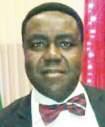
The fact is that, on policy initiatives written on paper, Nigeria has made significant strides in promoting the rights of children by enacting the Child’s Rights Act (CRA) 2003, which domesticated the United Nations Convention on the Rights of the Child (UNCRC). But, in real terms, there’s much to be desired. This is because the implementation and enforcement of the relevant articles remain inconsistent, and as such, Nigeria has not fully met the rights of children as outlined in the CRA.
For the purpose of this article, let me point out a few areas. In terms of legal framework, one can say there has been progress, especially acceptance by most States, yet, the implementation has not met with needed political will. As we
know, the CRA guarantees fundamental rights for children, including the right to life, survival, development, education, protection from abuse, and freedom from discrimination. It mandates free, compulsory, and universal basic education and prohibits child marriage, child labour, and trafficking. At the Federal and State levels, the articles have not been domesticated for effective implementation and monitoring.
It’s on record that about two States, I think, in the Northern region, have not domesticated the CRA due to cultural, religious, and political resistance. In places where the Act has been adopted, law enforcement, the Judiciary and welfare agencies often lack the capacity or political will to enforce children’s rights.
A major challenge in articulating and enforcing a child’s rights, is poor official tracking mechanism because many violations go unreported, unreviewed and/or unpunished. Child labour is popular because it provides cheap labour, and a significant number of children engage in hazardous work, particularly in illegal mining, agriculture, street vending, domestic servitude and even couriers to terrorists. This unavailing condition has given rise to other forms of abuses like sexual abuse, trafficking, domestic violence and early exposure to crime.
Education would have been a bulwark against the problems of child rights, but, there exists so much disparity in entry levels commitment by State Governments, especially in North Nigeria. Despite the law and enormous resources committed, millions of children, especially girls, are out of school due to insecurity, poverty, and cultural practices. The Almajiri system persists, with poor conditions and no standard oversight. In some these States, child marriage is not frowned at, but encouraged as a customary or religious achievement.
In the North-East, the conflict and unabating insurgency of Boko Haram, banditry, and internal displacement, have all united to deny many children access to education, safety, and healthcare.
So, while Nigeria has shown legislative commitment to the rights of children through the Child's Rights Act, in real terms, the actual realisation of these rights is far from complete. Until all States domesticate and effectively implement the Act, and there is a coordinated national effort to address poverty, insecurity, cultural barriers, and institutional weaknesses, Nigeria cannot be said to have fully met the fundamental rights of children as enshrined in the CRA.
But, I need to point out that the relative issues have not the taken the form of a Mount Kilimanjaro challenge yet, but rather, can be fixed through a defiant political leadership that appreciates that the future belongs to the burgeoning children, and lays the foundation blocks for sustainability.
Ed Malik, Editor-in-Chief of DDNEWSonline. com, Abuja
Has Nigeria Met the Rights of Children?
Damilola Decker

More than 20 years after the passage of the Child Rights Act, Nigeria continues to fail the very group it promised to protect - its children. The Act was designed to ensure that, the best interest of the child guides all decisions concerning them. But, for far too many Nigerian children, that promise remains unfulfilled. They are growing up unseen, unheard, and unprotected.
The numbers tell a tragic story. According to UNICEF, over 18.3 million children were out of school as of 2024. While many States have passed
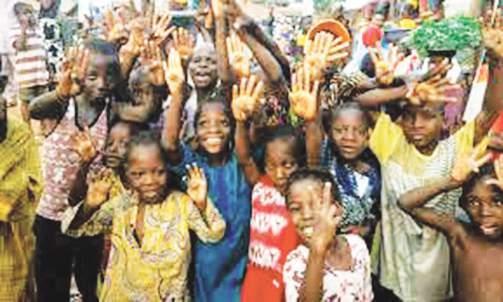
the Child Rights Act, implementation remains weak and poorly funded. Even where schools exist, the quality of education is often poor, with overcrowded classrooms, undertrained teachers, and little learning support. No one is held accountable, when a child is denied education. This is partly because, the right to education in Nigeria is not enforceable in court. It is included in Chapter II of the Constitution, which outlines non-justiciable principles of State policy. The Government can promise free education, but, there is no legal obligation to deliver it. As a result, children are left behind, and the State is never held to account. In reality, most children are not included in decisions that affect them.
Insecurity has also placed children in harm’s way. Since the Chibok abductions in 2014, Nigeria Mourns reports that at least 1,742 other children have been kidnapped from schools across Northern Nigeria. These are not just statistics. These are children whose lives have been disrupted by violence in their quest for education, and whose futures now hang in the balance.
The situation is even worse, for girls.
According to a 2024 UNICEF report, Nigeria ranks third globally in the number of child brides. More than 24 million girls have been married before the age of 18, with national prevalence as high as 44% in some communities. Female genital mutilation is also rising among girls aged 0 to 14, increasing from 16.9% in 2013 to 19.2% in 2018. Nigeria is home to an estimated 19.9 million FGM survivors. Yet, prosecutions remain rare, despite the existence of the Violence Against Persons Prohibition Act, which criminalises this practice.
Sexual and domestic violence against children, particularly girls, is widespread and grossly underreported. Around 30% of girls in Nigeria experience physical violence, and at least 7% have been subjected to sexual violence. Most never receive justice due to stigma, societal silence, and weak law enforcement. The situation is even more harrowing, for child domestic workers. Studies show that more than 15 million Nigerian children under the age of 14 are working, many as live-in house helps. These children, often girls, are denied education, rest, and protection.
A joint study by NORC and The Freedom Fund found that nearly 89% of child domestic
“According to the World Economic Forum, approximately 24% of adolescent girls miss school during their menstrual cycles due to a lack of access to sanitary products, inadequate sanitation facilities, or fear of stigma. This absenteeism can result in girls missing up to 20% of the academic year…. The catastrophic crisis of this year’s JAMB examinations, is emblematic of how Nigeria has failed its children”
workers endure exploitative conditions, with 1 in 11 reporting physical or sexual abuse.
Many of these children work in the homes of relatives, where abuse is hidden behind the guise of family obligation.
Access to healthcare, a fundamental right under the Child Rights Act, is also severely lacking. For many school-age girls, managing their periods becomes a monthly source of fear and shame. According to the World Economic Forum, approximately 24% of adolescent girls miss school during their menstrual cycles due to a lack of access to sanitary products, inadequate sanitation facilities, or fear of stigma. This absenteeism can result in girls missing up to 20% of the academic year, hindering their educational progress and future opportunities. These realities undoubtedly rob girls of dignity, safety, and the chance to thrive.
The catastrophic crisis of this year’s JAMB examinations, is emblematic of how Nigeria has failed its children. Students were failed by the very system designed to give them a future. Technical failures, power outages, and missing questions derailed the dreams of hundreds of thousands. What hurt most, was the response from those in charge. Officials dismissed the trauma with the words, “Man proposes, God disposes”.
But, Faith Opesusi Timileyin did not fail because of God. She failed because a broken system failed her. At only 19, she had taken the exam for the second time, determined to become a microbiologist. When her result came in far lower than the previous year, Faith swallowed poison and died. Her death was not fate. It was a consequence of indifference and incompetence.
Children’s Day should not be a ceremonial event. It should force us to reflect on who we are as a nation, and what we owe our children. If Nigeria truly wants to grow, it must begin by protecting its youngest citizens. We must stop treating child protection laws as optional. We must invest in their education, ensure access to healthcare, prosecute abusers, and provide safe spaces where children can thrive.
The future we speak so much about, depends on the children we are failing right now. Unless we change that, every celebration will only remind us of how far we have fallen short.
Damilola Decker, Programme Officer, Civic Space Strengthening, Global Rights, Nigeria
A Call to Renewed Commitment on Children's Day
Okechukwu Nwaguna
As we honour Children's Day today, it is essential to reflect on the progress and persistent challenges concerning the rights of children in Nigeria, particularly in the context of the Child's Rights Act of 2003. While this Act provides a solid legal foundation for protecting children's rights,
we must acknowledge the significant gaps in its implementation and enforcement.
Education
Progress has been made in improving access to education; however, many children, especially in rural areas, still face barriers to quality schooling. The staggering numbers of out-of-school children, particularly among girls, undermines their fundamental right to education. The increasing attacks on schools and the abduction of children by bandits, especially in the northern regions, represents severe setbacks. Moreover, in the Southeast, the enforcement of sit-at-home orders by separatist groups, has further restricted children's access to education.

Despite existing laws against child labour, millions of children continue to work in hazardous conditions, severely impacting their education and overall well-being. Many impoverished families resort to placing their children as house helps, exposing them to potential abuse and exploitation. Girls, in particular, face heightened risks of rape, defilement, and other forms of sexual violence.
Child marriage remains widespread in numerous regions, violating girls' rights to education, health, and personal growth. Attempts to legislate against this harmful practice are often met with cultural and traditional resistance, impeding progress toward eradication.
Female genital mutilation (FGM) persists in certain communities, infringing on girls’ rights to humane treatment and dignity. Advocacy against FGM has made strides, yet the enforcement of prohibitive laws continues to lag. While Nigeria possesses a comprehensive legal framework aimed at safeguarding child rights, the lived experiences of countless children reveals a different reality. Committed government action, effective law enforcement, and community education are vital to ensuring that every child's rights are acknowledged and upheld.
Conclusion
On this Children's Day, let us renew our pledge to protect and empower our children, ensuring that their rights and futures are at the forefront of our national agenda. It is our collective duty to create a safe and nurturing environment, where every child can thrive.
Together, we can make a difference.
Okechukwu Nwaguna




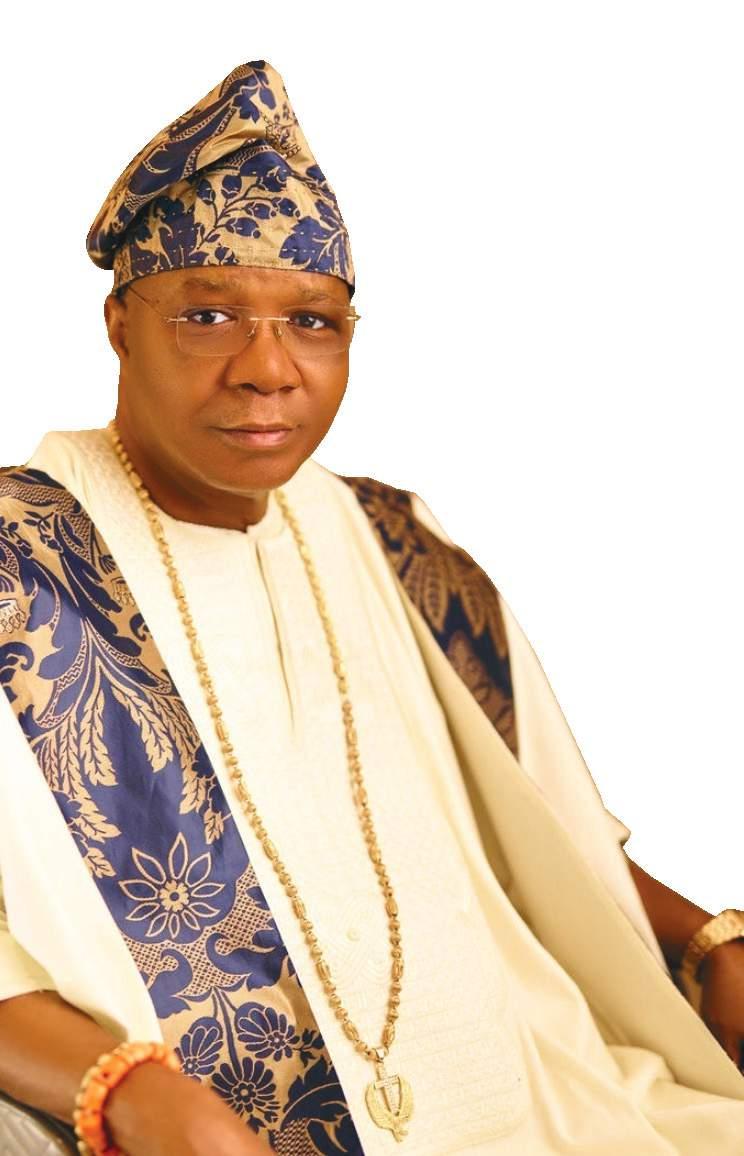


Kayode Tokede
The Director-General, Securities and Exchange Commission (SEC), Dr. Emomotimi Agama has revealed that the commission approved a total of N3.68 trillion in new issues between January and December 2024.
Agama disclosed this at the first quarter Capital Market Committee (CMC) meeting held in Lagos.
“This comprised N59.82 billion in fixed income issuances and N3.62 trillion in equities, reflecting strong investor appetite and issuer confidence in the equity segment of our market. For the period spanning January to April 2025, we have so far approved new issues valued at approximately N446.38 bil-
lion. Of this amount, N265.90 billion was raised through fixed income instruments, while N180.48 billion was mobilised via equities,” he said.
He said that listed companies declared dividends totaling N1.1trillion to shareholders in 2024, stressing that these companies already paid N1.0 trillion.
This, according to him, reflects improved market confidence and investor returns.
He added that the commission between January and December 2024, had approved a total of N3.68 trillion in new issues.
Speaking on mergers and acquisitions, Agama said the commission in 2024 approved 11 transactions with an aggregate value of N320.36 billion.
“Most notable of these was the acquisition of a 58.02 per cent equity stake in Guinness Nigeria Plc by Seven Nigeria Limited., valued at over N103.7 billion. There were also three corporate restructuring transactions, two share capital reconstructions, one takeover, and four registrations of securities.
“Among the notable corporate restructuring transactions was the scheme of arrangement involving Flour Mills of Nigeria Plc, valued at over N105 billion, and the share capital reconstruction by Transnational Corporation Plc, which saw a one-for-four share consolidation amounting to N5.08 billion,” he said.
Igbawase
The Nasarawa State Government has promised to sustain its efforts in utilizing the lithium resources to ensure that the first electric vehicles factory in Nigeria is established in the state.
Governor Abdullahi Sule stated this at an event organised by the Abdullahi Sule Gidan-Gidan Support Group to celebrate his two years in office on Sunday in Lafia.
The state’s lithium reserves have garnered significant attention, particularly with the recent inauguration of a lithium processing factory in Nasarawa, built by Avatar New Energy Materials Company Limited.
He said this development aligned with the Federal Government’s efforts to pro-
mote clean energy and reduce reliance on fossil fuels.
He added that his government was determined to ensure that all mineral resources, including lithium produced in the state, were processed there before exporting or transported to other states and countries.
Sule said that despite the government efforts, it is only the first stage of lithium processing that is taking place in Nasarawa State at the moment.
In his remarks, Deputy Governor of the state, Dr Emmanuel Akabe, said that lithium had always been in the state, but it took the foresight and ingenuity of the governor to expose it to the outside world.
Akabe further stated that there is a huge quantity of lithium deposits in various
Local Government Areas of the state, and the government would leverage it to attract investors.
In opening remarks, Hajiya Hussaina Sule, convener of the event and Chairperson of the Abdullahi Sule Gidan-Gidan Support Group, said that the event was to celebrate the milestone achievements of the governor in the last two years.
The convener, who incidentally is the daughter of the governor, said he has executed a lot of legacy projects across all sectors. She listed some of the projects including flyovers and underpasses in Lafia and Akwanga LGAs and the State Secretariat complex in Lafia for all Ministries, Departments, and Agencies.
Teachers across Nigeria have a chance to win big as 1 Million Teachers (1MT), a teacher-centric professional development organisation holds its “Let There Be Teachers’ Conference in Lagos.
As part of activities preceding the conference, 1MT is seeking to reward inspiring and exceptional teachers who have incredible impact stories, demonstrating how they have inspired students.
“We deemed it fit to reward outstanding teachers who have made incredible impact, as we prepare to host 60,000 teachers
on 20 September 2025,” Seyi Anifowose, Director for Strategic partnership of 1MT and Convener of the conference said.
To enter the competition, each teacher must register for the event on the ‘Let There Be Teachers’ website, and share a short video detailing their teacher impact stories and post it on Instagram, LinkedIn, Facebook, or X. In each post, they are expected to tag @lettherebeteachers, and @ onemillionteachers, and include the official campaign hashtags: #LetThereBeTeachers2025 and
#TeachersMatter.
The best story, with the highest level of engagement will win the star prize of ₦1million, the first and second runners-up will get N500,000 and N250,000 respectively.
The ‘Let There Be Teachers Conference’ is scheduled to be held at the Tafawa Balewa Square in Lagos. It will provide a platform for major education sector stakeholders to highlight challenges faced by teachers with a view of galvanising solutions at the federal and state level.
In a season marked by renewed investor optimism and economic resurgence, Nigeria’s Woodhall Capital International Foundation (WCIF), the philanthropic arm of leading financial advisory firm, Woodhall Capital, in partnership with Mentor Intro Africa, a premier platform connecting Africa’s rising talent with world-class mentors, has successfully concluded its six-week intensive mentorship programme aimed at raising the next generation of global business leaders. Speaking at the grand finale of the mentorship cohort dubbed ‘’Captains of Industry, the President of Woodhall Capital Group, Mrs. Mojisola
Hunponu-Wusu expressed her excitement at the success of the programme. “We’ve raised Captains of Industry; and what makes the difference is consistency, being consistent enough to prove that they are serious-minded people ready to become Captains of Industry in Nigeria and indeed globally.”
She hinted at the readiness of many of the mentees to open businesses in other countries of the world while the guest mentors continued to inspire them to become even more audacious in their respective goals.
To deepen the ignition of audacity in the graduating mentees, Hunponu-Wusu in her last session reinforced

the importance of power and influence in becoming and remaining true captains of industries.
Founder, Mentor Intro Africa, Fola Niyi-Duale, expressed enthusiasm about completing the programme. “We’re happy that the mentees are graduating and we know this is just a launchpad to their big dreams,” she said.
She also recounted success stories emerging during the sessions. “We have a couple of people who have set up their businesses during this mentorship. This programme has given them the clarity and the courage to do what they didn’t know they could do.
Kayode Tokede
The Nigerian stock market yesterday began the last trading week in May 2025 on a positive trajectory as investors demand for Aradel Holdings Plc, BUA Foods Plc and 31 others appreciated the market capitalisation by N540billion.
As Aradel Holdings gained 9.98 per cent, BUA Foods appreciated by 5.26per cent,
the Nigerian Exchange Limited All-Share Index (NGX ASI) advanced by 856.31 basis points or 0.79 per cent, to close at 109,884.93 basis points.
Similarly, the overall market capitalisation value gained N540 billion to close at N69.292 trillion.
Sectoral performance was mixed as the NGX Oil & Gas Index (+three per cent) and NGX Consumer Goods
Index (+2.2per cent) advanced while the NGX Insurance index (-1.1per cent) declined. The NGX Banking and NGX Industrial Goods indices closed flat.
Also, market breadth was positive, as 33 stocks gained relative to 31 losers. Aradel Holdings recorded the highest price gain of 9.98 per cent to close at N505.90, per share. University Press followed with
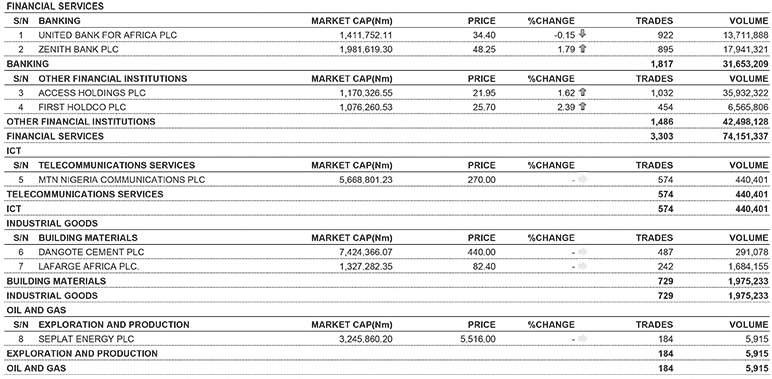





a gain of 9.86 per cent to close at N4.79 and ABC Transport up by 8.43 per cent to close at N2.70, per share.
Linkage Assurance rose by 8.16 per cent to close at N1.59, while C&I Leasing gained by 7.32 per cent to close at N4.40, per share.
On the other hand, Tripple Gee and Company led the losers’ chart by 10 per cent to close at N2.07, per share. MRS
Oil Nigeria followed with a decline of 9.97 per cent to close at N141.80, while Chellarams lost 9.96 per cent each to close at N10.58, per share.
Industrial and Medical Gases Nigeria declined by 9.91 per cent to close at N35.90, while Cornerstone Insurance decreased by 9.80 per cent to close N3.13, per share. The total volume traded decreased by 36.47 per cent to
414.510 million units, valued at N11.095 billion, and exchanged in 19,775 deals. Transactions in the shares of Fidelity Bank topped the activity chart with 46.768 million shares valued at N855.422 million. Custodian Investment followed with 37.160 million shares worth N736.177 million, while Access Holdings traded 35.932 million shares valued at N783.696 million.

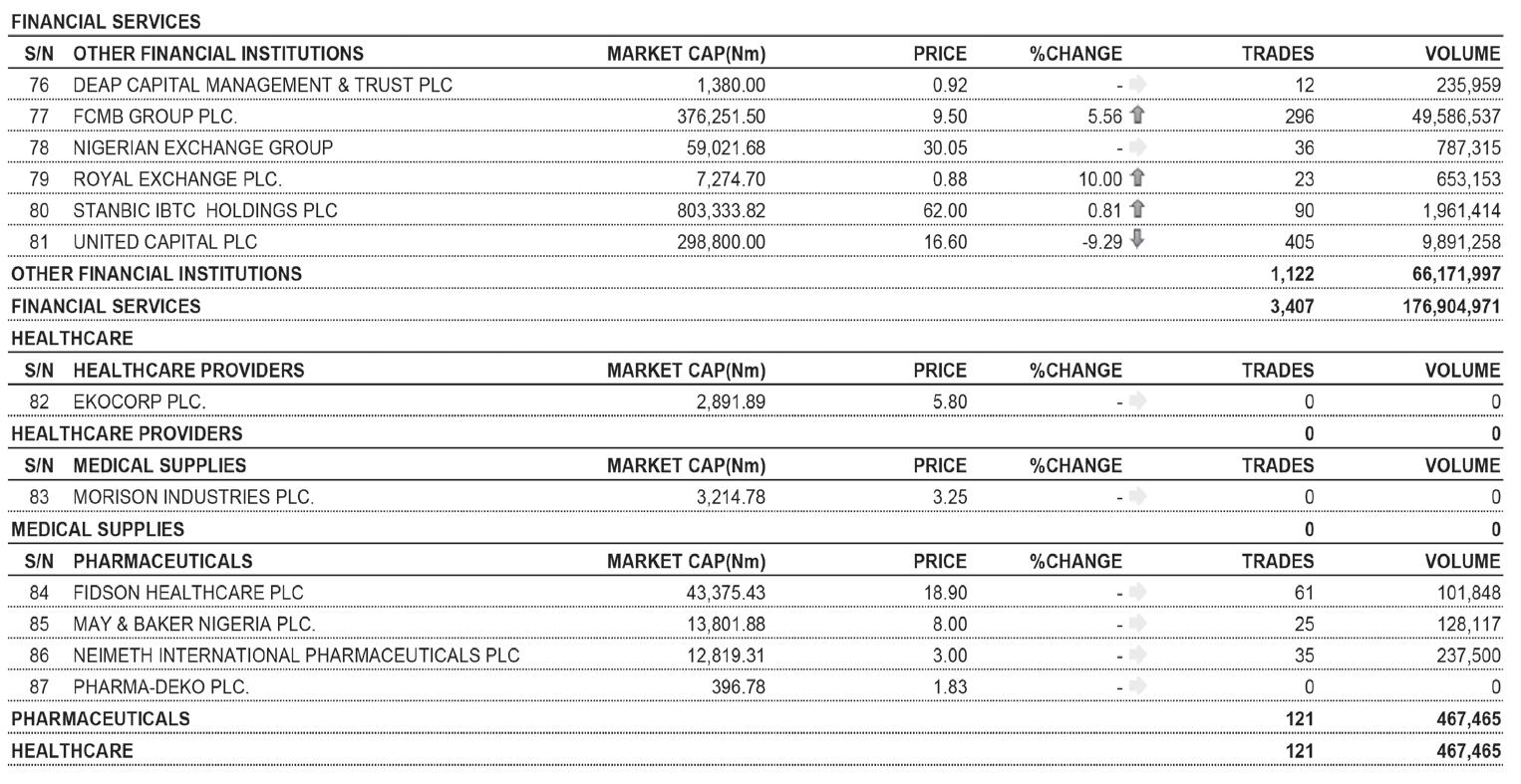
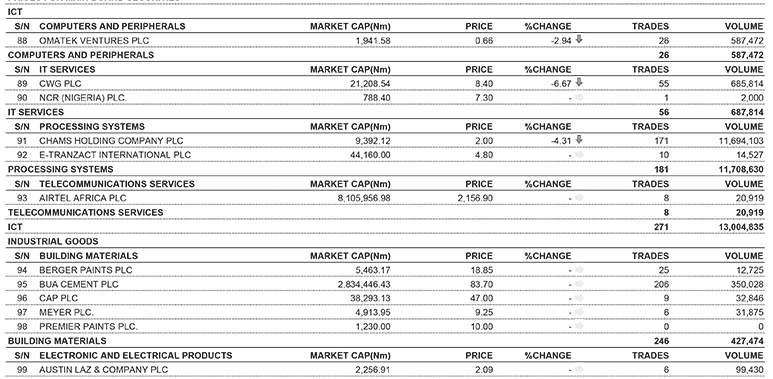


Chiemelie Ezeobi
In a determined push to enhance the post-service lives of Nigerian military veterans, the Defence Headquarters recently launched a three-day Skills Acquisition Training programme for Armed Forces veterans from the Southwest geopolitical zone.
Held at the Nigerian Armed Forces Resettlement Centre (NAFRC), Oshodi, Lagos from 21 to 23 May 2025, the initiative was designed to equip ex-servicemen and women with practical skills and entrepreneurial knowledge for sustainable livelihoods.
A wide range of vocational skills were covered in the training, including poultry and fish farming, snail farming, animal husbandry, integrated farming, irrigation, and modern crop techniques. Other areas include financial literacy, record keeping, agricultural processing and packaging, marketing, and business opportunity identification. Also, the participants were trained and certified by the Small and Medium Enterprises Development Agency of Nigeria (SMEDAN), a credential that can support loan applications for business ventures.
Welcoming participants to the event, Major General D.I. Salihu, represented by Brigadier General Baushe, Deputy Director (Army), Veteran Affairs, described the training as a continuation of a people-first approach championed by the Chief of Defence Staff.
“It is my honour and privilege to welcome you all to the Nigerian Armed Forces Resettlement Centre (NAFRC) Oshodi, Lagos State, venue for the Defence Headquarters Veteran Affairs Division Skills Acquisition Training for Armed Forces Veterans of the Southwest Geopolitical zone,” he said. “The training, which is conducted on geopolitical zone basis, has continued to leverage on the achievements and successes of the previous trainings as well as inputs of the veterans in the bid to enhance their general well-being in every ramification.
“Thus, in tandem with part of the Chief of Defence Staff leadership concept which is ‘People Centric’, I therefore consider this training a very unique

opportunity for all the participants.”
General Salihu urged participants to seize the moment, adding: “It is also my humble plea to our esteemed veterans to utilize the opportunity provided by this training to make best of the business ideas to their utmost advantage. Therefore, I urge you all to be attentive and make meaningful contributions during the lectures and the interactive sessions.”
He extended his appreciation to military authorities and organisers for their support: “I wish to formally thank the Chief of Defence Staff for his consistent and unflinching support to Veteran Affairs Division. I also wish to thank the Veteran Affairs Division Organising Committee for their effort towards making the planning process and conduct of the training a success.”
Representing the Chief of Defence Staff, General Christopher Gwabin Musa, the Direc-
tor of Coordination, NAFRC, Commodore IP Udoudoh, stated: “I am delighted to address you today on the auspicious occasion of the Skills Acquisition Training for Veterans (SAT-V) in the Southwest Geo-political zone.”
Highlighting the theme “Empowering Veterans Through Skills Acquisition for Capacity Building and Sustainability,” he said: “It is believed that by investing in these programs, we are equally investing in the future of our nation because the knowledge, discipline, and leadership abilities of our veterans are assets that can benefit any industry.
“As a farmer, I can better understand the takeaways from this training and their benefits to the participant. I am, therefore, confident that these skills acquisition training programs will be a transformative force in the lives of our dear veterans and in the overall strength
of our workforce. “The essence of this training is to educate participants in various agricultural lines… to create a platform for skills acquisition that could enable them to carve niches in the agricultural value chain.
“With the quality of facilitators anchoring this programme, I am optimistic that at the end of the training you will be adequately enlightened and prepared to key into the poverty alleviation programmes of the Renewed Hope Initiative (RHI) of His Excellency, The President and Commander-inChief of the Federal Republic of Nigeria, President Bola Ahmed Tinubu (GCFR).
“I congratulate you all for being nominated for this training programme and I also urge you to make optimum use of the opportunities this training provides to interact among yourselves and other sundry organisations and individuals,” Commodore Udoudoh concluded.
Uzoma Mba
The Nigerian Air Force Wives Association (NAFOWA) has taken a bold step to ease the burden on 150 widows in Lagos, including 50 widows of fallen Nigerian Air Force personnel and 100 widows from the Shasha community.
Themed “Fostering Harmonious CivilMilitary Relations for Sustainable Peace through a Humanitarian Outreach to Shasha Community”, the event which held at 041 Communications Depot (041 CD), Shasha, was a humanitarian outreach that combined vital food distribution with free medical services, reaffirming NAFOWA’s unwavering commitment to “Service to Humanity.”
NAFOWA, a non-governmental organisation, has continuously championed humanitarian causes and women empowerment across Nigeria through vocational training, healthcare, and social welfare programmes.
A Gesture of Compassion and Solidarity
National President Mrs Rakiya Abubakar emphasised the association’s dedication:“We are happy to bring smiles to the faces of these widows. NAFOWA is committed to supporting those in need, and this outreach in Shasha is only the beginning. We will continue to come here because we feel your pain.”
Each beneficiary received a 25kg bag of rice, 10kg of semovita, a carton of spaghetti, and four litres of vegetable oil—critical aid amid soaring food prices.
Celebrating Service with Purpose
Speaking at the event, Mrs. Abubakar noted the timing of the outreach: “This initiative is part of the activities commemorating the 61st Anniversary of the Nigerian Air Force. Today is not only a moment to celebrate the strength and achievements of the Nigerian Air Force but also to reflect on our responsibility to give back to society.

“To the widows and vulnerable members of the Shasha community: You are not alone. Your strength, resilience, and courage inspire us deeply.”
She also acknowledged the support of key leaders, including the Chief of Air Staff, Air Marshal Hasan Bala Abubakar; Air Officer Commanding (AOC), Logistics Command, Air Vice Marshal Adeniran Kolade Ademuwagun; Air Commodore S.M. Chindo and others, including the Logistics Command Chairperson, Mrs. Ademuwagun, praising their dedication to humanitarian efforts.
Empowering Widows and Communities
In his speech, the Chief of Staff, Logistics
Command, Air Vice Marshal Zayyan Abdullah, applauded NAFOWA’s long-standing role in social empowerment.
Representing the AOC, he said: “Over the years, NAFOWA has played a pivotal role in society through programmes that empower women, children, and the less privileged.
“In a time of rising living costs, this outreach is timely. I encourage beneficiaries to make full use of the vocational and ICT training facilities at Sam Ethnan Air Force Base, offering courses from fashion design to advanced robotics.
“Let me also use this opportunity to encourage the Shasha community to take full advantage of your proximity to the
NAFOWA Vocational Training Centre located at Sam Ethnan Air Force Base, Ikeja. I urge you to enrol your children and wards in programmes that can serve as viable means of livelihood.
“The Institute offers courses in fashion and textile design, catering and hotel management, cosmetology and hairdressing, cinematography and photography, as well as basic computer training. The centre also provides advanced ICT training in robotics, data analysis, data science, and artificial intelligence.
“We must collectively engage our teeming youth in productive ventures that will steer them away from negative influences and the scourge of drug abuse. As the saying goes, “An idle mind is the devil’s workshop.” We must work together to guide our youth— particularly women and teenagers—towards building bright futures and better lives for the next generation.”
Gratitude from the Community
Oba Akanbi Babatunde Ogunronbi, Kabiyesi of Shasha Kingdom, expressed profound appreciation:“This is the first time in my 13 years on the throne that I have seen such a meaningful outreach. These food items will sustain each household for at least a month. I thank NAFOWA and the Nigerian Air Force.”
Beneficiaries, including Mrs. Funke Ayoola and Mrs. Glory Bassey, widows of late Air Force officers, expressed deep appreciation for the support, noting that the gesture meant a lot to them.
A Beacon of Hope
As NAFOWA continues to champion humanitarian causes and women’s empowerment through vocational training, healthcare, and social welfare programmes across Nigeria, the Shasha outreach is a testament to the association’s enduring commitment to uplift vulnerable communities and foster resilience despite economic challenges.
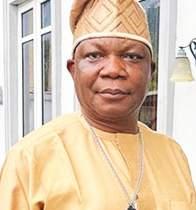
Tunde
Olusunle
A short video clip trended on the social media a few days ago. The narrator who was probably driving his automobile, drew attention to the truck ahead of him. According to his narration, he desired to commute from Egbe, the major southernmost community in Yagba West local government area in the Okun-Yoruba part of Kogi State, to the neighbouring Kwara State. Locals in Egbe, however, had warned him about the crimson activities of faceless criminals in the names of Fulani herdsmen and rampaging marauders on the highway. He thus sought help from a pin-down truck manned by uniformed and armed security personnel, to lead him to safety within the territory of Kwara State, ostensibly for a fee. The truck could be seen in the video, piloting his car. This 50-second video clip summarises the security situation in Okunland today. Hitherto, Okunland across its several hamlets, communities and towns, was an idyllic island of serenity, calm and civility. Farmers, hunters, teachers, civil servants in the employ of the state and local government authorities, as well as retirees, peopled the villages and homesteads. After a hard day's work, home folks congregated beneath wide-spread leafy canopies of abutting trees. They played *ayo olopon,* known by the name "mancala," and draught, *awon oro-oro* games, as they wound down from the day's preoccupations. Liquid soothers included *emu fun fun* and *oguro,* both variants of palmwine. But for the mischief of headstrong goats, people harboured no fears about possible trespassing of their abodes. While conducting his doctoral thesis at the University of Ilorin which birthed the *facekuerade* performance theory, my friend and brother, Sunnie Ododo, relocated from his cosy home in Ilorin, to Kabba, and stayed for weeks. Such was the allure of Okunland. Sadly, at no point in the history of the Okun-Yoruba people of Kogi State has the question of security been as worrying as it has been in recent weeks and months. Call it "one day, one disaster" and you will not be wrong. From the hitherto innocuous *Oyo Iwa* community in the northernmost extremes of Okunland, in Lokoja local government area, to *Egbe* in Yagba West, the southernmost community in the zone, Okunland has been encircled and buffeted by faceless marauders. There are unsavoury narratives from across the six Okun local government areas, namely:
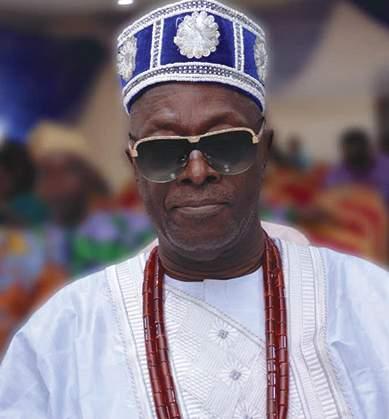
Lokoja, Kabba-Bunu; Ijumu; Mopamuro; Yagba East and Yagba West. Forests and woodlands in the area which share similar vegetation with Yorubaland in the South West, have been infiltrated by Fulani herdsmen, deadly bandits and cold-blooded kidnappers. These days, they have become as emboldened as to venture into communities fully armed with weapons, roam around and take with them their preferred victims, including the vulnerable and elderly.
Okunland has been flung into perpetual fear and gripping despair. The local economy of the people predominantly powered by subsistence agriculture, petty trading, returns on artisanal preoccupations, and so on, has been paralysed. Armed gangs stipulate impossible ransoms on families and communities, which in turn are forced to dispose of prized assets, notably livestock, parcels of land and residential homes, to meet up with ransom deadlines. Callously, certain cells of outlaws receive sweatily-sourced ransoms some enabled by crowd-funding, and still proceed to annihilate their victims. They unwittingly plunge families and communities into double agony.
Disturbed by these developments, Okun people on different platforms are galvanising panaceas to address this scourge. The *Okun Development Association, (ODA)* which is the umbrella body of all Okun bodies and groups had a one-day Security Summit in Kabba, Friday March 28, 2025. President of the ODA, Ambassador Rotimi Akenson, convened the summit which was robustly attended by respected technocrats, royals and government appointees at the state and local levels, from across all six Okun-speaking LGAs. These included serving Commissioners; the State Security Adviser and prominent traditional rulers. Proceedings were moderated by no less a professional than former Director-General of the National Institute for Security Studies, Abuja, (NISS), William Toyin Akanle, PhD, mni.
The summit resolved among others, that: A well-funded community policing structure is a panacea for addressing security challenges in Okunland; and that the establishment of community-based Security Trust Fund, (STF) in Okunland is inevitable. It noted that sharing credible information with security operatives is
key, since security is everyone's business. The Summit also suggested that proper profiling of settlers in our communities is important, just as it posited the adoption of technology-driven security models.
The congregation recommended that job creation, economic empowerment, and social interventions are essential in reducing the proclivity of our youths towards crime, while asserting the need for incentives, motivation and morale-boosting for Okun vigilantes and hunters. A high-powered implementation committee to facilitate the actualization of these proposals has been emplaced.
Akanle is the Chairman, while Femi Oloruntoba, who retired as a Director from the National Drug Law Enforcement Agency, (NDLEA) is the Secretary.
Ambassador Sola Enikanolaiye, in the Presidency; Attorney Tunde Irukera, immediate past Executive Chairman of the Federal Competition and Consumer Protection Commission, (FCCPC) and the multitasking Okun businessman, Yinka Braimoh are on board.
Equally agonised by the relentless rampaging of nondescript outlaws across Okunland, is the *Okun Development Initiative, (ODI),* a strident advocacy group. The organisation has scheduled a pan-Okun Unity Summit, for Friday May 30 and Saturday May 31, 2025. ODI which is altruistically complementing the precedence of ODA, has as National Coordinator, Olusuyi Otitoju, a former Commissioner representating Kogi State in the Federal Public Complaints Commission, (PCC).
The theme of the forthcoming summit is: *Okun Unity: The Power of One Voice, the Strength of Many Hands.* The converge aims to bring together Okun sons and daughters, who have been torn apart by the acidity which has tinctured Okun politics in recent times. This fact is captured by the overarching focus of the forthcoming event, which aims to engage with Okun brothers and sisters to band together as one, since disparate broomsticks, cannot be deployed for sweeping.
Instructively, the forthcoming ODI Summit will be the second time the group is rallying Okun people together to deliberate on issues germane to the wellbeing of the people and the area. Between November 24 and November 26, 2016, ODI staged its premiere Okuncentred public event with the theme:
*Breaking the Bonds of Underdevelopment in Okunland.* It focused on the security, unity and development of Okunland and was richly graced by the cream of Okun elite in business, bureaucracy, academia, media, politics, industry, not forgetting elder statesmen from the area. As far back as its 2016, ODI had drawn attention to the imperative for the security of lives and property in the sub-zone, which has transmogrified into a veritable hydra. Despite the near 10-year lacuna between its premiere and the proposed coming together, it is noteworthy that the ODI recognises the importance of constant engagement in the march towards the fruition of the dreams and aspirations of the Okun nation.
The second edition of the ODI Summit which will be chaired by General Funso Owonibi, (rtd), will have Kogi State Governor, Ahmed Usman Ododo, as Special Guest of Honour. Serving federal parliamentarians from Okunland, notably Sunday Karimi, Senator Representing Kogi West; Leke Abejide, Member Representing Yagba federal constituency, and his counterpart, Idris Salman, Representing Kabba-Bunu/Ijumu, are expected at the programme. Vice Chancellor of the Federal University Lokoja, (FUL), Professor Yemi Akinwumi will be the Guest Speaker, while the *Obaro of Kabba* who chairs the Okun Traditional Council, Oba Solomon Dele Owoniyi is the Royal Father of the event. To underscore the harmonious relationship between the ODA and the ODI, President of the ODA, Ambassador Rotimi Akenson will be Father of the Day at the ODI Summit. Long-serving Kogi State Commissioner for Finance, Ashiru Idris, FCA, chairs the planning committee.
It is noteworthy that the people of Okunland across associations and groups are propelling action concurrently and simultaneously on the insecurity plague in the area. This clearly attests to the severity of the security situation in that part of Nigeria. Equally worthy of note is the fact that irrespective of political inclination, leaders and representatives of the zone appreciate the imperative for coordinated action to stem the current tide and potential slide into chaos. To this end, they are supporting and featuring prominently in the activities and programmes of various Okun groupings, for the collective good of an erstwhile oasis of therapeutic peace and quiet.
•Tunde Olusunle, PhD, Fellow of the Association of Nigerian Authors, (FANA), is an Adjunct Professor of Creative Writing at the University of Abuja.


Nigeria’s total gas production rose by 20.2 per cent year-on-year in April 2025, amid the gas sector’s humongous infrastructure deficit, which has hobbled the ability of the country to fully take advantage of its 210.5 Trillion Cubic Feet (TCF) gas reserves.
Analysis of data from the Nigerian Upstream Petroleum Regulatory Commission (NUPRC) showed that in April last year, total gas production was 189,794.26 MMscf, while in April 2025, the gas output rose to 228,309.16 MMscf.
Although the country has Africa’s largest gas reserves, the sector continues to face a significant infrastructure deficit that has hampered the full utilisation of its abundant natural gas reserves.
Till date, it is estimated that despite this potential, only about 25 per cent of these reserves are being produced, as opposed to countries like Qatar, which has its entire economy built around its gas resources.
Some of the challenges include; insufficient investment, which the Nigerian Extractive Industries Transparency Initiative (NEITI) estimates at about $20 billion annually over the next decade to develop the necessary infrastructure. However, investment levels have been considerably lower, with the Nigerian Midstream and Downstream Gas Infrastructure Fund (MDGIF) accumulating only about $400 million.
Other problems impacting the inability of Nigeria to raise supply considerably include:
Limited pipeline network, which is inadequate for efficient gas distribution; power supply constraints, wherein gas demand is limited; regulatory and policy issues, including non-cost-reflective pricing regimes as well as conflicts in host communities.
According to the NUPRC data, Associated Gas (AG), comprising natural gas produced alongside crude oil, accounted for 115,833.92 MMscf, up from 109,921.29 MMscf in April 2024.
In the same vein, Non-Associated Gas (NAG), which is produced from conventional fields, and not tied to Nigeria’s crude oil output, rose to 112,475.24 MMscf, as opposed to 79,872.96 MMscf in April of 2024.
But when compared with the previous month (March), total gas production in April increased
marginally by 0.17 per cent, that is, from the 227,931.65 MMscf recorded in March 2025 to the new figure of 228.309.16 MMscf in April.
Although challenges remain, the over 20 per cent rise in gas production in Nigeria can be be partly attributed to various policies to encourage gas development, such as the ‘Decade of Gas’ initiative, the National Gas Policy, and the operationalisation of the Petroleum Industry Act (PIA) 2021, which aim to attract investment, provide regulatory clarity, and promote gas as a transition fuel. There have also been efforts to reduce gas flaring through regulations and monetisation programmes. This marginally cut flaring from roughly 9 per cent last year to about 7.8 per cent as of this year.
However, despite these little efforts, the lack of a robust network of pipelines, deficit storage and processing facilities, which limits gas transmission and distribution, especially to inland regions, as well as security issues, particularly vandalism and sabotage of gas pipelines and infrastructure in the Niger Delta, continue to disrupt operations and inflate costs.
Besides, the data indicated that domestic gas sales improved year-on-year by about 21.4 per cent, apparently after the federal government’s ban on the export of Liquefied Petroleum Gas (LPG) in Q4 of 2024.
THISDAY’s checks showed that whereas domestic gas sales were 52,795.52 MMscf in April last year, they rose to 64,097.82 MMscf during the corresponding period
in 2025. In the same vein, export gas sales increased by 28 per cent y-o-y to 83,370.24 MMscf in April 2025, compared to 65,121.00 MMscf in April 2024.
But on a month-on-month basis, domestic gas sales recorded a minute slump of 2.34 per cent, with export sales rising by 3.61 per cent.
Domestic gas sale in Nigeria includes gas sold for: Power generation – supplied to power plants to produce electricity; Industrial use – used by factories and manufacturing plants as well as commercial and residential use – such as Liquefied Petroleum Gas (LPG) for cooking. It also consists of gas-based industries – like fertiliser and petrochemical plants, which also make heavy use of the commodity.
Dike Onwuamaeze
The Manufacturers Association of Nigeria (MAN) has expressed deep concerns regarding a troubling unwholesome way banks are handling the unmet foreign exchange (Forex) forward obligations to the extreme detriment of manufacturing industries.
The Director General of MAN, Mr. Segun Ajayi Kadir, said in statement that many manufacturers are facing stringent requirements in the hands of deposit banks that are not aligned with the Central Bank of Nigeria’s

(CBN) guidelines in the processing of their foreign exchange needs. Ajayi-Kadir in the statement titled “MAN Frowns at the Untoward Practices of Commercial Banks Regarding Unmet Forex Forward Obligations, Calls for Caution,” said: “Recent developments have shown a troubling trend in the way banks are handling the matter, to the extreme detriment of manufacturing industries that have the needless misfortune of being at the receiving end of a problem they did not create and should not suffer. Recently, our
members have reported significant unwarranted complexities and undue highhandedness by the banks.
“Many have faced stringent requirements that are not aligned with the Central Bank of Nigeria’s (CBN) guidelines, resulting in unnecessary bottlenecks and illegal freezing of their corporate and personal bank accounts, with negative impact on production, which could threaten the sustainability of manufacturing operations.”
He noted, “a worrisome case

in point is the ongoing forex forward related dispute involving KAM Industries Nigeria Limited, a leading manufacturer in the steel sector in West Africa and a member of the association, and one of the commercial banks in Nigeria.
“This rather unfortunate treatment of private business is only the reported one, and there are several others undergoing similar harrowing experiences. This should stop in the interest of economic development of Nigeria, job security and business sustainability. It is therefore pertinent for us, as the umbrella body for
manufacturers, to clarify the position of our members with respect to the subject matter involving commercial banks and the CBN.”
He explained that the norm is for commercial banks to receive payments in Naira either through direct remittance from their customers or credit facility for the purpose of securing foreign exchange (FX) for raw-material importation.
“Upon receipt of these funds or grant of credit facility, the banks then remit the Naira to the central bank on behalf of their customers. And from that point, the funds are

deemed to be held by the apex bank, thereby completing the customers’ obligations.
“Given this background, MAN asserts that its members are not liable for delays or complications arising after the remittance of funds to the CBN by commercial banks. Our members have played their part and the commercial banks should play their own part. Our members should not be harassed by the bank,” he said.

Managing Director/CEO Nigerian Ports Authority (NPA), Dr. Abubakar Dantsoho (3rd Left); President/ GCEO Dangote Group, Aliko Dangote
Limited,Sayyu Dantata (1st Right), Executive Director Engineering & Technical Services, NPA, Ibrahim Abba Umar (2nd Right); Executive Director Finance, Vivian Richard-Edet (2nd Left) and Executive Director Marine & Operations, Olalekan Badmus when the Leadership of Dangote Group Visited the NPA Headquarters Marina - Lagos… yesterday
Dike Onwuamaeze
In a strategic move to accelerate Nigeria’s industrial revolution, the Director-General of the Nigeria-China Strategic Partnership (NCSP), Mr.
Joseph Tegbe, is seeking policy alignment that would reposition Nigeria’s economy through the mining and automotive sectors. Tegbe, in furtherance of this objective, held a meeting with the Minister of State for
Industry, Trade, and Investment, Senator John Owan Enoh in Abuja to explore actionable strategies that would unlock the full industrial potential of the mining and automotive sectors within the framework of
President Bola Ahmed Tinubu’s Renewed Hope Agenda. He highlighted that the goal is to shift Nigeria from an import-dependent economy to a production and export-led industrial powerhouse.
Stories by Emmanuel Addeh in abuja
A group, the Nigeria Youth Forum (NYF) has called on President Bola Tinubu to revoke the licences of underperforming electricity distribution companies (Discos) and invite credible investors with the technical capacity and financial credibility to rescue the country’s ailing power sector.
This call comes amid growing public dissatisfaction over the persistent inefficiencies in Nigeria’s electricity supply and the widely criticised privatisation model that, according to stakeholders, has failed to deliver value for money to Nigerians.
In a press statement released in Abuja, the National President of NYF, Toriah Filani, expressed concern over the sector’s dismal output, noting that the total electricity supplied to Nigeria’s
population of over 200 million people is significantly lower than the power supply allocated to a single international airport in Europe.
Filani said: “Compare the Amsterdam International Airport with Nigeria as a whole. The power available at that airport alone surpasses Nigeria’s entire national grid output.
“This reflects poorly on our leadership and infrastructure planning. When you also look at Jeddah International Airport and compare it to the Nigerian situation, you cannot help but feel disheartened. Nigeria claims to be the giant of Africa, yet its power generation capacity tells a different story.”
He further stated that although Nigeria currently generates about 7,000 megawatts of electricity, only about 5,000 megawatts can be distributed due to obsolete
Seplat Energy Plc, has clinched the ‘M&A Deal of the Year’ award at the Nairametrics Capital Market Choice Awards held in Lagos at the weekend.
The award ceremony themed, “Capital Market as a catalyst for Nigeria’s Economic Transformation,” was graced by leading companies listed on the Nigerian Exchange Limited (NGX) and other players in the country’s capital market covering banking, energy, insurance, industry, aviation, construction, food & beverage, and hospitality, amongst other sectors.
Seplat Energy completed the deal on the acquisition of Mobil Producing Nigeria Unlimited (MPNU) - renamed Seplat Energy Producing Nigeria Unlimited (SEPNU) from ExxonMobil in December 2024.
According to Founder and Chief Analysts at Nairametrics, Ugo Obi-Chukwu: “The
capital market is home to professionals and organisations that have significantly influenced Nigeria’s financial landscape. The awards initiative is Nairametrics way of recognising and celebrating their impact.
Seplat Energy was represented at the awards ceremony by the Director External Affairs & Social Performance, Chioma Afe; and the Manager Corporate Communications, Stanley Opara. In her remark, Afe thanked Nairametrics for the recognition and show of excellence in celebrating the impact of businesses in Nigeria’s capital market.
According to her, the company’s mission is to deliver value to all its stakeholders, as it treasures the good relationships that have been developed with the government, regulators, communities and staff.
infrastructure and the failure of Discos to invest in essential distribution materials. This bottleneck, according to the
Forum, continues to cripple the nation’s power delivery system and frustrates economic growth.
He explained that at the center of this shift is the Nigeria First Policy, a landmark presidential directive that mandates all Ministries, Departments, and Agencies (MDAs) to prioritise Nigerian-made goods and services in public procurement, which has already commenced the restructuring of the supply chains, catalysing job creation and reducing overreliance on imports across key sectors. Tegbe emphasised that the Nigeria-China Strategic Partnership is committed to supporting this transformation, noting the country’s readiness to evolve from a consumptiondriven economy into a strategic development partner—
particularly with China. Citing Brazil’s $94.41 billion export performance to China in 2024, he stressed that Nigeria has the capacity to achieve similar milestones by focusing on high-impact sectors such as agriculture, solid minerals, and industrial manufacturing.
Enoh while receiving the Tegbe, reaffirmed the federal government’s renewed commitment to three priority sectors—Sugar, CottonTextile-Garment (CTG), and Automobiles—each backed by active industry councils to drive localised production, stimulate domestic demand, and boost Nigeria’s global industrial competitiveness.
IFC Vice President of Corporate Support, Elena Bourganskaia visited the Mohinani Group’s state-ofthe-art manufacturing facility in Ikorodu, Lagos State, last week as part of her official mission to Nigeria.
The visit highlights IFC’s recognition of the Mohinani Group’s critical role in advancing local manufacturing, sustainable job creation, and economic development in Nigeria and across West Africa.
The Mohinani Group,
Peter Uzoho
The Eko Electricity Distribution Company (EKEDC) has reaffirmed its dedication to enhancing service delivery through continuous investment in network infrastructure and workforce development.
Managing Director of EKEDC, Mrs. Rekhiat Momoh stated this during a customer engagement forum held at the company’s FESTAC Business District.
The interactive session brought
Peter Uzoho
The NNPC/Heirs Energies Joint Venture (JV) Host Communities Development Trust (HCDT) has launched a comprehensive Free medical outreach initiative aimed at improving access to quality healthcare for residents across the oil mining lease (OML) 17 acreage in Port Harcourt, Rivers State. The initiative, spanning 15 centres in Umuechem,
a diversified pan-African conglomerate with operations spanning packaging, consumer products, and industrial chemicals, welcomed the IFC delegationwith a tour of its flagship facility, noted for its innovative production processes and commitment to environmental standards.
Bourganskaia said: “What we’ve seen today is an example of how private sector leadership, backed by targeted investment, can drive real change. At IFC, we are proud
together EKEDC management and customers to address pressing concerns, including technical challenges, billing cycle issues, and delays in prepaid meter programming following a recent system upgrade.
Highlighting ongoing efforts to improve service, MomoMr. who was represented by the General Manager, Corporate Communications and Strategy, Mr. Babatunde Lasaki, outlined several recently completed projects, notably the installation
Igwuruta, Mgbodo-Alu, Eneka, Rumukurishi, Oyigbo, Iriebe, Umuebulu, Umuokwa, Odagwa, Egwi, Elelewon, Ozuoba, and Rumuigbo, will deliver free medical consultations, health education, wellness counselling, dental care, eye care, and surgical services to an estimated 4,500 beneficiaries.
The outreach was designed to address both urgent and preventive healthcare needs in the region.
to partner with companies that are not only scaling production but also building inclusive, green economies that work for people and the planet.”
During the visit, the IFC Vice President met senior executives of the Mohinani Group, including Chief Executive Officer, manufacturing Rafael Pires, who expressed appreciation for the visit.
Pires reiterated the Group’s vision of contributing to Nigeria’s self-sufficiency
of the new Chevron Feeder in Satellite Town under the FESTAC District.
He also shared EKEDC’s strategic plans to partner with independent power producers to increase electricity supply hours and gradually upgrade customers currently in lower service bands to higher bands in the near future.
During the engagement, customers were urged to report any illegal activity such as meter bypass and vandalism through the company’s official whistle-blower
In a statement ahead of the flag-off ceremony scheduled for Monday (yesterday) in Umuechem, Chairman of the Board of Trustees of the NNPC/Heirs Energies JV OML 17 HCDT, His Royal Majesty, Samuel Amaechi, emphasized the importance of health as a pillar of sustainable development:
“This medical outreach is a clear demonstration of our commitment to the well-being
and industrial development through long-term investments, skills development, and sustainable practices. Pires added: “We are honoured to host the IFC Vice President and showcase our efforts in supporting Nigeria’s industrial agenda. Through our cutting-edge recycling PET plant operations in Nigeria and Ghana, we transform post-consumer PET into high-quality flakes and food-grade and non-foodgrade pellets.”
channels. The managing director emphasized that proactive community reporting is critical to curbing energy infractions and maintaining infrastructure integrity.
Reassuring customers of EKEDC’s commitment, she stated, “We remain focused on working closely with our communities to promptly address complaints and enhance the overall quality of life through reliable electricity supply“.
of our people. We recognize that no community can thrive without access to basic healthcare.
“Through this initiative, the HCDT is not only meeting immediate health needs but also reaffirming its role as a responsive and compassionate development institution. We are grateful to our partners, the NNPC and Heirs Energies, for their support in making this vision a reality,” he said.
Cooking goes far beyond what happens on the stove.
For every passionate cook, the true reward lies in the reactions, the smiles, the nods of approval, and the wide-eyed surprise when a dish exceeds expectations. It’s in those moments, when someone takes a bite and their face lights up, that the effort in the kitchen truly feels worth it. That’s the spirit behind Peppe Terra’s Cook to Impress campaign.
Launched in 2024, Peppe Terra Cooking Paste has quickly become a gamechanger for home chefs to elevate taste and flavour, most importantly to leave an impression knowing you’ve created something truly special. Peppe Terra empowers you to do just that. With its rich blend of natural herbs and spices, this cooking paste takes ordinary meals and turns them into dishes that look and taste exceptional.
One customer shared, “The first time I used it, I was making a simple stew and decided to use Peppe Terra as my base. The moment it hit the pot, the rich aroma filled my kitchen. My sisters had to ask if I used extra spices or if I learnt a new recipe.”
In a world where taste and presentation go hand in hand, Peppe Terra gives you
the tools to impress without needing a culinary degree. It lets you take control of your kitchen when you want to make a simple stew feel gourmet or transform a regular jollof rice into something truly unforgettable. Peppe Terra gives you that edge. It brings a consistent flavour and irresistible aroma that not only enhances your cooking but leaves your guests wondering what your secret is. And with two convenient pack sizes, a 55g sachet perfect for single meals and a larger 180g pack for families or events, there’s always the right amount ready to go.
Chief Marketing Officer, TGI Group, Probal Bhattacharya, said, “Cooking is both an act and an art, and making an impression matters. We want consumers to have a great experience with this product, from cooking to eating. That’s why we created Peppe Terra, to inspire impressive meals and unforgettable moments. With Peppe Terra, your kitchen becomes a stage, your ingredients become tools of expression, and every dish becomes a chance to shine.”
As more people embrace the joy of cooking, Peppe Terra is proving that good food doesn’t have to be complicated. The Cook to Impress campaign shows
that Quality and convenience are now within reach with Peppe Terra, making it the ultimate kitchen shortcut for every meal, because at the end of the day, every meal is an opportunity to impress, and with Peppe Terra, that opportunity is just a scoop away. Peppe Terra is a unique cooking paste that includes pepper, ginger, onion, and garlic, unlike typical tomato-based pastes available in the market.
Peppe Terra Cooking Paste is expertly crafted from a blend of wholesome herbs, spices, and seasonings to elevate your cooking experience. Designed to ensure every meal delivers bold, consistent flavor, thickness, and aroma, Peppe Terra leaves a lasting impression with every dish. Perfect for modern households, Peppe Terra is versatile and easy to use—whether you’re cooking for family or hosting guests, especially those you want to impress. Peppe Terra simplifies the process, delivering impressive, great-tasting meals without the hassle. Peppe Terra comes in attractive and easy-to-open consumer packs of 180g Doy-Pack and 55g sachet, and available in stores near you. Cook to Impress! Peppe Terra.
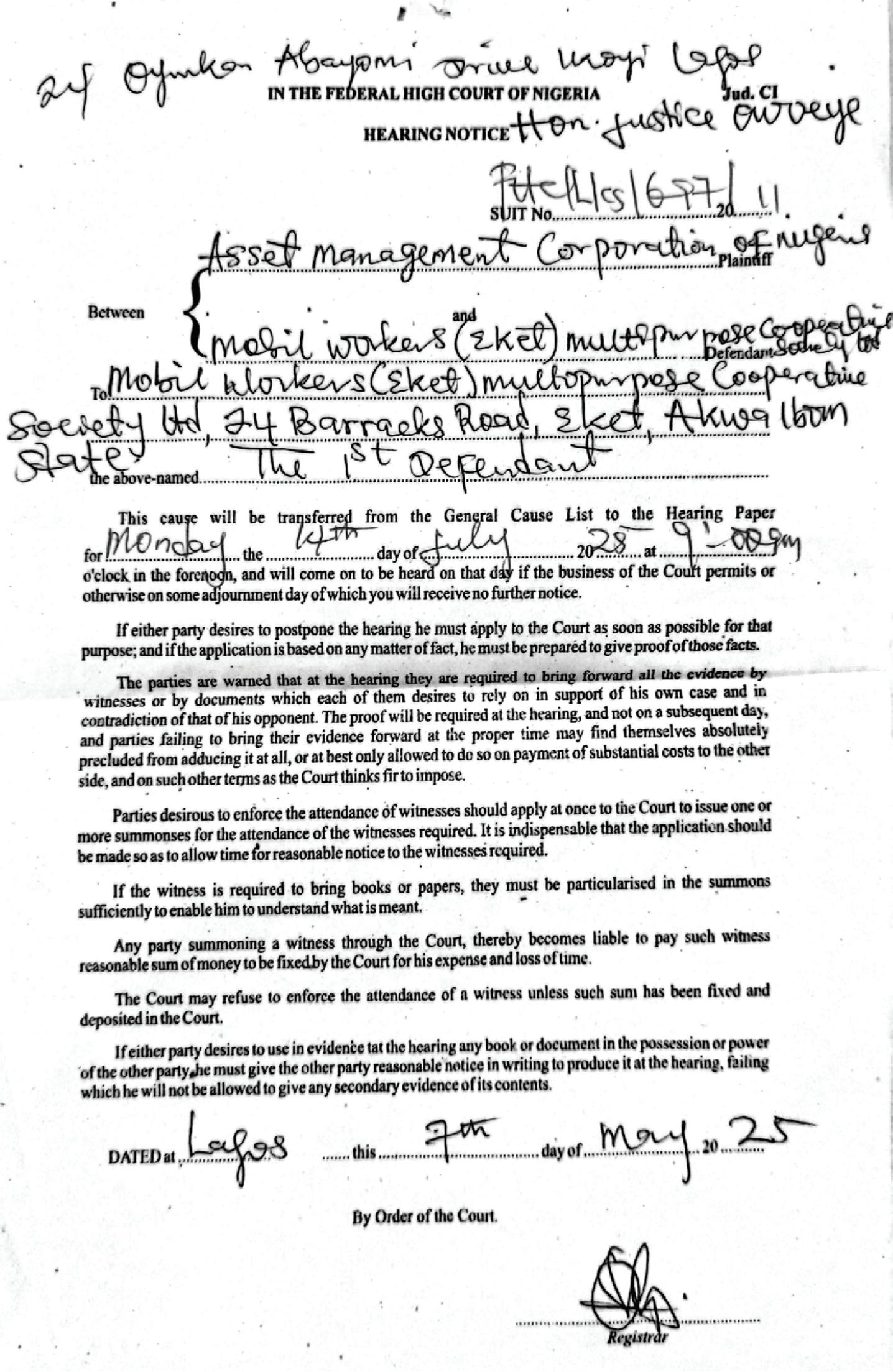

Omon-Julius Onabu in Asaba
Director-General, Standards Organisation of Nigeria (SON), Dr Ifeanyi C. Okeke, has stressed the need for manufacturing, construction and business organisations in the country to make self-regulation and adherence to professional ethics their watchword for a seamless achievement of sustainable
quality standards and global competitiveness. Okeke, who made these remarks at a Stakeholders’ Sensitisation/Awareness Forum in Asaba, Delta State, emphasised that all operators must shun substandard products and services but maintain good quality control at all times.
The forum, with the theme, “Promoting Quality Standards Through Self-Regulation
and Observation of Ethics,” was attended by a spectrum of stakeholders from the manufacturing, metallurgy, electrical, solar power, construction and fabrication as well as distribution business and other sectors of the Nigerian economy especially in the South-South geopolitical zone.
He said that under his watch, SON has expanded its International Accreditation Scope
with SON Laboratory Services, achieving, “a remarkable expansion of its ISO/IEC 17025 accreditation scope by A2LAincreasing from 23 accredited parameters to 52 within a single year (2024). This includes critical parameters such as sulphur content in petrol and diesel, positioning SON as a top-tier laboratory service provider in Africa.”
Represented by Corporate
Affairs Directorate of SON, Mrs Ethan Talatu, Director, the he said, “Standardisation and quality assurance require the involvement of all, public or private sector operators. SON has been enjoying robust engagement with all relevant sectors due to our belief that as a regulatory agency, we need to continually work with industry players, MSMEs, business operators, market
associations, stakeholders, importers and exporters and all other segments of the society.”
His described as germane the theme of the workshop, Promoting Quality Standards Through Self-Regulation and Observation of Ethics, saying it was in tandem with, “the current efforts by the Tinubu administration to turn around the nation’s economy.”
LIGHTSPEED, the creative-tech studio founded by Dotun Olagbegi, successfully launched Nigeria’s first large-scale Water Projection Mapping installation at Lagos State Waterways Authority (LASWA) in Falomo.
By fusing light, water and narrative, this landmark showcase transformed a towering water screen into a dynamic canvas, bringing motion graphics and audio-visual storytelling to life.
Hosted at the LASWA venue in Falomo, the event drew members of top agencies alongside industry leaders and creative innovators. Guests were immersed in sweeping projections that
danced across a 12-metre-high water curtain, demonstrating LIGHTSPEED’s vision for the future of outdoor entertainment.
“This launch marked a new frontier in experiential
storytelling,” said Dotun Olagbegi, Founder of LIGHTSPEED. “We’ve shown what’s possible when imagination meets innovation—right here in Nigeria.” “With this successful debut, LIGHTSPEED’s water
Africa’s largest cement producer, Dangote Cement has been named the Dividend Paying Company of the Year at the inaugural Nairametrics Capital Market Choice Awards, held weekend, in Lagos.
According to the organisers, the awards’ ceremony, themed, “Capital Market as a Catalyst for Nigerian Economic Transformation,” celebrated companies making significant contributions to the country’s economic progress.
Dangote Cement was awarded the ‘Dividend Paying Company’
of the Year, ahead of other nominees including Nigerian Aviation Company and Airtel Africa—recognising its record of solid shareholder returns. The company has established a strong reputation for rewarding its shareholders with consistent and robust dividends.
Speaking on the award, Group Head, Investor Relations, Dangote Group, Temilade Aduroja, said “Our commitment to paying strong dividends reflects our robust financial performance, commitment to value creation, and dedication to delivering
sustainable value to our shareholders. It reinforces trust, rewards long-term investment, and signals discipline in capital allocation.”
A review of Dangote Cement’s annual reports and accounts indicated that since 2018, the company has paid above N10 per share as dividend, increasing the payout to N16 per share and sustaining it through 2022. In 2023, the dividend rose to N20 and was later raised to N30 for the 2023 financial year.
The board for the financial year ended December 31,2024
proposed a dividend of N30 per share subject to the approval of Shareholders.
It should be noted that Dangote Cement recently emerged as the Platinum Award Winner of the Institute of Chartered Accountants of Nigeria (ICAN) and NGX Regulation Limited (NGX REGCO) Corporate Reporting Award. Organised by ICAN-NGX REGCO, the event celebrated excellence in corporate transparency and governance, with other notable winners including MTN Nigeria, Seplat Energy, Stanbic IBTC Holdings, GTCO, Zenith Bank,
United Bank for Africa, and International Breweries.
According to the Corporate Reporting Award guidelines issued by ICAN-NGX REGCO, thirty listed companies were evaluated across three key categories with marks allotted for compliance. The categories and allotted marks are financial reporting with 35 percent, corporate governance allotted 30 percent and sustainability reporting allotted 35 percent. The awards were ranked in Platinum, Gold and Silver categories. Dangote Cement is Africa’s
leading cement producer with 52.0Mta capacity across Africa. A fully integrated quarry-tocustomer producer, with a production capacity of 35.25Mta in its home market, Nigeria. Obajana plant in Kogi state, Nigeria, is the largest in Africa with 16.25Mta of capacity across five lines; Ibese plant in Ogun State has four cement lines with a combined installed capacity of 12Mta; Gboko plant in Benue state has 4Mta; and Okpella plant in Edo state has 3Mta. The company is building a new 6Mta cement plant in Itori, Ogun State.



Our client is a leading Development Finance Institution in Nigeria, with a mandate to promote socio-economic development in Nigeria.
Driven by its professionalism and strong corporate governance ethics, the Organisation adopts global best practices in its operational systems processes and procedures and has assembled an exceptional team, with a broad diversity in
common passion to deliver excellent results.
As part of on-going initiatives to strengthen its operations and enhance its capacity to achieve its goals, our client seeks to r
professional to fill the position of Chief Operating Officer.
Reporting to the Managing Director and Chief Executive Officer the successful candidate will be responsible for directing and coordinating the internal operational activities of the Organisation that ensure achievement of its lending and profitability goals. The overarching objective of the role is client r
encompassing business development, client acquisition, credit appraisal and structuring.
Other responsibilities will include the following:
• Provide leadership for the business development, product development and credit operations teams in the execution of the Organisation's activities.
• Oversee the articulation and development of a strategic
framework.
• Develop and maintain strategic relationships with various
business alliances.
• Champion a customer management framework to build and maintain strong relationships with clients for business growth and retention.
• Coordinate the development and review of strategies for product management and customer acquisition for the short, medium and long term. Develop strategic partnerships to enhance end-user needs assessment and position the Organisation before its target audience.
• Drive the credit assessment process and ensure all credit requests meet the eligibility criteria as set out in the credit policy.
• Monitor and report on the performance of all products, schemes and investments managed by the Organisation.
Qualifications, Experience and Attributes:
• A bachelor's degree in any discipline, combined with a master's degree in a business-related discipline.
Relevant business-related professional certification(s).
• A minimum of eighteen (18) years' cognate experience, with at least thirteen (13) years in the Banking industry and at least five (5) years in a top management role in MSME and commercial business.
• Proven experience in several areas of banking operations including business development, portfolio management and
customer service management.
• Strong understanding of banking operations as well as applicable industry regulations.
• Good working knowledge of financial procedures and applications.
• Demonstrable knowledge of risk management, proficiency in credit analysis and appraisal, and loan administration.
• Proven leadership, negotiating and influencing skills. Strong business and financial acumen.
• E x c e l l e n t s t r a t e g i c n e t w o r k i
relationship management skills.
• Maturity and tact, including the ability to relate with different internal and external stakeholders.
• Well-honed skills to persuade, influence, as well as manage and sustain effective relationships. High ethical standards and integrity.

A Mutual fund (Unit Trust) is an investment vehicle managed by a SEC (Securities and Exchange Commission) registered Fund Manager. Investors with similar objectives buy units of the Fund so that the Fund Manager can buy securities that willl generate their desired return.
An ETF (Exchange Traded Fund) is a type of fund which owns the assets (shares of stock, bonds, oil futures, gold bars, foreign currency, etc.) and divides ownership of those assets into shares. Investors can buy these ‘shares’ on the
floor of the Nigerian Stock Exchange.
A REIT (Real Estate Investment Trust) is an investment vehicle that allows both small and large investors to part-own real estate ventures (eg. Offices, Houses, Hospitals) in proportion to their investments. The assets are divided into shares that are traded on the Nigerian Stock Exchange.
GUIDE TO DATA:
Date: All fund prices are quoted in Naira as at 22 May-2025, unless otherwise stated.
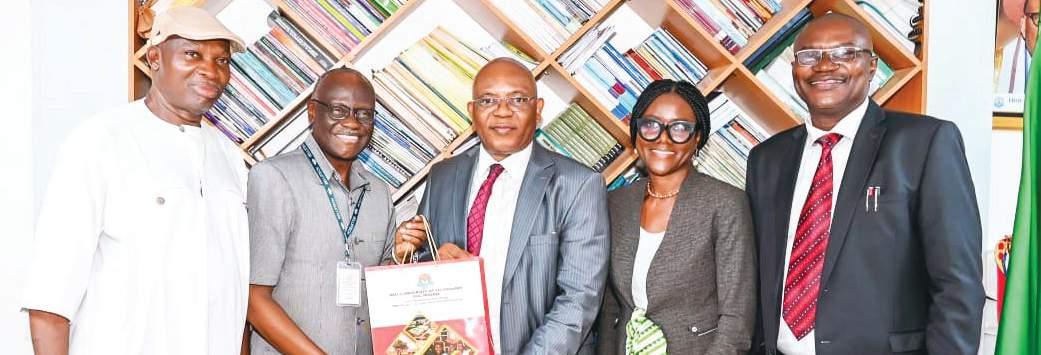
L–R: Coordinator, MBA Programme, Department of Business Administration, College of Management Sciences, Bells University of Technology, Ota, Prof. Jonathan Adewoye; Vice-Chancellor, Bells University of Technology, Ota, Prof. Jeremiah Oludele Ojediran; MD/CEO, Mutual Benefits Assurance Plc and Guest Lecturer, Mr. Femi Asenuga; Head, Corporate Communication, Mutual Benefits Assurance Plc, Mrs. Ellen Offo; and Dean, College of Management Sciences, Bells University of Technology, Ota, Prof. Adebambo O.
Emmanuel Addeh, Alex Enumah in Abuja and Ibrahim Oyewale in Lokoja
The Housing and Urban Development Minister, Ahmed Dangiwa, yesterday inaugurated a 12-member ministerial committee to oversee the completion and disposal of the confiscated 753-unit housing estate located in Lokogoma district, Abuja.
The estate seized from a former Governor of the Central Bank of Nigeria (CBN), Godwin Emefiele, was handed over to the ministry by the Economic and Financial Crimes Commission (EFCC) last week, in line with the directive of President Bola Tinubu.
Dangiwa told the inspection team during the physical handover that he will establish a technical committee to carry out a quality assessment test of the estate, as well as complete and suggest how the federal government will dispose of the houses.
The Ministerial committee has Dr. Shuaib Belgore, the Permanent Secretary as Chairman and will conduct a thorough structural and integrity test of the buildings; ascertain the number and status of the housing units and evaluate the value of existing work done through proper surveying
and market valuation.
Other terms of reference include: To assess the cost of completing internal roads, power, water, security infrastructure, and public amenities and to develop standardised architectural and finishing guides for consistency and quality assurance.
Besides, the committee will propose a clear, transparent, and inclusive strategy for the disposal and allocation of the housing units to Nigerians, special government needs, based on affordability, equity, and public access through the Renewed Hope Housing Portal.
It will also design a robust communication and public engagement plan that builds public confidence, ensuring inter-agency coordination with stakeholders like EFCC, and utility providers, while a preliminary report will be submitted within four weeks.
Dangiwa explained that the committee was constituted based on the vision the president to ensure that the recovered property is quickly transformed into liveable, secure, and affordable homes for the benefit of Nigerians.
“ Your selection is a testament to the confidence the ministry has in
your capacity to drive this initiative with the seriousness and efficiency it demands” he said.
But Emefiele has asked the federal government to shelve its planned sale of the 753 units of a housing estate seized from him last year, pending the hearing and determination of his appeal pending at the Abuja division of the court of Appeal.
Emefiele, in a letter to the Minister of Housing and Urban Development, dated May 26, observed that the notice of Appeal as well as notice of injunction has already been served on the EFCC.
The former CBN boss in the letter signed by his lawyer, Mr A. O. M. Adebowale therefore urged the minister not to take any further step that would affect the matter before the appellate court.
“We write to bring to your notice the pendency of our appeal at the Court of Appeal, Abuja following the judgment of the High Court of the Federal Capital Territory, sitting at Apo, delivered by His Lordship J.O Onwuegbuize on April 28, 2025,
“We have become aware of the handing over of the properties subject matter of the pending appeal to the Ministry of Works and Housing
through the Honourable Minister for Works and Housing and further aware that the said properties will soon be made available to the general public for purchase vide auction.
“We served the Notice of Appeal on the Legal Department of the Economic and Financial Crimes Commission on May 2, 2025 and further served a Notice of Injunction on May 22, 2025. It is in lieu of the foregoing that we write to bring the pendency of our appeal to your notice and ask that further steps on the subject matter of the appeal be stayed pending hearing of the appeal”, the letter read in part.
Emefiele in the notice of Appeal dated and filed April 30 by his lawyer, A. M. Kotoye (SAN) prayed the appellate court to set aside the entire proceedings and orders of the trial court made on November 1 and December 2, 2024, on the grounds of nullity. The appeal which was predicated on four grounds accused the trial court of “Misdirection” and “Error in law”.
According to the appellant, the trial judge erred in law when it dismissed the entire application on the twin grounds that adequate notice was given to the appellant and that there was no breach of the appellant’s right
Wale Igbintade
The seventh prosecution witness, John Adetola, in the ongoing trial of former Central Bank of Nigeria (CBN) Governor, Godwin Emefiele, yesterday told Justice Rahman Oshodi of the Lagos Special Offences Court in Ikeja that he did not document the alleged $400,000 he claimed to have handed over to the first defendant, Emefiele.
Adetola also admitted that he did not present any WhatsApp chat or telephone conversation to the Economic and Financial Crimes Commission (EFCC) where he informed Emefiele about collecting the $400,000 on his behalf.
Emefiele and his co-defendant, Henry Omoile, are facing a 19-count charge bordering on alleged $4.5 billion, and N2.8 billion fraud.
Adetola, an executive assistant to the former CBN Governor, had previously testified that he delivered $400,000 to Emefiele.
He narrated that in 2018, Mr. Eric Odoh sent him a WhatsApp message instructing him to collect the sum from John Ayoh and hand it over to Emefiele when he arrived in Lagos.
His words: “In 2018, I can’t remember the date, Mr. Eric Odoh sent me a message on WhatsApp that I should go and collect the sum of $400,000 from John Ayoh and give it to the former CBN Governor when he came to Lagos. I went to the house of John Ayoh at Lekki in Lagos. He gave me an envelope, and I came back to the office and gave it to the former CBN Governor.”
However, under cross-examination by Emefiele’s counsel, Mr. Olalekan Ojo SAN, Adetola admitted that he did not keep any record of the alleged $400,000 receipt.
When asked if he was being prosecuted for his involvement in the alleged transaction, he replied no.
He also confirmed that in his extrajudicial statement made while
in EFCC custody, he did not mention any WhatsApp or telephone conversation with Emefiele regarding the $400,000.
Adetola denied any agreement with the EFCC to testify against Emefiele in exchange for immunity from prosecution.
He added that the EFCC confronted him with WhatsApp printouts relating to the alleged money.
Earlier in his testimony, Adetola told the court that he holds a Higher National Diploma in Secretarial Studies and is a member of the Chartered Institute of Personnel Management.
He explained that, as an executive assistant to the former CBN Governor, he managed the secretariat and handled correspondences sent to the Governor’s office.
Asked to name his direct boss, Adetola said: “My direct boss is the 1st defendant. The 1st defendant is the head of the secretariat, and I report directly to him.”
He also revealed that he was in
EFCC custody for 11 days, during which he was questioned about the alleged financial crimes involving the defendants.
“I told the EFCC everything I knew in respect of the alleged financial crimes,” he said.
Adetola further told the court that the EFCC never brought him face-to-face with either the first defendant or John Ayoh regarding the $400,000 transaction.
Under cross-examination by Mr. Yinka Kotoye (SAN), counsel to the second defendant, Adetola confirmed he had no dealings with the second defendant in relation to his testimony.
During re-examination by EFCC counsel Rotimi Oyedepo (SAN), when asked why he did not document the $400,000 he allegedly collected on Emefiele’s behalf, Adetola responded: “I did not see any need for it.”
At that stage, Justice Oshodi discharged the witness and adjourned the matter until today (Tuesday) for the continuation of trial.
to fair hearing thereby occasioning a miscarriage of justice. “It is trite that nullity vitiates all proceedings including the one which took place before the learned trial judge,” he argued.
Besides, in a motion on notice filed on May 21, Emefiele is praying the appellate court for an injunction restraining the Respondent whether by itself, servants, appointees, agents, officers, privies or any person or persons acting for or on its behalf from alienating in any manner whatsoever the property lying at Plot 109 Cadastral Zone CO9, Lokogoma District, Abuja, measuring 150,462.84 square meters pending the hearing and determination of the Appellant’s appeal.
The request for a restraining order according to the applicant is to ensure that the judgment of the appellate court would not be rendered nugatory, hence the need to stop the respondent from dissipating selling, leasing and/ or developing the properties which is the Subject matter of this Appeal.
However, the federal government has been urged to convert the recovered duplexes to national liaison offices for the 774 Local Government Areas across the country.
The Rector of Kogi State Polytechnic, Lokoja, Prof. Sallisu Usman, made the appeal in a statement made available to journalists in Lokoja yesterday.
He emphasised that converting the recovered properties into a national asset by designating them as liaison offices and residential quarters for LGAs would serve as a powerful symbol of the federal government’s commitment to fighting corruption and as a reminder of the abuse of public trust by former public officials.
“While some have proposed handing them over to the Nigerian military as additional barracks, others suggest outright sale through open competitive bidding. In response, I wish to propose that the federal government convert the 753 duplexes into a National Liaison Office for Local Government Areas, with each of the 774 LGAs in Nigeria allocated one unit.
“To make up for the shortfall of 21 units, the federal government can construct the additional duplexes, complete the existing structures, and allocate one to each LGA as both a national monument and a lasting metaphor for public accountability.
“It is therefore expedient for the government to organise the duplexes in state-based clusters, dedicating a unit in each cluster to a specific
Local Government Area. Should this proposal be adopted, the estate can also serve as a revenue-generating asset for the LGAs, should they choose to leverage it for commercial purposes.
“To finance the construction of the additional 21 duplexes and the completion of existing ones, the federal government can deduct the necessary funds equitably from LGAs’ monthly federal allocations over time, minimising financial strain,” he stated.
The political science scholar noted that the initiative would not only promote administrative efficiency but also enhance national representation and inclusivity.
Meanwhile, the federal government has inaugurated a new Board of Directors for the Federal Mortgage Bank of Nigeria (FMBN), with a charge to deepen institutional reforms, strengthen governance, and reposition the bank for greater impact in delivering affordable housing to Nigerians.
Speaking at the inauguration ceremony, Dangiwa said the board’s mandate goes beyond ceremonial duties, stressing that they are expected to lead strategic reforms and oversee the transformation of the bank into a more efficient, transparent, and impactful housing finance institution.
Dangiwa, who previously served as Managing Director of FMBN, noted that the bank remains central to the federal government’s National Housing Fund (NHF) Scheme, providing single-digit interest rate mortgage loans with up to 30-year tenors—terms unmatched by commercial banks.
“FMBN is a national asset. But it must not become an excuse for complacency or inefficiency. The unique mandate of FMBN imposes a corresponding duty of responsibility, innovation, and accountability. FMBN must work, and it must work better,” he said.
He outlined key priorities for the new board, including a push for the long-delayed N500 billion recapitalisation, expansion of the NHF contributor base to cover the informal sector and diaspora, digitisation of all customer touchpoints, and the disbursement of at least 20,000 mortgage loans and 5,000 housing units annually.
He also commended the current FMBN management for key operational milestones, including the implementation of a Core Banking Application, N73 billion disbursed in housing finance, registration of nearly 374,000 new contributors, and an unaudited surplus of N11.58 billion for 2024. The new board is chaired by Dr Nasir Yusuf.

Nigerian Screen Carnival at Cannes Film Festival 2025, in France… recently
Eromosele Abiodun
Nigeria’s effort to enhance its foreign exchange earnings received a major boost yesterday in Lagos, with a plan by the Nigerian Ports Authority (NPA) and Dangote Industries Limited (DIL) to expand export operations and increase export revenues from fertiliser to $7 million daily ($2.555 billion a year) in the next two years.
The plan was revealed when Africa’s richest man and President of DIL, Alhaji Aliko Dangote, paid a courtesy visit to the NPA headquarters in Lagos.
Dangote said DIL will work with the NPA on the development of the country’s marine and blue economy sector, to ensure expansion of Nigeria’s export operations.
He stated, “We will soon be massively expanding our export operations. For some of you that have been to our cement factory in Itori, we’re already exporting cement out of Nigeria. We have a whole factory of six million tons for cement export. In the next couple of weeks, we will start exporting coal out of Nigeria.
“Our fertiliser export will be almost like eight cargos. The refinery operations will not export less than 25 million tons of various products. We will also export almost 600,000 to 700,000 metric tons of polypropylene. So when you are talking about export, we are going to be very big.
“In the next two years, we will be exporting about 16,000 tons of fertiliser. When you talk
about 16,000 tons of fertiliser, it’s about $6.5 million to $7 million in revenue that will be coming into the country daily. With our export programme, our company will be the major supplier of foreign exchange earnings in Nigeria. So the operations of Nigerian ports will double in the next one or two years.”
Dangote explained that as the biggest customer to the NPA, it was important that the interaction between NPA and DIL was sustained.
He added, “We are here to thank the NPA for doing a great job, because as we speak today, we are the biggest or largest customer of the NPA. I think this kind of interaction between us and them is very important for the growth of the industry.
“So, we discussed quite a lot of issues. We also discussed issues of how to deepen the marine and blue economy of the nation.
“And we have agreed to work together for the benefit of Nigeria. The size of our operation at Lekki alone is going to be almost 240 ships of crude, with each ship carrying one million crude. And then we’ll have products which will now amount to over 600 ships in a year.
“Then we also have our fertiliser operation, which will be loading almost eight ships. This is an operation that has never ever been seen in the country.
“So, it’s a major challenge. But with the leadership of the NPA, we are very, very comfortable that they’ll be able to deliver.”
Dangote added, “Our operations will sink if NPA doesn’t give us the services we will need for our operations. So, the NPA will be needing a lot of support from the federal government because they won’t be able to do these things with their own hands.
“They need equipment. They need more tug boats. We will also be putting in a few words in the necessary quarters to make sure that NPA gets all the necessary assistance from the federal government.”
In his remarks, Managing Director/CEO of NPA, Abubakar Dantsoho, explained that Aliko Dangote was at the authority to show appreciation for the dividends of the Naira-for-Crude policy of the federal government.
Dantsoho said, “Alhaji Aliko
Dangote is here to show appreciation, especially regarding the establishment of the One-StopShop policy on Naira-for-Crude deal, which is being coordinated by the Nigerian Port Authority.
“He’s here to appreciate that the initiative has contributed immensely to achieving a lot of efficiency in the area of transactions and operations between Nigerian government agencies.
“This is something that started on the 1st of October last year 2024, and so far, we have treated or operated over 57 vessels every month.
“The projected volume that Dangote was looking at per annum was 600 vessels. If you do 56, 57 vessels into 12 months, you will see that we are already doing bigger than
what they projected. We will continue to do our best with support from government.
“If all agencies of government can collaborate and be on the same dashboard, then efficiencies in other sectors of the economy will also be witnessed.
“We’re happy that the government has approved the National Single Window. We’re also happy that as of today, we are 95 per cent ready for the Port Community System.”
On development of new ports, Dantsoho said, “There are two ways you can handle capacity improvement/expansion or deepen port capacity. You can do it on a brownfield, which is, you renovate or rehabilitate existing ports; or on a greenfield, which is to build new ports.
“The last time the government built a new port in Nigeria was 1977, which was Tin-Can Island Port. There is already an approval for the port modernisation of both Tin-Can and Apapa ports.
“We are hopefully looking at maybe the third quarter of this year to commence construction. That is on the brownfield.
“On the greenfield part, like I said earlier, we have deep seaport development projects that has already been approved by Federal Executive Council. We have Ibom Port, Bakassi, Olokola, Ondo Port and we have the one at Badagry in Lagos. These are new ports that the government is concerned about. Very soon, we’ll begin to see that these ports will become reality.”
Shadow Cabinet Essential for Accountability, No Threat to Government, Insists Utomi Says Nigeria needs it to deepen democracy
Wale Igbintade
Renowned political economist and public intellectual, Professor Pat Utomi, has defended the legitimacy and necessity of a shadow cabinet in Nigeria, describing it as a vital tool for democratic accountability, policy innovation, and governance reform.
In a statement by Mr. Kellas Agbasi, Secretary of TOPAZ, Utomi
made the assertion during the 4th edition of the Topaz Lecture Series, themed “Shadow Government: A Distraction or Necessity,” organised by the University of Lagos Mass Communication Class of 1988 Alumni Association.
The virtual event drew media professionals, political thinkers, and civil society actors.
Clarifying the purpose of a Shadow Cabinet, Utomi explained:
brahim Oyewale in Lokoja
No fewer than 19 passengers have been confirmed dead, while eight others sustained varying degree of injures in an auto crash which occurred on Sunday along LokojaObajana road.
The Kogi State Sector Commander, Federal Road Safety Corps (FRSC), Mr. Kumar Tsukwam, confirmed this to journalists in Lokoja yesterday . Tsukwam said that some of
the survivors sustained bruises, cuts, dislocations, fractures, and fire burns.
Further according to him, the fatal accident occurred at Gadabiu Community along the Lokoja-Obajana road in Lokoja Local Government Area of the state around 4pm on Sunday, pointing out that among the 19 burnt to death, were five children.
The Sector Commander explained the fatal accident involved an articulated vehicle
(Truck) and a Toyota Hummer Bus heading to Abuja from the South.
He said it was a head-on collision when the bus on high speed tried to overtake an articulated vehicle only to face an incoming articulated vehicle with no option.
His words: “It was very unfortunate, because it was caused by speeding and wrongful overtaking and involved 27 persons with only eight survivors.
“Our rescue operation team and
the police were able to rescue the eight survivors and rushed them to Fisayo Hospital, Obajana for immediate medical attention.”
He added that the highways were not race roads and appealed to motorists to avoid speed and wrongful overtaking.
He also tasked motorists to always keep to traffic rules and regulations to help the corps and the federal government in reducing road traffic crashes and carnage on roads across the country.
“This is not an attempt to overthrow or undermine the government, but to foster constructive criticism and accountability. Shadow cabinets are a recognised democratic practice globally, and Nigeria must embrace such institutions to promote transparency and performance.”
He described the shadow cabinet as a civic platform designed to stimulate issue-based governance, offer policy alternatives, and foster public debate.
Utomi revealed he first proposed the idea to the late President Umaru Musa Yar’Adua in 2008 and has since maintained the initiative, largely at his personal expense.
Addressing the controversy surrounding the shadow cabinet, Utomi acknowledged the public debate and legal scrutiny it has attracted.
He stated that if the ongoing case against the group by the Department of State Services (DSS) succeeds, they would adopt a different name.
“Our commitment is not to nomenclature, but to values. Nigeria urgently needs a space where policies are debated and where the govern-
ment is constructively challenged to do better,” he insisted.
Drawing parallels with the National Democratic Coalition (NADECO), which called for a government in exile during the military era, Utomi argued that the existence of the shadow cabinet is no more controversial than NADECO’s actions, stressing its role in holding leaders accountable.
Utomi also warned against rising anti-intellectualism and complacency among Nigeria’s political elite, cautioning that without reforms, the country risks collapse akin to Somalia’s.
He emphasised that only strong institutions and active citizen engagement can secure Nigeria’s future.
The lecture featured a robust Q&A session, with the Class of 1988 expressing gratitude to Utomi for his dedication to national service and his role as a voice of conscience in Nigerian civic governance.
The Topaz Lecture Series serves as an intellectual platform for alumni and professionals to engage critical national issues, promote civic values, and inspire transformative leadership.
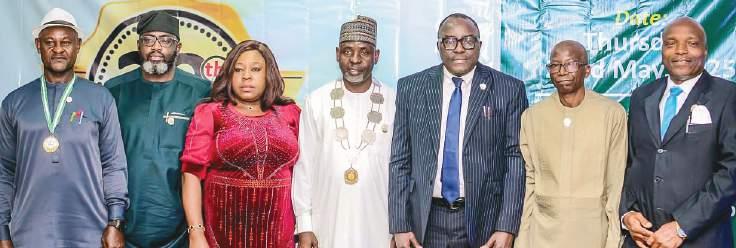
and George
Borno State Governor, Babagana Zulum, yesterday, vowed never to let terrorists and insurgents overrun any local government area in the state. Zulum said this after a closed-door meeting with President Bola Tinubu at State House, Abuja. Briefing newsmen after the meeting, Zulum said they discussed the current security challenges posed by Boko Haram and ISWAP insurgents in the state.
The governor said he briefed the president on the security situation in North-east zone and Borno State, in particular, and looked at how both the federal and state governments could collaborate to solve the security problem.
Zulum stated, “Purposely, I came to brief him on the security station in the North-east and, in particular, in Borno State. This is the main reason why I came. Because you have heard it all that within the last few days things are not getting very well in northern Nigeria, particularly, in the
North-east.
“I’ve been away for about one week into some of the affected local government areas. We are trying to see how we shall reduce the incendiary attacks on military formations and others.
“So I came and I briefed Mr. President on how possibly best we can, the state and the federal, work together in order to reduce such problems that we are facing.”
The governor stated that Tinubu assured him that definite steps would be taken on the issue, apart from earlier
measures taken by government before now, including planned establishment of forest guards.
He said, “Honestly speaking, we made a plea to the federal government of Nigeria, and I believe within the last couple of days, the Nigerian armed forces have taken certain decisions that will curtail the imminence of the insurgency.
“And I believe something shall be done. Most importantly, some plans are underway by the federal government, especially the establishment of forest guards. That will be a
The Vietnamese Ambassador to Nigeria, Mr Bui Quoc Hung, yesterday said that current data reveals that the trade volume between Vietnam and Nigeria, Africa’s largest economy, reached $1 billion in 2024.
He noted that this is the first time in the history of trade relations with Nigeria that the trade volume between the two countries had exceeded $600 million, reaching a record high of $1 billion.
The Vietnamese envoy made this revelation in Abuja during a Roundtable Discussion at the Armed Forces Officers’ Mess, Asokoro, to commemorate the 135th birthday anniversary of President Ho Chi Minh.
He said: “Normally, we get only $500 or $600 million, but last year it was $1 billion for the first time. We still have to try very hard because there are many opportunities for cooperation in terms of trade and investment between our two countries.”
He stressed that the life of President Ho Chi Minh is a great epic of wholehearted devotion to national independence, freedom, and the happiness of the people. The Vietnamese diplomat said that Ho Chi Minh not only made history but also left a priceless spiritual legacy for the Vietnamese nation.
He added that his ideology, ethics, and lifestyle would forever serve as a guiding light for the cause of national construction and defence today and in the future.
Speaking on behalf of the federal government, the Deputy Director of the Asia and Pacific Division,
Ministry of Foreign Affairs, Mohammed Haidara, said that Ho Chi Minh’s legacy is one that transcends borders, generations, and ideologies, embodying the spirit of resilience, nationalism, and the unwavering pursuit of freedom.
He stressed that Nigeria recognises and deeply respects the contributions of Ho Chi Minh, not only as the founding father of modern Vietnam but also as a beacon of inspiration for all nations striving for sovereignty, dignity, and self-determination.
“His leadership exemplified the courage required to challenge oppression, the wisdom to unite
diverse aspirations, and the foresight to build a nation that stands proudly among the global community today.
The relationship between Nigeria and Vietnam has grown significantly over the years, rooted in mutual respect, economic cooperation, and diplomatic solidarity.
“As two nations committed to progress, peace, and sustainable development, we acknowledge the enduring lessons from Ho Chi Minh’s vision – lessons that reinforce the importance of national unity, economic resilience, and the tireless pursuit of a better future for our people,” he added.
The President of the NigeriaBangladesh Business and Technology Forum, Bob Achanya, stressed the importance of deepening bilateral relations with Vietnam, particularly in the areas of business, technology, and sustainable development.
He noted that Minh’s vision of international cooperation and equitable development provides a timely framework for addressing the challenges facing Vietnamese joint ventures in Nigeria.
He called for the repositioning of bilateral trade between the two countries through strategic partnerships.
game-changer. Above all, as we have said it all, some of the Boko Haram and ISWAP members are using some sophisticated weapons.
“I believe the federal government is also working on this direction. But, by and large, the president has given me assurance that they will do everything to control the situation, and I believe the federal government will do something.”
Zulum vowed that under his watch no local government in Borno State would be overrun by Boko Haram and ISWAP insurgents.
He stated, “On my own part, as the governor of Borno State, I will not relent in my effort in strengthening the resilience of our community and getting our volunteers so that the efforts of the Nigerian Armed Forces shall be complemented. So far so good. This is what is happening.
“And a few days ago, I made a call that no local government shall be allowed to be taken over by Boko Haram or ISWAP members. It will never happen now.”
The governor also called on the military and security apparatus to live up to expectation by securing the local government areas in the state against external aggression.
He said, “So, I’m calling the Nigerian Armed Forces, the civilian authorities, and all those that are concerned to rise up to the matter and defend our local government areas.
“I believe, Inshallah, with the support of the Nigerian Army, with the support of the armed forces, we will not leave a single local government to fall into
the hands of the insurgents. This is so far so good, what we have discussed.” Meanwhile, over 42 people, including a mobile police officer, were reportedly killed in coordinated attacks on Aondona, Ahume, Tyolaha, and Tse Ubiam communities in Benue State by suspected herdsmen between Saturday and Sunday. According to a local source, the attacks on Aondona and Ahume communities alone claimed no fewer than 30 lives.
“The attack on Ahume and Aondona happened on Sunday. Over 10 people were killed in Ahume and 20 in Aondona. Among the victims were children less than two years old,” the source said.
Many residents from neighbouring communities have fled to Naka, the Gwer West headquarters, and to Makurdi for safety.
“Tyolaha and Tse Ubiam were attacked on Saturday. Five people were killed in Tyolaha and seven in Tse Ubiam,” the source said, stating that both attacks occurred near a military base.
The source also said the local government, in collaboration with stakeholders in Nagi, launched a search and rescue operation.
“So far, 42 bodies have been recovered between Saturday and Monday morning,” the source disclosed. It was also gathered that Aondona community is the hometown of the Bishop of Makurdi Catholic Diocese, Most Rev. Wilfred Anagbe, and the immediate past First Lady of Benue State, Mrs. Eunice Ortom.
The Nigerian Panorama CGPI Reports on e-Governance, titled ‘Panorama CGPI eGovernance Report,’ has ranked Adamawa as the worst-performing state, followed by Rivers and Katsina States. The e-Governance report was put together by the CIAPS Governance Performance Index in conjunction with Nigerian Panorama. It uses government websites to assess governance performance and accessibility.
The report judged the 36 states of the federation using 10 parameters, including: website security, content relevance, up-to-date, citizen engagement, user-friendliness, empowerment opportunities, directory, policy & regulation updates, accountability, and Online services. According to the report, aggregate ranking based on the parameters, Lagos State ranks highest, followed
by Anambra and Enugu States, while Adamawa, Rivers and Katsina States were the least performing states, respectively.
In terms of website security, Adamawa, Benue, and Oyo states were the least ranking states, while Anambra and Lagos were the highest performing states. In terms of content relevance, Adamawa and Ebonyi states ranked lowest, while Lagos State ranked highest.
In the area of providing up-to-date information, Akwa Ibom, Anambra, Ekiti, Ondo, and Lagos States took the lead, while Adamawa, Katsina, Rivers, and Taraba states were the lowest ranking.
In the area of citizen engagement & feedback mechanisms, “Lagos, Kwara, Ondo, and Enugu States provided contact forms, active emails, and complaint ticket systems. Many states lacked proper contact mechanisms or had inactive forms and social links
(Katsina and Niger specifically),” the report said.
In the area of user friendliness, accessibility and design, it said that “Anambra and Lagos had intuitive, accessible, and responsive designs.
Katsina and Imo had broken links and poor layouts beyond the home page.
“In the area of Empowerment Opportunities, Youth-focused opportunities like jobs and grants were prominent in Ekiti and Lagos. However, technical issues and limited visibility undermined effectiveness in most states.
“In terms of the MDAs Directory, Who’s Who in Government, Most states listed MDAs but often lacked contact information and bios. Only a few provided full organisational charts or clear roles.
“In terms of Updates on Policy & Regulations, very few states publish timely legal updates, policies, or announcements. This creates an
information vacuum and fosters misinformation.
“In terms of Budget & Project Transparency, Enugu, Edo, and Akwa Ibom showcased budget details and development projects.
States like Kebbi, Sokoto, and Bayelsa had outdated or missing financial data.
“And in terms of Online Services and Bringing Governance to Citizens, Lagos, Anambra, and a few others offer limited digital services. Most states lacked functional e-portals for payments, registrations, or certificates,” the report noted.
Speaking about the report, the Director General, CIAPS, Anthony Kila, noted that, “e-Governance is very important because it is one thing that most citizens can deal with. We think that state governments, which are supposed to be nearer forms of government to citizens, should be good at e-governance.
“The gateway to e-governance is the website, and what we have done is to check the websites of all 36 states of Nigeria to assess how connected they are with the people.
“There are a few states that are doing relatively well when you compare them to international standards, but there are also some states that are doing badly. Adamawa comes to mind, Sokoto is not doing well either, and I’m also not doing well.
“And I think the best way is to call out the states that are doing badly, so they can realise that they need to improve on it.
“The state governors, commissioners for information and technology, should understand the importance of e-governance and digital life to their citizens, and they should work on it.
“We recommend that they first get their priorities right, understand that it’s important, invest in ICT, and invest in people.
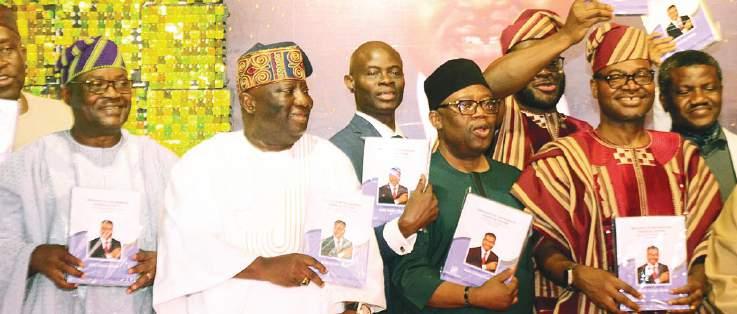
L–R: Mr. Tajudeen Nasiru, CEO, Greenbelt Hospitality Ltd;
Director, Legal Services, Central Bank of Nigeria, Mr.
Says Obi’s association with coalition distasteful, unacceptable He has our full backing, Usman faction insists
Chuks Okocha in Abuja
The Julius Abure faction of Labour Party (LP) said the presidential ticket of the party was not reserved for Peter Obi, but open to all qualified Nigerians interested in aspiring for the office.
It said LP was not perturbed by Obi’s declaration that he would contest the 2027 general election on the platform of the party.
Obi had weekend assured his supporters that he would contest the 2027 general election on the LP platform. He said this while speaking to a group of young supporters in a seven-minute, 16-second video circulating on the party’s WhatsApp platform on Saturday.
The viral video was also confirmed by his spokesman, Dr Tanko Yunusa, and National Publicity Secretary of the party, Obiora Ifoh.
Reacting, LP, through Ifoh, said,
“The attention of the leadership of the Labour Party has been drawn to the news trending in the media that the party is ‘celebrating’ that its candidate in the 2023 presidential election, Peter Obi, has declared his intention to run on the platform of the party in 2027.
“I want to state emphatically that I was quoted out of context and, therefore, the impression conveyed by the news was erroneous, inac-
curate and does not in any way reflect the position and mood in the party.
“First, while we are not opposed to anybody running under the platform of the Labour Party in the 2027 general election. We need to make it categorically clear that the party has a long standing rule on how its candidates shall emerge and automatic ticket is not one of the routes.
“Recall that at the party’s National Convention in 2024, the party had erroneously granted automatic tickets to our former presidential candidate and the only governor of the party. However, that decision has since been rescinded and reversed after consulting the statute books.
“Second, His Excellency, Peter Obi, hours after he spoke of his intention to run under the Labour Party, was on Sunday (yesterday) seen in a meeting of a pro-coalition group in Abuja without the permission and consent of the Labour Party leadership.
“This, to us, is really confusing and we think that Peter Obi has not come to terms with his intentions for the 2027 presidential race.
“We have consistently said Labour Party will not go into any coalition or merger of any sort ahead of 2027 general election. Therefore, Obi’s continued association with the coalition is not
only distasteful but unacceptable to the party. It is also an affront to the party leadership and we view his position as a total disregard to the party’s right to make decision bidding its affairs.
“We are, therefore, by this statement letting Nigerians know that the presidency for 2027 is open to anyone who wants to run under the platform of the party.”
But the Nenadi Usman-led faction of LP debunked the report by the Abure group that Obi attended the coalition meeting
on Sunday without the consent of the party.
In a statement by Senior Special Adviser, Media, to Usman, Ken Asogwa, the party said, “To be clear, the National Caretaker Committee of the Labour Party, under the able leadership of Distinguished Senator Nenadi Usman, expressly approved and endorsed Peter Obi’s participation in the ongoing patriotic convergence of well-meaning Nigerians committed to dismantling the rudderless Tinubu administration.
“It is worth reiterating that Obi has consistently maintained that his interest lies solely in a coalition focused on eradicating hunger, insecurity, and poor governance – a vision that aligns squarely with the founding principles and aspirations of the Labour Party.
“It is therefore baffling that individuals who have been shown the exit door for their anti-party activities now seek to question a move so clearly rooted in national interest. One is left wondering whose agenda Julius Abure
and his cohorts have truly been advancing. Is it that they disagree with Obi and the Labour Party that Nigeria is presently facing an unprecedented crisis requiring collective action to salvage?
“While the Labour Party wholeheartedly welcomes the coalition movement driven by the Nigerian people, we also reaffirm Peter Obi’s unequivocal right to contest the 2027 elections under the Labour Party platform - should the ongoing coalition efforts fail to materialise.”
The national caucus of the Peoples Democratic Party (PDP)will continue today, but no decision was taken on the planned National Executive Committee (NEC) meeting that was postponed by the embattled national secretary of the party, Samuel Anyanwu. However, the national caucus said a small committee was set up to look into some issues. Addressing reporters after an over three hours meeting, the act-
Juliet Akoje in Abuja
Speaker of the House of Representatives, Hon. Tajudeen Abbas, has announced the withdrawal of the proposed compulsory voting Bill.
In a statement issued on Monday by his Special Adviser on Media and Publicity, Musa Abdullahi Krishi, the Speaker explained that, after holding wide-ranging discussions with various stakeholders, he opted to retract the bill, which aimed to amend the 2022 Electoral Act to enforce mandatory voting among eligible Nigerian citizens.
The bill, which passed second reading recently was jointly sponsored by the Speaker and Daniel Asama, a
lawmaker from Plateau State.
The proposed legislation stipulated penalties for eligible voters who failed to vote without valid justification, including a fine of N100,000, a six-month jail term, or both.
Abbas emphasised that the initial motive behind the bill was rooted in good intentions, aiming to enhance civic involvement and fortify Nigeria’s democracy by promoting greater voter participation.
The statement noted that compulsory voting has been effectively implemented in several countries, including Australia, Belgium, and Brazil, where voter turnout consistently exceeded 90 per cent while other nations such as
Argentina and Singapore had also adopted similar policies to promote wider inclusion in electoral processes.
Acknowledging the importance of public opinion and individual rights, Abbas affirmed that legislation should ultimately reflect the will of the people.
He stressed that any democratic reform must consider the balance between encouraging civic duty and respecting personal freedoms.
Instead of enforcing participation through legislation, he expressed a willingness to pursue alternative strategies, such as providing incentives and creating innovative solutions, to make the voting process more appealing and accessible for all Nigerians.
ing national chairman of the party, Amb Illya Damagum said, “As you can see, we just adjourned our meeting of today to tomorrow, 10 o’clock. This meeting is going to continue. We’ve just set up a small committee that will give us a report.’
‘’Tomorrow morning, the national caucus will will continue. I will address you properly by the
time we conclude our meeting tomorrow. And I want to use this opportunity to tell you that you can see, I am sure, you are aware that our office has been sealed.
‘’This is the height of irresponsibility from this government. If they are encouraging it, we are not going to take it lightly.
‘’In fact, they can come and arrest all of us. We are ready for that. Thank you. But we condemn this in totality, and it is the highest sense of irresponsibility, and we will not tolerate it.
‘’They are trying to mar democracy, and this is unacceptable. We condemn it, and we will make sure that they will have us content in the near future. Thank you very much.”
James Emejo and Wale Ajimotokan in Abuja
The federal government yesterday announced the commencement of payment of the N35,000 wage award arrears to federal government workers.
This was disclosed by the Office of the Accountant General of the Federation (OAGF) in a statement issued by Director, Press and Public Relations, Mr. Bawa Mokwa in Abuja.
The OAGF said many federal government employees have confirmed receipt of the payment, adding that those who are yet received will do so.
The statement further clarified that the Accountant General of the
Federation (AGF), Mr. Babatunde Ogunjimi never said the N35,000 wage award was excluded from the 2025 budget as reported by some online media. It added that the AGF didn’t brief the press on the wage award issue and assured that outstanding arrears would be paid as promised by the government. Bawa also stated that the payments would be done in installments of N35,000 for five months.
Last month, the AGF announced that the federal government was ready to disburse outstanding five-month- N35,000 wage award arrears to federal government workers.
He explained that the federal
government had earlier paid five months wage award to federal government employees in installments, adding that the outstanding arrears would be paid in installments of N35,000 per month for five months. He added that the first instalment of the outstanding wage award arrears would be paid after the April 2025 salary. Bawa said: “The wage award arrears would not be paid with the April 2025 salary; it will come immediately after the salary is paid.”
The office further reiterated the federal government’s resolve to fully implement all policies and agreements regarding staff remuneration and welfare to enhance productivity and efficiency.
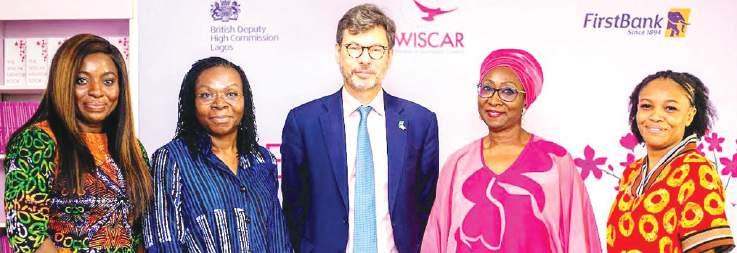
L–R: Mentor, Women in Successful Careers (WISCAR) and Investment Professional, Siemens Energy, Mrs. Adedoyin
Jonny Baxter; Founder and Chairperson, WISCAR, Mrs. Amina Oyagbola; and Executive
Commission, discussing the WISCAR mentoring book, held in Lagos… recently
Following the outcry generated by the decision of the Federal Capital Territory Administration (FCTA) to possess the 4,794 properties revoked for non-payment of ground rent, from 10 to 43 years, President Bola Tinubu has intervened by granting the defaulters a 14-day window to clear their debt.
The Director of Land, FCTA, Mr Chijoke Nwankwoeze, disclosed this last night while addressing the press.
The enforcement exercise that began yesterday saw properties owned by government institutions, corporate organisations and individuals being sealed off and with ownership now transferred to the FCTA.
Nwankwoeze, accompanied by the SSA Public Communication and New Media, Lere Olayinka, said through the president’s intervention, holders of the affected properties now have
two weeks to settle the outstanding ground rents, with associated penalties.
He said for properties in the Central Area, the sum of N5 million would be paid by the defaulters as penalty, in addition to the ground rent owed, while those in Maitama, Asokoro, Wuse II, and Guzape Districts would pay the sum of N3 million as penalty, in addition to the ground rent owed.
Defaulters in Wuse I, Garki I and Garki II would pay N2 million as penalty in addition to the ground rent owed.
“Also, all those who purchased properties from other people, but are yet to register their interests by obtaining the mandatory Minister’s Consent and registering their Deeds of Assignment now have 14 days (two weeks) to do so at the FCT Department of Land Administration.
“Furthermore, the Minister of the Federal Capital Territory (FCT), Barrister Nyesom Ezenwo Wike, CON,
has granted a 14 days (two weeks) grace period to all property holders in the FCT to pay up their Right of Occupancy (R-of-O)/Certificate of Occupancy (C-of-O) bills, or risk revocation of those titles.
“Going forward, the Minister has advised property owners in the FCT to ensure that they pay all necessary bills and charges on their properties as at and when due, so as to enable the government to continue to carry out necessary developmental projects for the benefit of the people.”
The FCTA had sealed off Wadata Plaza, the headquarters of Peoples Democratic Party (PDP), among others over ground rent indebtedness.
Other premises possessed in Wuse Area of Abuja during yesterday’s exercise, included the Federal Internal Revenue Service (FIRS), Ibro Hotel, Nigeria by the National Agency for the Prohibition of Trafficking in Persons (NAPTIP), Access Bank and Total
Energy. In all, the titles of over 4,794 properties were revoked for defaulting in paying ground rent amounting to N6.9 billion for between 10 and 43 years.
The Director of Land, FCTA, Mr Chijoke Nwankwoeze, clarified during the exercise that what was physically repossessed was the property belonging to Senator Samaila Mamman Kofi that PDP was occupying.
He insisted that there was no political undertone behind the action, adding the occupants were duly also served evacuation order.
He noted that the property had since March 2025 been revoked while the occupants had been repeatedly warned to vacate the building to enable the FCTA take effective possession of the property.
“We don’t deal with occupants, we deal with property owners, we don’t deal with occupants or tenants.
Linus Aleke in Abuja
The Nigerian Army has confirmed reports of an explosion that allegedly claimed the life of a suspected suicide bomber and injured another near Mogadishu Cantonment in Abuja.
Responding to the trending report, the Nigerian Army on its verified social media handle wrote: “Explosion at bus stop opposite Mogadishu Cantonment, Abuja. Situation under control. Details later.”
Meanwhile, the Federal Capital Territory Police Command said they had commenced a comprehensive investigation, including detailed forensic analysis, to ascertain the exact cause and nature of the explosion.
The Police Public Relations Officer, FCT Police Command, Josephine Adeh, a Superintendent of Police, in a statement revealed that the Command received a distress report regarding an explosion along the Mararaba-Nyanya bypass on 26th May 2025 at approximately 2:50 pm.
She said upon receipt of the report, officers of the Explosive Ordnance Disposal (EOD) Unit were immediately deployed to the scene.
She also revealed that the affected area was swiftly cordoned off for clearance and analysis to ensure the safety of commuters and residents.
“One male victim was rescued
at the scene and promptly taken to the hospital, where he is currently receiving medical attention. A comprehensive investigation has commenced, including detailed forensic analysis, to ascertain the exact cause and nature of the explosion,” the spokesperson said.
Urging members of the public to remain calm and go about their lawful activities without fear, as there was currently no cause for alarm, the Command also enjoined residents to remain vigilant and promptly report any suspicious persons, objects, or movements to the nearest police station.
The Nigerian Army has yet to provide details at the time of filing this report.
However, security sources revealed that “On 26th May 2025, at about 14:32 hrs, an unidentified individual with a planted Improvised Explosive Device (IED) attempted to infiltrate Mogadishu Cantonment after dropping from a golf car around Mogadishu Cantonment under the pedestrian bridge close to the transport checkpoint, where passengers drop off before walking to take a tricycle (keke) inside the cantonment.
“When his movement became suspicious, he was stopped by the military police personnel on duty,
who asked him to step back for proper identification. Only when he moved a few meters away did the IED he was carrying explode, killing
the funding, seek additional funds from non-regional members of the bank like China, or Gulf countries like Saudi Arabia and the United Arab Emirates, in return for more say, or ask African states to contribute more, Ryder said.
Five candidates - from South Africa, Senegal, Zambia, Chad and Mauritania - are vying to replace outgoing president, Adesina, who will step down in September after serving the maximum two five-year terms.
AfDB will focus on boosting electricity connections, increasing food production, fostering industries, integrating economies on the continent and lifting people’s living standards over the next decade, Adesina told a media reception at the meeting on Monday.
The bank is grappling with the challenges of a changing global economy after US President returned to the White House, including higher US import tariffs.
Also, a contender to replace Adesina, Senegal’s Amadou Hott,
himself and injuring two others.”
The injured victims, the source said, were already receiving treatment in a military hospital.
has said that Africa should tap domestic private capital to fund development and reduce reliance on costly international borrowing.
The AfDB currently lends around $10 billion annually against regional needs topping $100 billion, said Hott, who is one of five candidates vying to lead the bank as Nigeria’s Akinwumi Adesina prepares to step down.
Meanwhile, Africa’s wealthy individuals hold about $2.5 trillion in assets, with another $2 trillion managed by pension funds, sovereign wealth funds and insurers.
“The real breakthrough will come when we unlock our own $4.5 trillion in domestic savings and investment capacity,” Hott, Senegal’s Minister of Economy, Planning and Cooperation between 2019 and 2022, said in an interview with Bloomberg News.
The vote on the next AfDB president is on May 29 during the bank’s annual meeting in Abidjan, Ivory Coast. Whoever wins will take over at a moment of strain for Africa’s external finances as its
Senator Samaila Mamman Kofi was duly served the revocation notice and out of abundance of caution, we also came here and pasted the revocation notice served on Samaila Mamman Kofi at his Kaduna address, the address on record.
“Samaila Mamman Kofi is the owner of the property and the address we have in our records for him is that of Kaduna and we duly served him. This is a copy of the revocation notice and the evidence of service, this is him, served since the 14th of March 2025 and a copy of this was duly pasted at the gate of this building.
“So, I don’t know if you are talking of writing to PDP, we don’t normally write to tenants or occupants, we write to the owners of the property, that is with whom we have a contract,” Nwankwoeze said.
He said available record showed that the owner of the property was owing FCTA 28 years of ground rent.
He added that the onus is now on the owner of the property to approach the FCT Minister, Nyesom Wike on the possibility of regaining possession, and of getting any consideration, saying that will be decided by the minister.
Earlier, the FCTA had taken possession of the premises of Federal Internal Revenue Service (FIRS), Ibro Hotel, Access Bank and Total Energy in Wuse also due to non-payment of ground rent.
needs — from infrastructure to health and climate adaptation — continue to grow.
Trump had slashed aid to the region, including potentially pulling $555 million from the AfDB’s African Development Fund which supports the poorest nations — and other Western donors have diverted development assistance to meet domestic needs, including on defence.
“What sustained the bank in the past will not be sufficient in the future,” said Hott, who stepped down last year as the bank’s vice president for power, energy, climate and green growth. “My priority is to build an AfDB that helps countries stand on their own feet by raising their revenues, boosting their ratings and investing their own capital.”
Hott is seen as one of the frontrunners alongside Mauritania’s Sidi Ould Tah and Zambia’s Samuel Maimbo. South Africa and Chad have also fielded candidates. The president of the bank, which was founded in 1964 to promote development in Africa, is elected by
The enforcement led by the Director of Development Control, Mukhtar Galadima, followed a statement issued last week by FCTA threatening revocation of all affected titles over non-compliance with statutory obligations.
Galadima said Total Energy on plot 534 Cadastral zone A02 Wuse Zone 1, had accumulated over a decade of unpaid ground rent, leading the authority to revoke their title in March 2025, while the property hosting Access Bank branch located on plot 2456, Wuse 1, Cadastral Zone A02, and belonging to Rana Taher Furniture Nigeria Limited, was revoked over non-payment of 34 years of unpaid ground rent.
“So, today is just to comply with what we have said that we are going to take over all the revoked properties and we are starting with a plot 534 Cadastral zone A02 that Wuse Zone 1, owned by Total PLC,” he said. Also, in relation to the Access Bank branch, the Director of Land, FCTA, Mr Chijoke C, said the title had legally reverted to the FCT, as such the occupants must vacate or resolve their land title through official channel.
He also stressed that the claims by FIRS that it was not owing on its building, located in Wuse Zone 5, as untrue. According to him, FIRS was owing FCTA ground rent amounting to 25 years.
its 81 member states to a five-year term, which can be renewed once. Hott backs creating an African credit rating company to help sovereign borrowers in the region win keener lending terms. The new agency, which is set to launch later this year, will offer an “African narrative” grounded in local data and context – which Hott called a much-needed “second opinion.”
“African countries with the same credit ratings as peers outside the continent often face borrowing costs that are up to 400 basis points higher,” Hott said. “We should work on reducing borrowing costs for Africa,” Hott said. A more balanced assessment could unlock cheaper, longer-term financing at a time when Africa’s reliance on Eurobonds, often denominated in foreign currency, has made governments vulnerable to exchange rate shocks, he said. He added: “Strengthening local currency lending would dramatically reduce Africa’s debt vulnerability and improve access to finance.”

L-R: Group Chief Executive Officer, United Capital Group Plc, Peter Ashade; Managing Director/CEO, United Capital Asset Management Limited (UCAML), Dr. Odiri Oginni; Head, Portfolio Management, UCAML ,Philip Ndunuka, at the launch of The Children Investment Fund by UCAML in Lagos…yesterday
Emmanuel Ugwu-Nwogo in umuahia
As the protagonists in the tussle for the control of the Peoples Democratic Party (PDP) continue to trade blames, the Minister of the Federal Capital Territory(FCT), Nyesom Wike has been identified as the sole architect of the internal crisis.
Wike had in a statement weekend heaped blames on Governors Seyi Makinde of Oyo State and Peter Mbah of
Enugu, describing Makinde as “the architect of our problems” in PDP.
But reacting to the position of Wike, the PDP Frontiers for Change and Progress, a support group in the main opposition party, countered the FCT Minister, calling him out as the sole architect of the crisis.
In a statement issued by the National Coordinator of the PDP Frontiers for Change and Progress, Emeka Yellow
Folalumi Alaran in abuja
No fewer than 30 students of the Government Day Secondary School, Dutse Alhaji, has benefited from the Denam Charity Foundation scholarship awards for the next two years with 20 others receiving consolation prizes.
The Chairman, Denam Group, Dr. Linus Igwemezie, while speaking in Abuja yesterday at the Denam Charity Foundation’s scholarship award event, stated that the awards is in line with the company’s Corporate Social Responsibility (CSR), adding that the awards costs over N5million and the organization is keen at doing more.
Igwemezie explained that the awards aimed at giving back to the community and help students in enhancing their academic
prowess to become great in the future.
“This is our first programme. We’re looking at all the possibilities. As you know, the size of the problem is big. We take a small bite at a time, and the one that we can manage, we’ll do it.
“This programme cost us about five million. But we are prepared to spend more. As the company grows, that’s why we must be a profitable company because then from the profits, you can do programmes like this,” he stated.
Meanwhile, Igwemezie noted that though the business environment in Nigeria is more challenging, he assured them that despite these, the organisation is keen at solving problems of the youths in Nigeria.

Ikpegbu, the group hit back at Wike, blaming the former Rivers State Governor for every bad thing happening to the party.
The group absolved Makinde and Mbah of any blame for the persisting crisis in PDP, adding that Wike should own up to being the “real betrayer and
architect of the crisis” and stop “standing truth in the head and playing to the gallery.”
According to the PDP support group, Wike was “being smart by half” by shifting blames to the Oyo and Enugu Governors and “mounting smear campaign to blackmail Mbah and Makinde”.
Ahmad Sorondinki inKano
The Upper Shari’a Court in Kano has handed a death sentence to Shafiu Abubakar for the gruesome act of arson that razed a mosque in Gadan Village, Gezawa, resulting in the tragic death of 23 worshippers.
The court, presided over by Judge Halhatu Huza’i Zakariya, found the defendant guilty of all charges, including culpable homicide,
attempted homicide, grievous injury, and arson, in contravention of sections 143, 148, and 370 of the Kano State Shari’a legal code.
The court also ordered 150 lashes and a fine of N1500 against the convict who would forfeit his Tricycle to Kano State government, the proceeds of which should be used to repair the damaged mosque.
The prosecution presented seven witnesses including Abdulaziz Yahya
the village head of Gadan and ASP Abdullahi Sajoh Adamawa, a police officer attached to Gezawa Police station. The court, however, discountenanced the testimonies of five witnesses.
Citing Section 395, Subsection 2b of the Administration of Criminal Justice Law of Kano State 2019, and drawing on the Maliki school of Islamic law, the Judge ruled that the sentence aims to deliver justice to the
victims while serving as a deterrent to potential offenders.
Counsel for the convict pleaded with the court to transfer him to Kurmawa correctional facility. The tragic event occurred on May 15, 2024, during early morning prayers at around 5:15 a.m., causing 11 immediate deaths and ultimately claiming the lives of 12 others who were rushed to Murtala Muhammed Specialist Hospital with severe burns.
Laleye Dipo in minna
The crisis plaguing the Social Democratic Party (SDP), one of the opposition parties, involved in the coalition to unseat President Bola Ahmed Tinubu of the All Progressives Congress (APC) has deepened following the decision of a faction within the party to disown the National Chairman of the party, Alhaji Shehu Gabam. Apart from rejecting Gabam, the faction also disowned what it describes as “illegal replacement of legally constituted SDP executives in various states by the coalition group, in conspiracy with a faction of the party.” The faction in statement titled: ‘Anti -Tinubu Coalition’, signed by Alhaji Alfa Mohammed, the national publicity secretary of the group, and made available to journalists yesterday pledged it’s loyalty to Chief Wole Adedina as its National Chairman.
According to the statement, “While the authentic SDP National Executive Committee now led by Chief Adesina draws its legitimacy from being the direct offshoot of Oba Olu Falaeled National Executive Committee that received the PDP defectors into the party, the second faction led by Shehu Gabam relies on a wrongly procured INEC recognition that has remained a subject of litigation since 2019.
Prospective buyers of land have been advised to stay away from parcels of land measuring approximately four hectares and a 15,000 square metres of land situated at Hampton Estate, also known as Lekki Island, Osapa, Lagos “because they are subject of litigation in the court.”
In a statement issued and made available to journalists by the Group Managing Director of Nedcomaoks Group, a parent company to Dreams Court Limited and Capital Gardens Limited, Dr. Kennedy Okonkwo, he said the land in question is the subject of litigation in some suits including suit No: LD/9195GCM/2025 –Between Capital Gardens Limited
V. Oretol Nigeria Limited and Adewale Oladapo, among others.
The company stated that it had come to its notice that some individuals and entities are meddling, trespassing, marketing, and transacting in respect of all that parcels of land measuring approximately four hectares and a 15000 Square metres of land situate at Hampton Estate (also known as Lekki Island), Osapa, Lagos. He therefore, advised those attempting to deal in the land to desist or risk contempt of court. The company further advised members of the public not to allow themselves to be misled into investing their hard-earned money in property that remains a subject of litigation in the cases cited above.
Daji Sani in yola
The United Kingdom (UK) Chapter of the All Progressives Congress (APC) has reiterated its unflinching support for the party’s national leadership and officially endorsed President Bola Ahmed Tinubu for a second term in office.
Kayvee Microfinance Bank Limited (Kayvee MFB), a rapidly expanding microfinance institution based in Lagos State, has said it recorded an over 500 per cent surge in profit before tax(PBT) for year ended December 31, 2024. The results, recently approved by the Central Bank of Nigeria (CBN), reflect exceptional growth across all key financial metrics, underscoring
This declaration was made at an event held in London and communicated to journalists in Yola yesterday via a press release signed by UK Chairman,Tunde Doherty. The release stated that the event was attended by key party officials, including the National Secretary, Surajudeen Ajibola Basiru, and the Chief of Staff to the National Chairman, Muhammed Garba.
The APC UK chapter praised the party’s current leadership for its discipline, stability, and commitment to democratic values.
In a letter dated May 19, 2025, and signed by APC UK Chairman, Tunde Doherty, and Secretary, Chief Momoh Obaro, the chapter expressed confidence in the entire National Working Committee (NWC) under the chairmanship of Abdullahi Umar Ganduje. The letter commended the NWC’s strategic leadership, inclusive decision making, and efforts to strengthen party unity and internal democracy.
the bank’s robust operational performance and strategic direction.
In a statement, Kayvee MFBsaid it recorded a remarkable 501 per cent increase in PBT to N371 million, up from N62 million in 2023, while Profit After Tax (PAT) surged by 556 per cent to N228 million, compared to N41 million in the previous year.
Commenting, the Chairman of
the Kayvee MFB, Mr. Ade-Ibileke Adebayo, attributed the impressive financial performance to the bank’s continued investment in talent acquisition, human capital development, product innovation, and excellence in customer service. He noted that the results also serve as a testament to the strong governance and strategic oversight provided by the Board, alongside the diligent execution by management. According to him, interest income rose by 164 per cent, while net interest income increased by 240 per cent to N475 million in 2024, showcasing the strength and sustainability of the bank’s core intermediation business and its expanding fee-based income streams.
By James Nwachukwu
The writing of one Uche Ezewudo recently published in ThisDay reeks of the imprints of a highly placed personality who feels intimidated and then, resorts to concoct some de-marketing narratives to titivate his fancy while attempting to draw the attention of other highly focused governors in the South East into his petty media warfare with a federal law maker whose sin was nothing but building grassroot team for the leader of his party, President Bola Ahmed Tinubu in Abia state through his new initiative, RENEWED HOPE PARTNERS, a group aimed at projecting the good works of the current administration and raising structures for an increased vote for the party in 2027.
Writing from Arochukwu, a local government in Abia State, Ezewudo passes as a pun in the hand of his paymaster who is from the same Local government Area but chose to deny the Isiala ngwa people their birth right by claiming to be from Isiala ngwa to win election while exhuming his fathers bones, a sojourner in Ngwa land to Arochukwu, his true ancestral home.
But for purposes of protecting the unsuspecting members of the public, one would not opt to rebutt as that would give this lackey some sense of significance he indirectly seeks. Just like him, I am an “objective observer “ with no political affiliation to any party or enmity with the Gov of Abia state.
Ezewudo’s started off his hallucinations, spinning tales of power tussles between the Deputy Speaker of the House of Representatives, Rt. Hon. Benjamin Okezie Kalu and the governors of South East region where he hails from. This is nothing short of a wild goose chase which conspicuously exposes the emptiness of an agent provocateur and a sponsorsed propagandist. May be, Ezewudo lives in the blues. If not, how could he not have seen or known about the robust relationship that exists amongst Kalu and the governors?
Surely, this hatchet writer needs a timeline of the Deputy Speaker’s most recent synergistic affinities with the governors of South East to benumb and repudiate his unfounded claims.
Between May 2 and 3, 2025, Governor Peter Mbah of Enugu State played host to the Deputy Speaker at the Government House during the maiden gathering of the Nigerian Former Legislative Forum (NFLF) in Enugu convened by Kalu. To further demonstrate the extent of that relationship, the Governor who had earlier that morning kicked off the marathon exercise with Kalu later graced the event at the newly commissioned International Conference Centre (ICC), hosted by the Deputy Speaker. It is needless to re-echo Mbah’s encomiums on Kalu for his legislative sagacity, foresight and indefatigablilty. That was the third time the Deputy Speaker was visiting him as Governor of Enugu state.
Yet again, this Ezewudo who obviously craves some visibility from obscurity blinded his eyes to the rousing reception and brotherly embrace Governor Soludo of Anambra accorded the Deputy Speaker during the recent visit of President Bola Ahmed Tinubu to the State, an event he personally insisted the Deputy Speaker must grace because of their warm relationship. Infact, Kalu had before then visited him more than four times in recent times.
This rabble-rouser who also chose to regale himself with an invented story of a faceoff between Kalu and Imo State Governor, Senator Hope Uzodinma, yet again, blinded himself to the display of brotherly love that played out during the recent 2024 Vanguard Award in Lagos where Uzodinma was an awardee for which Kalu graced in solidarity with his big brother. Flying into Lagos from Abuja with over 20 high profile politicians and business men to honour a brother meant so much to him.
Not too long again, Kalu attended an APC South East Stakeholders meeting in Ebonyi State, where a notable display of camaraderie was witnessed between him and Governor Nwifuru. The Deputy Speaker lauded Nwifuru’s efforts in building on the significant progress made by his predecessor, showcasing a spirit of collaboration and mutual respect. That was the second time he was visiting Nwifiru as a state Governor.
And for Dr. Alex Otti, Kalu’s home state governor, the bond between them transcends their political affiliations, rooted in a long-standing friendship that predates their entry into politics. The Deputy Speaker and the Governor share a deep-seated friendship that has withstood the test of time. Their familiarity and affection are evident in Kalu’s fond reference to Otti as ‘De Ally’, a term of endearment that speaks to the familial bonds, trust and brotherly love that defines their relationship. It was the same Gov Otti who gathered the entire traditional rulers of the state to welcome the Deputy Speaker after his election

in 2023 to Abia and conferred on him the highest chieftaincy title in the entire Abia state, which only one person holds for a life time; ENYI ABIA (the Great Elephant of Abia State).
In the course of their service to the people and the nation, Kalu has consistently demonstrated his commitment to mutual collaborations, frequently attending state functions in Abia at Governor Otti’s invitation as well as attracting projects beyond his immediate Bende federal constituency of the State he represents at the National Assembly. But despite these gestures, Ezewudo has failed to acknowledge Kalu’s instrumental role in securing the projects for Abia’s infrastructural development. This, therefore raises questions about his objectivity. Notably, Kalu’s working relationships are built on mutual respect and shared goals, rather than emotional attachments, as evidenced by his professional interactions with various leaders, including those in the South East. So, to directly answer his question, Kalu has no issues with the governors from his region. The region will never function well without the governors. The governors have played major roles in keeping the stability and peace of the region and can not be belittled by any reasonable leader.
Call Ezewudo a middlesome interloper, you would not be wrong because he struggled so hard in his tirade to de-market Kalu before President Bola Ahmed Tinubu. But truth be told, this self appointed judge is rattled by Kalu’s passionate and fanatical support for the President. From Abuja, the Deputy Speaker has taken the gospel of Tinubu’s unassailable performance to Abia State and indeed, the nooks and crannies of the South East region. And so, this Arochukwu’s infamous writer is obviously angered by the recent unveiling of Renewed Hope Partners (RHP) office in Umuahia, capital of Abia from where Kalu within 24 hours of the launch hosted a plethora of supporters who have shown interest in the reelection of President Tinubu in 2027.
This hatchet writer is so infuriated that Abia State and indeed, the South East region are well internalizing the Renewed Hope message as being preached by Kalu to the extent that the pledge of 70 percent vote as against their fraudulent promissory vote of 25 percent has agitated his mind.
Let it be shouted even to the mountain tops that Kalu is unapologetic about it and does not intend to stop spreading the message any time soon. Abia which does not have an APC governor in the saddle at the moment sees Kalu as one and naturally, Kalu is expected to do the work of projecting both his party and President Tinubu to the people. And he is doing it well and surely, this does hurt the interloppers. Kalu cannot afford to leave Tinubu’s message in
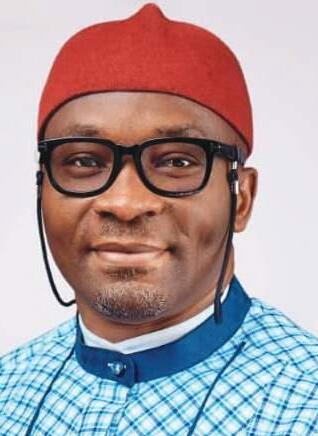
the hands of those who have refused to publicly acknowledge that the APC government has made more money available to them to work for the people. They would rather usurp the glory to giving it to whom it is due, all in self edification.
Talking about wooing notable people in the South East, Kalu’s stellar legislative performance on daily basis does the magic of attracting personalities. In Abia State, it is no news that a good number of men and women with high electoral values across the 17 Local Government Areas have since defected to the APC rather than the labourer at the Government House with more underwater.
One is not however so clairvoyant to know what has informed the continued reluctance of Governor Otti who Kalu has called to rejoin his political family. While it is not clear whether the governor is still a member of the battered and factionalized Labour Party (LP), his newly courted Zenith Labour Party (ZLP) or any other political party, what is however sure is that Abia APC cannot be left in the hands of a man who leads a coalition of people that are anti-Tinubu led government, yet, pretends to love the President. Rt. Hon. Kalu is fully in charge of the party and would lead it to victory of President Tinubu in 2027. Sorry, Kalu is not ready to take the risk of secretly making promises to President Tinubu and publicly failing him.
Did I also read Ezewudo talk about political upstarts? This is very petty and preposterous. In fact, there is no basis for comparison. Most of those basking in the euphoria of political governance, parading themselves as the peoples leaders now were yet to find their bearing in politics as far back as 2003 when Kalu became a local government chairman and had a formidable political structure, Ben Kalu Movement (BKM). When you have a structure with membership that is as old as 22 years then, you can claim to have a stable structure, not by the coercion of contractors and workers who will not be appointed or paid unless they join Abia Arise of yesterday. We shall test the sustainability of that structure when Otti leaves office to see if it would be sustainable for 22 years like the structures of Ben Kalu.
For purposes of accentuation, let it be emphatically started that Kalu has never struggled to win his constituency in the last two election cycles. The votes are there already for him to pick, evidenced by his wide margin of victory in 2019 and 2023 respectively. And whatever office his political family finally decides for him in 2027, be it Abia Governorship or still, Bende Reps seat, Kalu who has so far acquitted himself in terms of performance will still win fair and square. I need not to say that he is the popular demand and man of the moment in the political trajectory of Abia State.
On the impact of the Kalu’s peace project, Ezewudo should be made to know that Peace In South East Project, PISE-P has calmed the frayed nerves in the South East. What he doesn’t know is that the platform lobbied for South East Development Commission (SEDC). The Nigerian military has since bought into the project and it has ultimately brought the South East back under the non kinetic approach preached by PISE-P. Its advocacy on peace is loud. PISE-P made cash and material donations to families of victims of respective violent acts in the South East region. Till date, it remains a tool for the reconciliation, rehabilitation and reconstruction of the region. SEDC is the outcome of the PISE-P strong advocacy and appeals to better the lots of the South East region and will still be used as a platform to reintegrate the agitators like NDDC did in the South South zone. Soon you the news of more achievements of the PISEP in restoring peace in the region will be commonplace.
I hate to think that Ezewudo’s growing unease about Kalu’s increasing influence in Abia politics is so palpable. Of course, we know that as a stalwart of the APC, the Deputy Speaker’s efforts to consolidate the party’s presence in the state have sent ripples through the ruling party in Abia State. The fears of this hatchet writer are rooted in Kalu’s ability to mobilize support, attract notable figures to the APC, and project President Tinubu’s agenda. He fears that with him at the helm, the APC is poised to make significant gains in Abia, potentially eroding the LP’s base. But their anxiety is understandable, given Kalu’s track record of delivering results and his firm commitment to the APC’s ideals.
I have long known that Uche Ezewudo’s malicious and baseless claims against Kalu are nothing but a desperate attempt to discredit the Deputy Speaker’s achievements and contributions to Abia and the South East region. But his robust relationships with the governors, his legislative prowess, and his commitment to spreading the Renewed Hope message have all been glaringly evident. Ezewudo’s writings are a clear manifestation of his paymaster’s agenda, and his claims have been thoroughly debunked by facts. Kalu’s impact on the region, particularly through the Peace In South East Project (PISE-P), has been transformative. The South East Development Commission (SEDC) testifies to his advocacy and dedication to the region’s development.
For the umpteenth time, Ezewudo should be told that his hatchet job will not deter Kalu’s determination as he continues to project the party’s agenda and ensure President Tinubu’s reelection in 2027.
•James Nwachukwu, a public affairs analyst wrote in this piece from Umuahia, Abia State
Duro Ikhazuagbe
Ahead of Wednesday’s clash between Nigeria and Ghana in the Unity Cup Invitational Tournament in London, Super Eagles camp in Doubletree Hilton Ealing has come alive with most of the invited players already in.
The Super Eagles will take on the Black Stars of Ghana at the Gtech Community Stadium, Brentford on Wednesday, 28th May and then play a second match at the same venue
on Saturday 31st May.
Nigeria’s opponent will be determined by Super Eagles result against the Black Stars, and the result of the 27th May clash between Jamaica and Trinidad & Tobago.
As at yesterday evening, the usual suspects were all in the Eagles camp and had a light session at the Hanwell Town Football Club
training facility.
According to the Media Officer of the Super Eagles, Promise Efoghe, 10 home-based players from the NPFL are in the team for the Unity Cup Tournament as well as the friendly with Russia.
Head Coach of the team, Eric Chelle, at a press conference inside the Gtech Stadium yesterday, de-
fended his decision to include the players from the domestic Nigerian topflight in the two games.
He insisted that it was a huge opportunity for him to try out fresh players in key positions.
“We need to give chance to a lot of players to know the quality they are made of. It is difficult to judge a player if you don’t give the the chance to show what they are capable of doing on the pitch. So I can defend my decision to bring

Says its start of a new era for him
Xabi Alonso has declared that his new job at Real Madrid is the start of a new era during his official unveiling at Madrid’s Valdebebas training ground on Monday.
Alonso, 43, was appointed manager of his former club on a three-year deal on Sunday,replacing Carlo Ancelotti - who will take charge of the Brazil men’s national team.
Madrid endured a disappointing campaign - surrendering their La Liga title to Barcelona, losing to their arch-rivals in the finals of the Copa del Rey and Spanish Supercopa, and crashing out of the Champions League to Arsenal in the quarter-finals.
But during a speech at his unveiling on Monday, Alonso said: “It’s the start of an era.”
He added: “The Real Madrid fans are excited to begin this new era, to grow, and to make the history of this club even greater.
“It’s a special day. It’s a day I
will have marked in my calendar for life. I am very happy to be here, in what I feel is
Alonso, who won a league and cup double with Bayer Leverkusen in 2023-24, explained his decision

to return to Madrid 11 years after he left the club as a player.
“We have fantastic players, we have a team that has a lot of potential, [capable of] a very good present and a very good future,” he said.
“That gives me a lot of reason to come here with a lot of energy and a lot of hope that I can get the best out of all the players and build a great team.
“[I have] the conviction that we can achieve big things, worthy of Real Madrid, worthy of all these European Cups, of all these accomplishments made over so many years.
“I want a team that transmits emotion, energy, ambitious play and connects with the fans.”
Alonso paid tribute to Ancelottiwho won three Champions Leagues, two Club World Cups and two La Liga titles across two spells with Los Blancos - and also managed Alonso at both Real and Bayern Munich.
Athletic Club forward and Ghanaian international, Iñaki Williams, has been crowned the 2024/25 SPORTY LALIGA MVP, an award recognizing the best African player in the LALIGA EA SPORTS this season.
Williams’ win was announced winner on Monday morning on Africa Day at a media event in Johannesburg, South Africa, featuring former Cameroon international and FC Barcelona midfielder Alex Song, Soccer Africa presenter Thomas Mlambo and a panel of local football experts, bringing the SPORTY LALIGA MVP to African soil for the first time ever.
The results, which combined
the votes of an expert jury of 25 football journalists from across Africa and thousands of fans living in Sub-Saharan countries who cast their vote via the online MILIGA Fan Zone, saw Bilbao-born Williams come out on top with 32% of the vote.
He was followed by Villarreal CF and Senegal midfielder Pape Gueye (12%) in second place, and CA Osasuna and Cameroon defender Flavien Enzo Boyomo (10%) in third place.
After receiving the award, Williams said: “LALIGA has always had African players or players with African heritage, and it’s a real honour to be able to represent our
roots in this way, to make us seen in a league that’s so special and has always had such a huge following.
“It’s a beautiful thing for young people across Africa, a continent where football has always been a big part of life, to be able to see their role models succeed.”
He added: “An award like this always means you’re doing things right. I’m so happy and proud that I’ve won it two years in a row… hopefully, I can make it three!” The Williams’ standout season makes him a deserving winner of the award. Athletic Club enjoyed a historic 2024/25 LALIGA campaign, securing their first Champions
League spot in a decade. The 30-year-old played more minutes than any other player in the squad and contributed 14 goals and assists combined, proving vital to the team’s success.
Brand Director of Sporty Group, Miguel Puche, said: “Everyone at Sporty congratulates Iñaki on his back-to-back MVP win. From established stars like him to rising talents such as Yan Diomandé, the influence of African football is growing stronger each season. At Sporty, we’re deeply committed to celebrating that journey, giving it the visibility it deserves and bringing LALIGA closer to fans across the continent.”
10 players from the NPFL to this Unity Cup tournament,” observed the Franco-Mali born gaffer.
As at press time, the following players were in camp: Ahmed Musa, Simon Moses, Kelechi Iheanacho, Semi Ajayi, Frank Onyeka, Nathan Tella, Cyriel Dessers, Felix Agu, Igoh Ogbu, Wilfred Ndidi, Bruno Onyemaechi, Junior Harrison Nduka, Sodiq Ismaila, Waliu Ojetoye and Ifeanyi Onyebuchi.
the 22 players in camp. Only Tolu
Uche, Amas Obasogie and Maduka Okoye were been expected in camp as at press time last night.
Eighteen out of the 23 Super Falcons invited for the friendly matches against Cameroon (31st May at the Remo Stars Stadium in Ikenne-Remo and 3rd June at the MKO Abiola Sports Complex in Abeokuta) have arrived at the team’s Am2pm Hotel in Ijebu-Ode.
The nine-time African champions are using the friendly to prepare of the WAFCON in Morocco later in the year.
As
Heartland FC and Akwa United joined Sunshine Stars and Lobi Stars as the four teams relegated to the Nigeria National League (NNL) after the Matchday 38 fixtures concluded in the Nigeria Premier Football League (NPFL) on Sunday.
Following a 2-1 defeat of fellow relegation candidate at the Dan Anyiam Stadium in Owerri, Heartland, a former champion reached 48 points, one point behind El-Kanemi Warriors that also defeated already relegated Sunshine Stars 1-0 in Maiduguri.
While Akwa United stagnated at 44 points following their defeat
in Owerri, Sunshine Stars finished 19th on the log with 41 points above Lobi Stars that finished 20th with a paltry 28 points. Remo Stars were already crowned champions with 71 points despite their 3-0 thrashing at Bayelsa United while Rivers United followed on 2nd spot with 64 points after a 2-1 defeat of Nasarawa United. Abia Warriors clinched the third position and the last continental slot even after losing 3-2 to fellow third spot chasing rivals, Ikorodu City. The two clubs finished 60 points and 59 points respectively.
A pre-season football tournament tagged Eko International Cup (EIC) will take the centre stage between July 6th and 13th at the Mobolaji Johnson Arena, Onikan, Lagos.
SKI-Hi Entertainment in collaboration with the Lagos State Government is staging the competition expected to feature a total of eight teams.
In this tournament, top professional football teams from within and outside Nigeria are coming together to compete among themselves for a period of 10 days in an exciting carnival atmosphere.
This year, the competing teams
are spread across five countries including Nigeria, Benin, Ghana, South Africa and Sierra Leone. According to the Executive Director, Publicity and Strategy for the Local Organizing Committee of the EIC, Onome Obruthe, arrangements for the tournament are in top gear.
He said: “The aim of the tournament is to give participating clubs a chance to get back into shape after their holidays at the end of each season. It is also a chance to test new players they signed or plan to sign for the new season as well as work on tactics for the new season.
A man has been arrested after a car ploughed into Liverpool supporters near the club’s Premier League trophy parade.
Footage shared on social media showed a grey Ford Galaxy accelerating into the crowd of supporters in the heart of the city centre. have been injured, some of whom are in a critical condition, after the people carrier rammed dozens of pedestrians just after 6pm on Monday.
A number of tents were set up
inside the police cordon along Water Street and the surrounding area.
Prime Minister, Sir Keir Starmer, and Home Secretary, Yvette Cooper, were been updated about events in the city.
Merseyside Police said the suspect is a 53-year-old white British male from the Liverpool area. The force said: “We were contacted at just after 6pm today (Monday, May 26) following reports a car had been in collision with a number of pedestrians on Water Street.
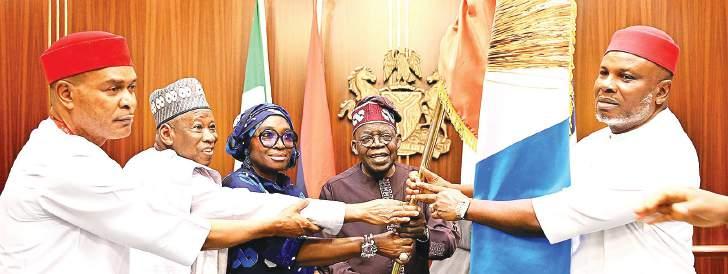
abati1990@gmail.com

Octopuses are considered by biologists to be very crafty, clever, cephalopods, who have multiple brains and three hearts, and can easily manoeuvre their ways around even the most difficult circumstances. These Einsteins of the Deep can be very playful, but you can only underestimate their resourcefulness at your own peril. They can dance in and out of difficult situations, even through very narrow apertures. They can change the colour of their skins, in a tricky manner, and can perform magic with their eight legs. They are very adaptive. They don’t give up once they set their minds on a goal. Even though Octopuses are considered a special delicacy in many parts of the world, they are all venomous, not only the famed blue Octopus, and they have a very sharp mouth. When they strike, after being provoked, the effect is mostly fatal. And when captured and prepared for eating, if they are not prepared properly, they can still cause pain even in death.
Octopuses are usually solitary animals, but when they live in groups, with fish for example, and interact with others, they are mostly known and likely to exhibit symptoms of narcissistic psychopathy, in an attempt to compete and dominate. They are essentially predatory but they are highly intelligent animals with both short and long-term memory. In popular literature, the Octopus is often represented as an antagonistic animal either in the novel, Gravity’s Rainbow (1973) by Thomas Pynchon, or the 1948 adventure film, Wake of the Red Witch, directed by Edward Ludwig. It is not for nothing that Octopuses have naturally acquired a celebrity status for their intelligence as an animal oracle. In 2008, an Octopus named Paul correctly chose the winning teams in four of Germany’s six Euro 2008 matches and seven of their matches in the 2010 FIFA World Cup. Paul also correctly predicted Spain as winner of the 2010 FIFA World Cup final. He was quite a notorious Octopus who acquired a legend status with a statue erected in his name at the Sea Life Aquarium in Oberhausen, Germany - a six-foot replica of Paul clutching a ball as a soccer avatar. In 2018, another Octopus, Rabio, was also used to predict matches for the Japanese team. Rabio correctly predicted Japan’s group stage games at the 2018 FIFA World Cup. But after the competition, the Japanese fisherman who had caught it, sold it. It was eaten. It was not as lucky as Paul, who featured in films, had a Google Doodle named after him, and a statue erected in its honour. I mix up the registers, “it”, “his” – this is meant as a metaphorical indication of the uncanny correspondence between man and nature, about how certain animals exhibit characteristics that can be found in human beings to the extent that even human beings acknowledge this as a fact of human reality, and the similarities with the animal kingdom, perhaps written into the evolutionary and creationism code. This subject has been explored further in such books as Of Animals and Men: A Comparison of Human and Animal Behavior by William Bixby (1968); Dog and Human Behavior: Parallels-Similarities by C.W. Meisterfeld and Ernest Pecci (2000); and Not so Different: Finding Human Nature in Animals(2016) by Nathan H. Lents.
Without any disrespect or malice intended, it seems to me that the present Minister of the Federal Capital Territory (FCT), and former two-term Governor of Rivers state, Nyesom Wike seems to be exhibiting the characteristics of an Octopus in terms of his role within the People’s
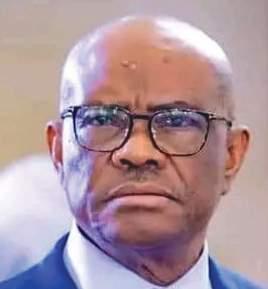
Democratic Party (PDP), confirming the theory, either at the state level in Rivers, his home state or the national level.
Wittingly or unwittingly, the fellow has turned himself into an Octopus within the party and by extension in Nigerian politics. He is, to many who know him, a very friendly host, brother, companion and a great conversationalist. There is never a dull moment around Wike. He knows how to entertain. He knows how to make his friends happy. I knew him at a fairly close range, as a jolly good fellow with an abundant sense of humour and a kind heart, until he left Abuja to become the Governor of Rivers State. The moment he became Governor, he changed his colours. The same man who was taken by Dame Patience Jonathan to elder statesman Dr. Peter Odili for anointing as an incoming Governor changed his colour and character. The same man who served former Governor and former Minister Rotimi Amaechi as an ally and Chief of Staff became something else. The venomous Octopus in him came to the fore when he began to demolish the properties of anyone who dared as much as to express a contrary opinion during his tenure as Governor of Rivers state. He had friends of course, but only if he was the dominant Octopus in the room who could have any fish for dinner or snacks. In the last Gubernatorial elections in Rivers State, he declared that he, and he alone would determine who could succeed him. And he did. He chose Simi Fubara, one of the boys he created and groomed into prominence. Fubara used to be his staff, his Accountant General, the boy who signed the withdrawals and monitored the accounts, and kept the records. Wike has never failed to tell anyone that Fubara is “his son”, whom he chose to be Governor. However, problem began when Fubara and those elders and youths of Rivers who have all now gone into hiding, began to assert themselves. Fubara wanted to be his own boss. He no longer wanted to report to the boss. He wanted to be his own man. He was told that his wife is not inferior to Mrs. Wike. She is a woman too and she is First Lady. Fubara acted too early and too soon.
The moment he began to listen to his new-found managers, the venom in Octopus Wike was instantly released. The travails of Fubara are of course very well advertised. The House of Assembly in Rivers attempted to remove him as Governor. He pulled down the House of Assembly. The lawmakers defected to the ruling All Progressives Congress at the centre, making him vulnerable. He and his supporters went to court. Rivers State has not known peace since then. One day, one trouble! The politics of Rivers state has been a postcard for the evil of godfather and rentier, prebendal politics in Nigeria’s democracy, and Wike is at the centre of it. The Octopus, sweet as it is as a delicacy, does not like to be threatened or accidentally provoked. Fubara ended up with a declaration of a six-month emergency rule which removed him from office. The man who was appointed as Sole Administrator, Vice Admiral Ibok Ette-Ibas (rtd.), for just six months oh!, and he is from Cross River state, not Rivers oh! has been over-enjoying Fubara’s office, even his wife wants to be a First Lady, both under an illegal and unconstitutional dispensation. Fubara has since been reported as having gone to Wike with APC chieftains to beg and genuflect, holding Wike’s legs, kneeling down, prostrating. He has gone to see President Tinubu offshore, also begging. The youths and elders who were backing him are now silent. In fact, he has told them off. He says he doesn’t even want the job again, and that no one should fight on his behalf. He is tired of being Governor, but he has not resigned. Fubara, angou alemou? Eenango ke lelemoin? Or in Okrika language: Obori se bu chinbo? Let him interpret that.
The Octopus has eight legs. Even before the last general elections in Rivers State, Octopus Nyesom Wike already had one of his arms, one of his hearts and his beaked mouth in the affairs of the opposition Peoples Democratic Party (PDP). Put simply, he wanted to be a Presidential candidate of the party or at best a Vice Presidential candidate. He was out-manoeuvred by Waziri Adamawa Atiku Abubakar, and others who felt uncomfortable with his brand of politics. Wike adapted very quickly and phrased his position as an ideological preference for a Southern candidate for the PDP - a Northerner, Muhammadu Buhari having completed eight years in office. It was a clever phrasing and disguise of Wike’s personal ambition. He soon found allies within the PDP, and the G-5 coalition, a collection of anti-party PDP fifth columnists, was born. Together with his allies, openly and defiantly, they resolved to work against the PDP, especially in the Presidential elections. And they did. Wike campaigned for the APC and Tinubu in the Presidential elections.
As he wished and designed it, the PDP lost the 2023 Presidential election. Wike is not apologetic about this. He has been handsomely rewarded with the position of the Minister of the Federal Capital Territory. He has since become something of an amphibious character, serving in an APC government and working very hard to destroy the PDP as a political party. He has refused to resign from the PDP, and nobody has been able to expel him.
The Octopus has both short and long memory. At every point since 2023, Minister Wike has not hidden the fact that he is out on a revenge mission against the PDP. He seeks to control and dominate the party. The latest that he has done is to declare this past weekend that he will not respect any agreements with the PDP going forward. He is fighting Governor Seyi Makinde, who was a member
of his G5, and also Governor Bala Mohammed of Bauchi State who at a time was his good friend. He says he will fight the PDP to the finish. He has since sealed off the Wadata Plaza, the headquarters of the PDP in Abuja on the grounds that the party is owing ground rent. He is Minister of the FCT. He has the powers to do so. Sometimes, I actually believe that Wike is far more intelligent than the other gladiators that surround him in the PDP. They could have expelled him from the party long ago. But they have not been able to do so. They have waited for so long, Wike who is openly romancing with the APC and the ruling APC President Tinubu is now threatening to destroy the PDP, and he is still a member of the party. Like the Octopus, he has dominated the PDP ecosystem! If tomorrow he demolishes the PDP Headquarters in Abuja, there will be nothing amiss. He wants his own person as National Secretary of the party. The Acting Chairman of the PDP says he is Wike’s friend. Wike’s entire relevance is owed to the same party, the same PDP which he wants to destroy. He was Chairman of Obio-Akpor Local Government under PDP, Chief of Staff to Governor Rotimi Amaechi under PDP, Minister of State for Education under PDP, and two-term Governor of Rivers state, again under PDP. He is unfortunately, the Judas Iscariot of the party. He thinks the PDP belongs to him to do with it as he wishes. He thinks he is bigger than the PDP!
The caveat emptor for Wike’s new-found friends in the APC, particularly President Bola Tinubu is to beware. The Octopus never changes its legs, its colour, its beaked mouth, its venom. It may be sweet today; it could be bitter tomorrow. Wike has one of his legs in the APC and his strongest armour is the patronage and the support that he receives from President Bola Tinubu. Naturally intelligent Octopus Wike never misses an opportunity to suck up to the President and to advertise his loyalty. The Octopus loves safe spaces, and Wike has found one in Tinubu’s patronage. His continued relevance rests solely on this. The moment Tinubu turns against him, as his arch-enemies wish, that would be the beginning of his retirement and the end of his relevance. There are red signals on display already. Wike is a Minister under Tinubu’s administration. He has consistently failed the power test by trying to upstage the Master. He holds more media conferences than President Tinubu. He even invites more journalists to media chats in which he does more of the talking, and the journalists just mop and hem and haw. His posters are all over the Federal Capital Territory, Abuja, in the same city where the President of Nigeria lives! He is practically the Saddam Hussein of Abuja. He even has more vocal spokespersons than the President’s team.
The Octopus has a short life span, one to five years, but that is because Octopuses breed only once in their lifetime and they die shortly thereafter. Paul the Octopus died at the age of two and a half years. Rabio, the Octopus was sold by his owner and he ended up on a dinner plate. Nyesom Wike is a human being, his DNA is different. We wish him many more years of service but in terms of his fame and political career, I imagine it is safe to ask him: How far? What exactly is this all about? Whatever happens to Wike hereafter in the wild life of politics, it is clear that he is certainly one of the most colourful figures in contemporary Nigerian politics like Lamidi Adedibu (the exponent of Amala politics) and Anthony Anenih (“Mr. Fix it”) before him.